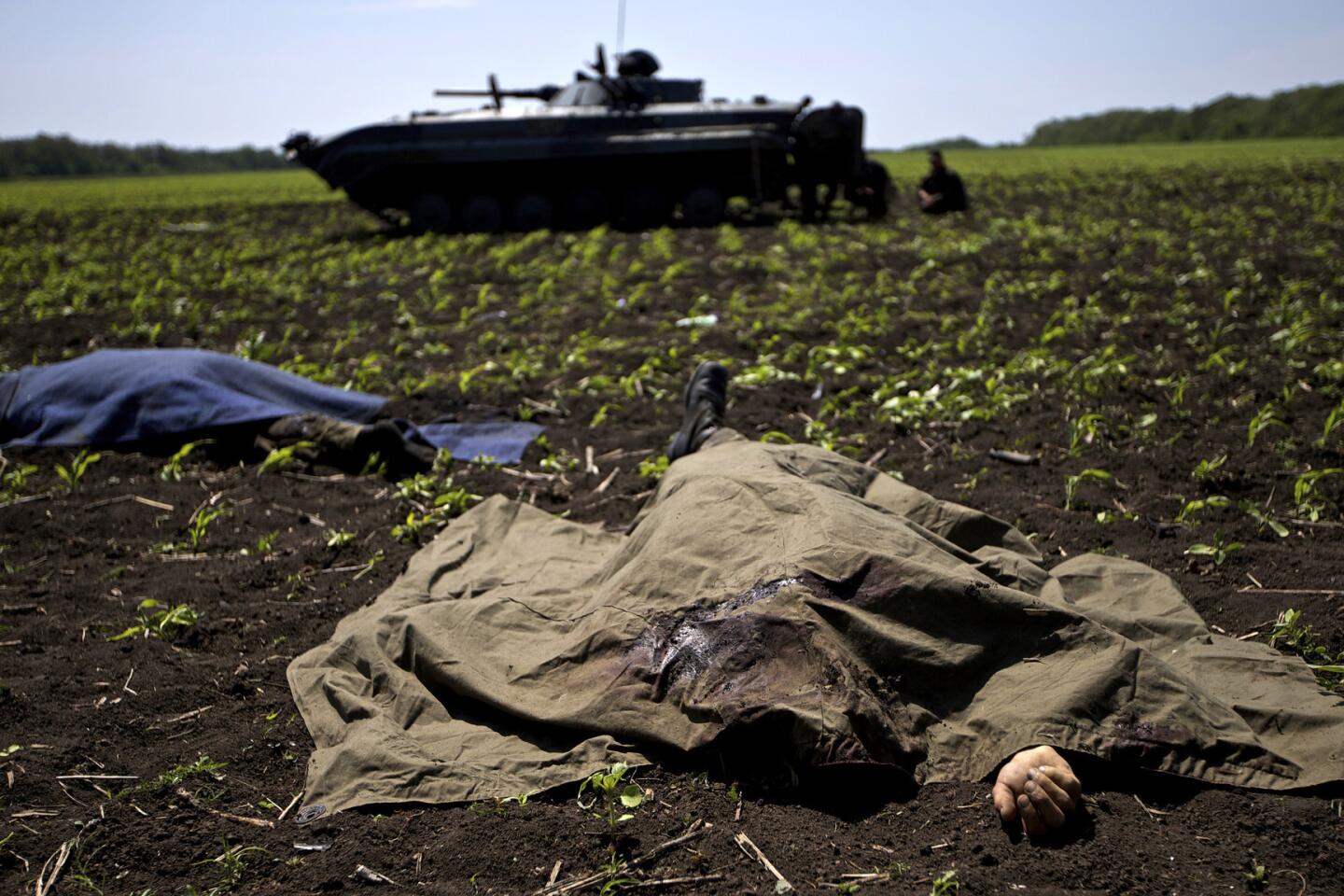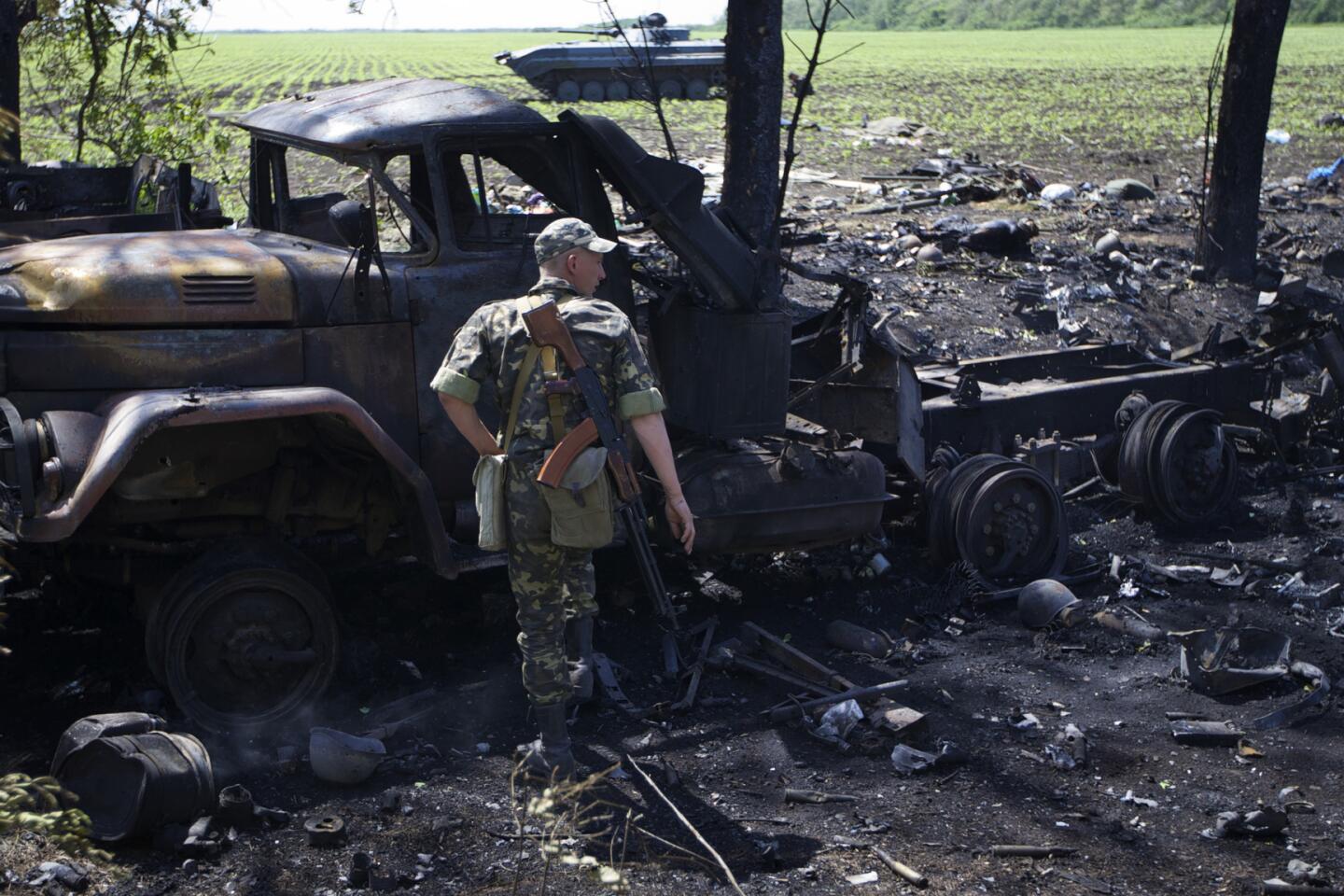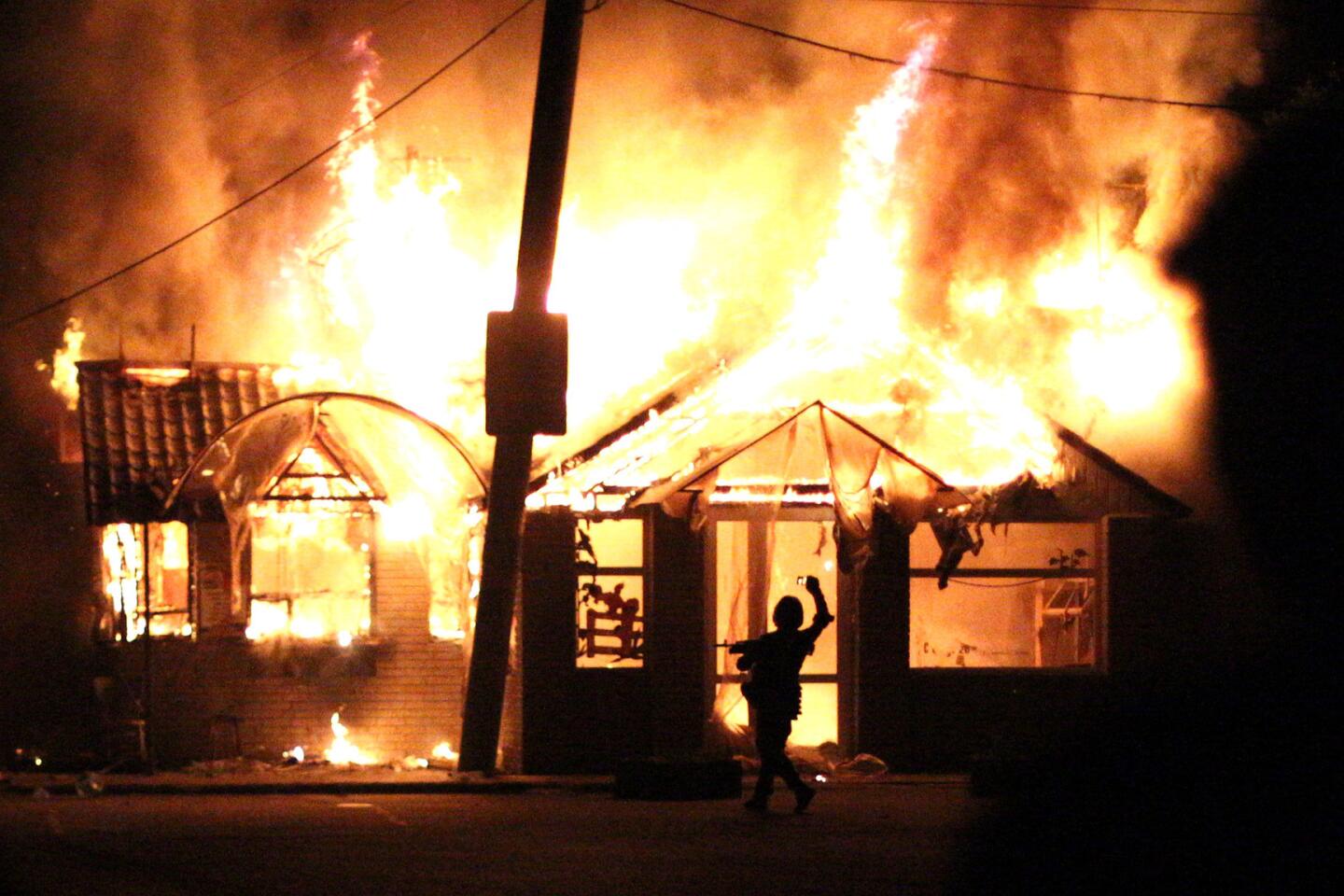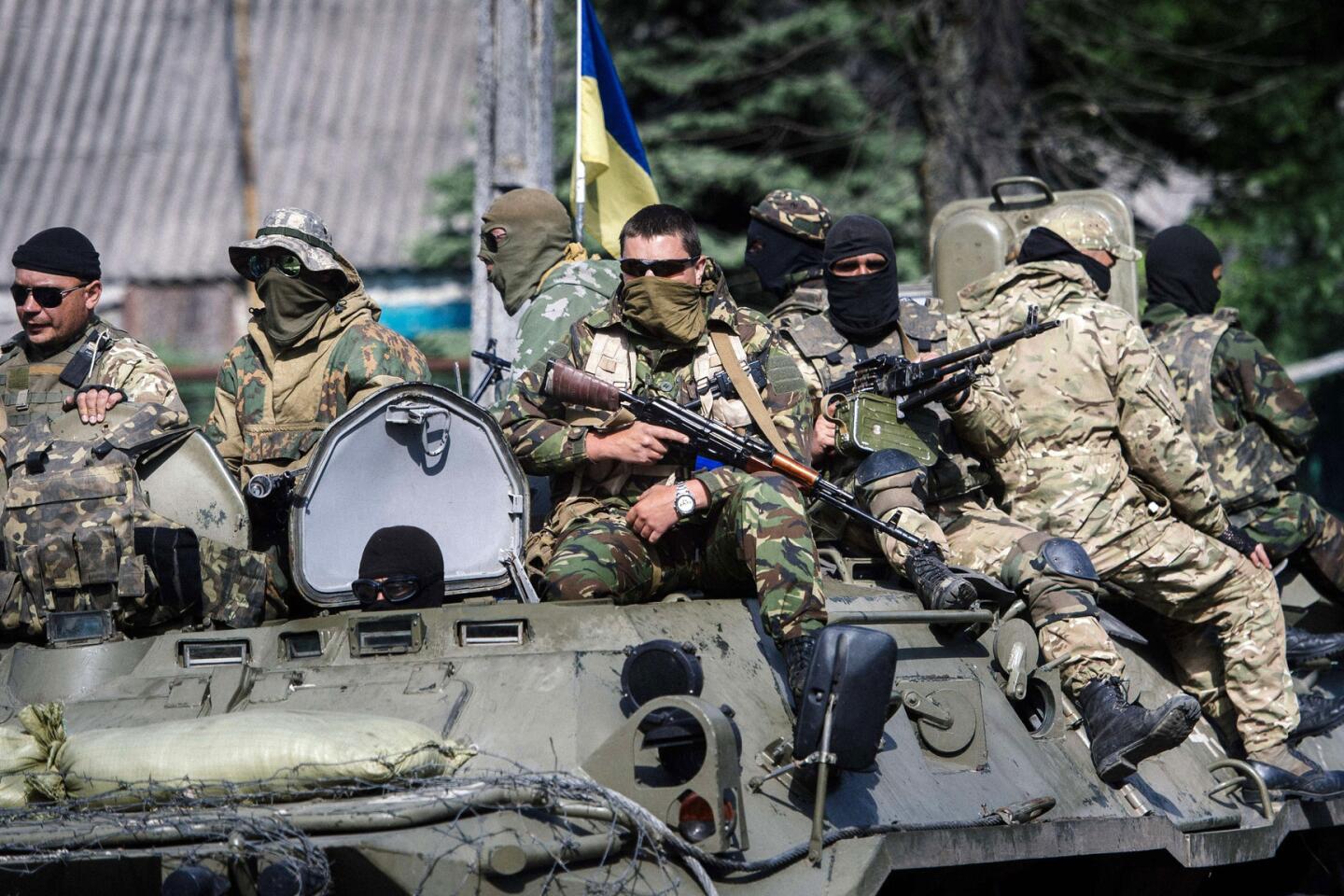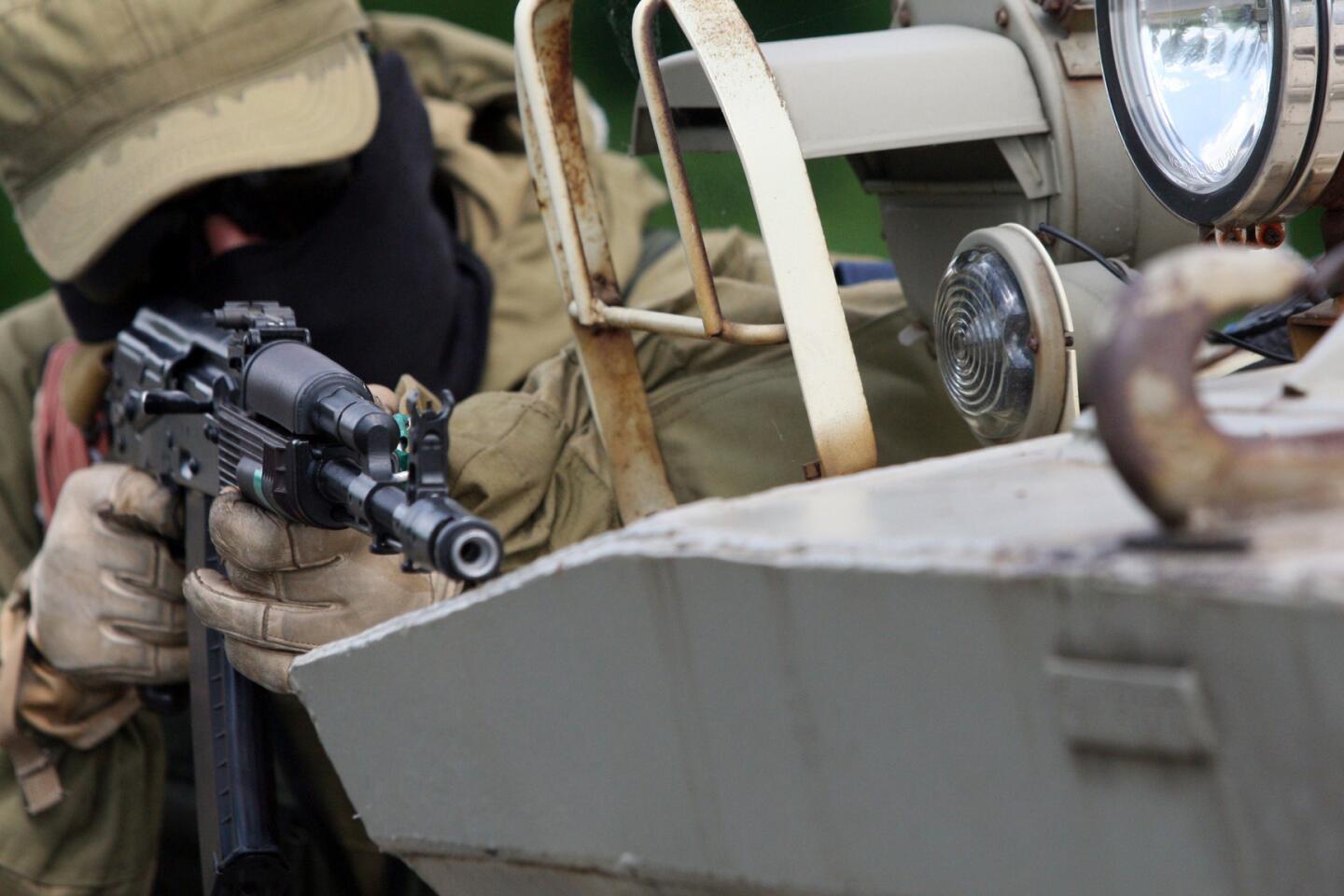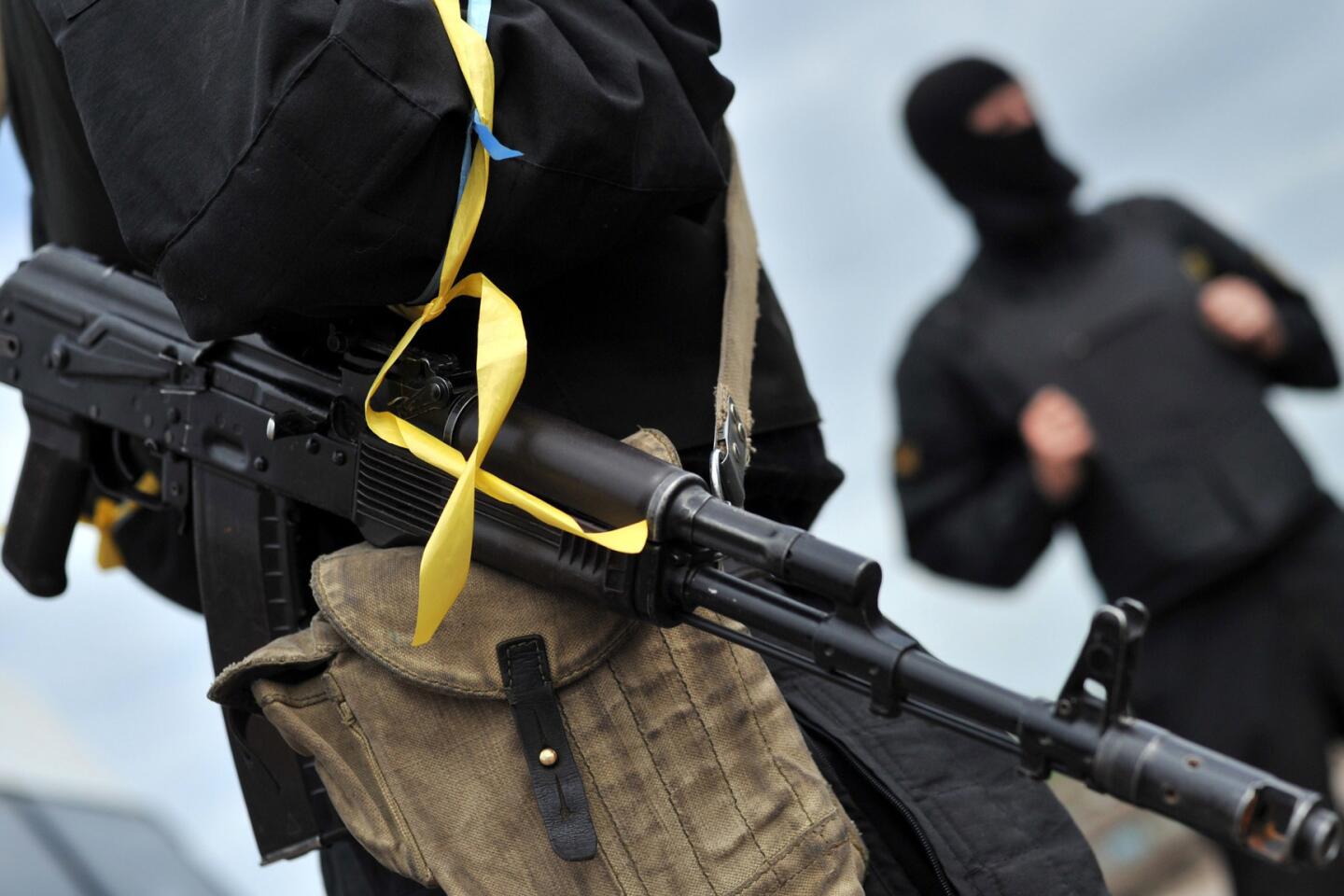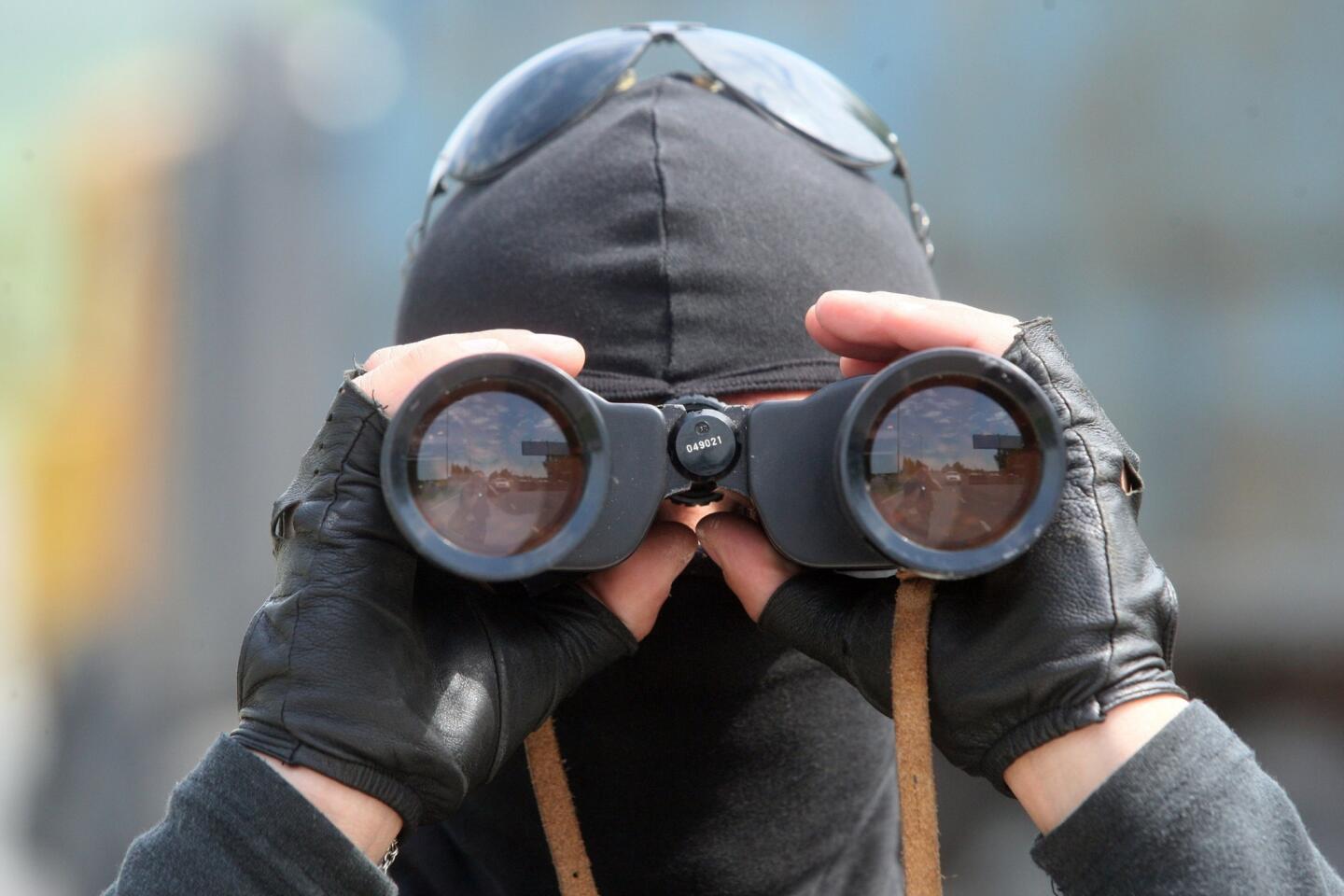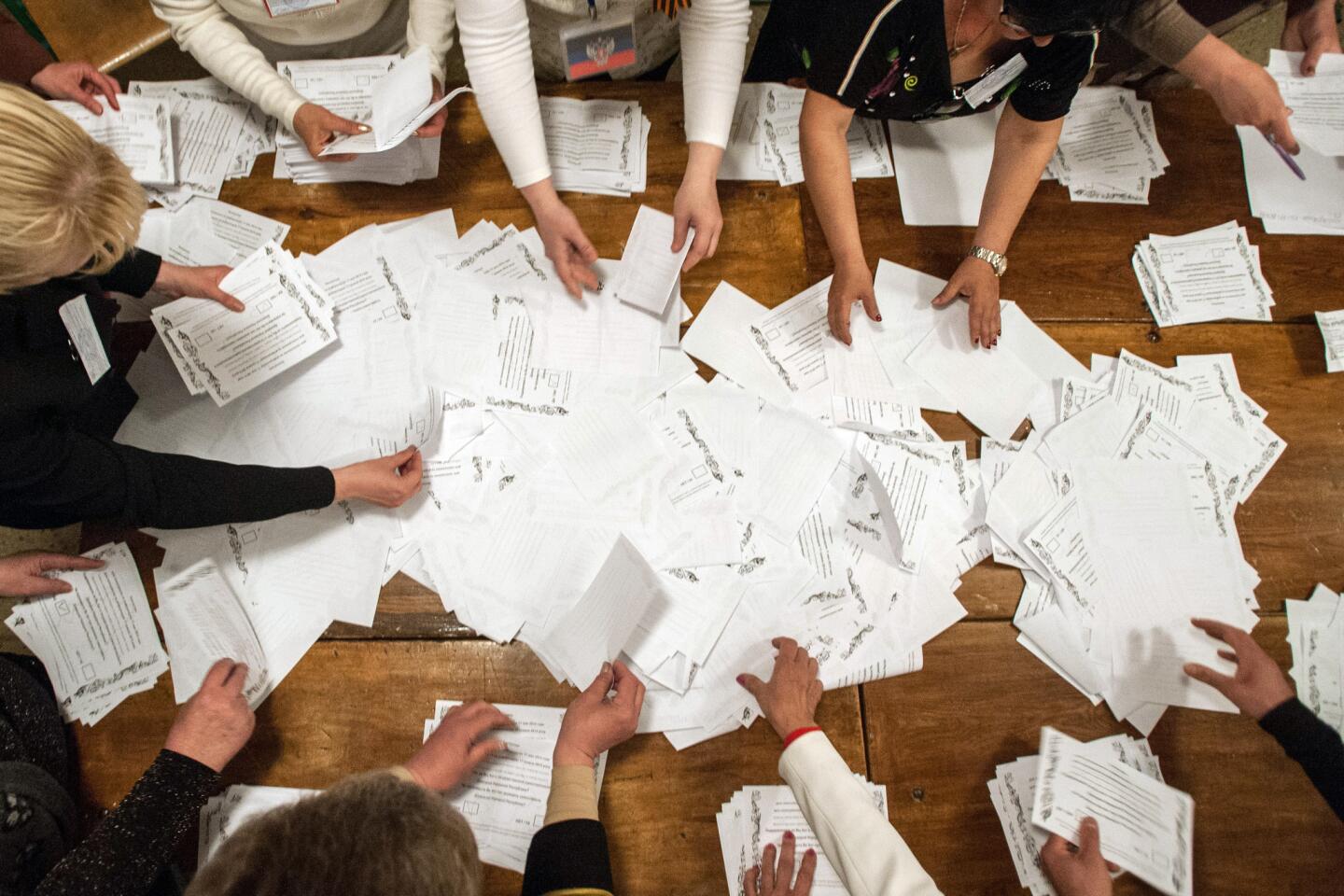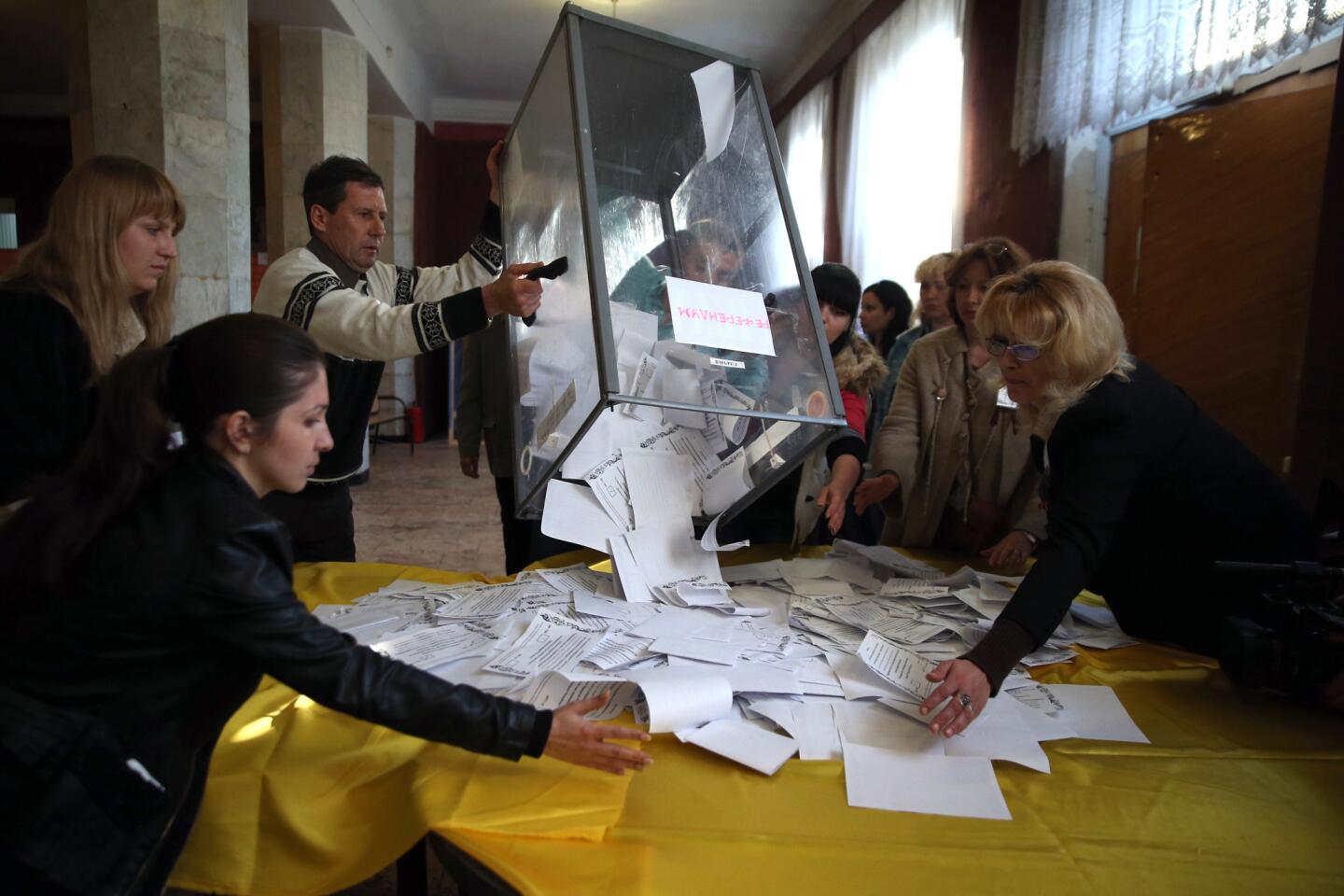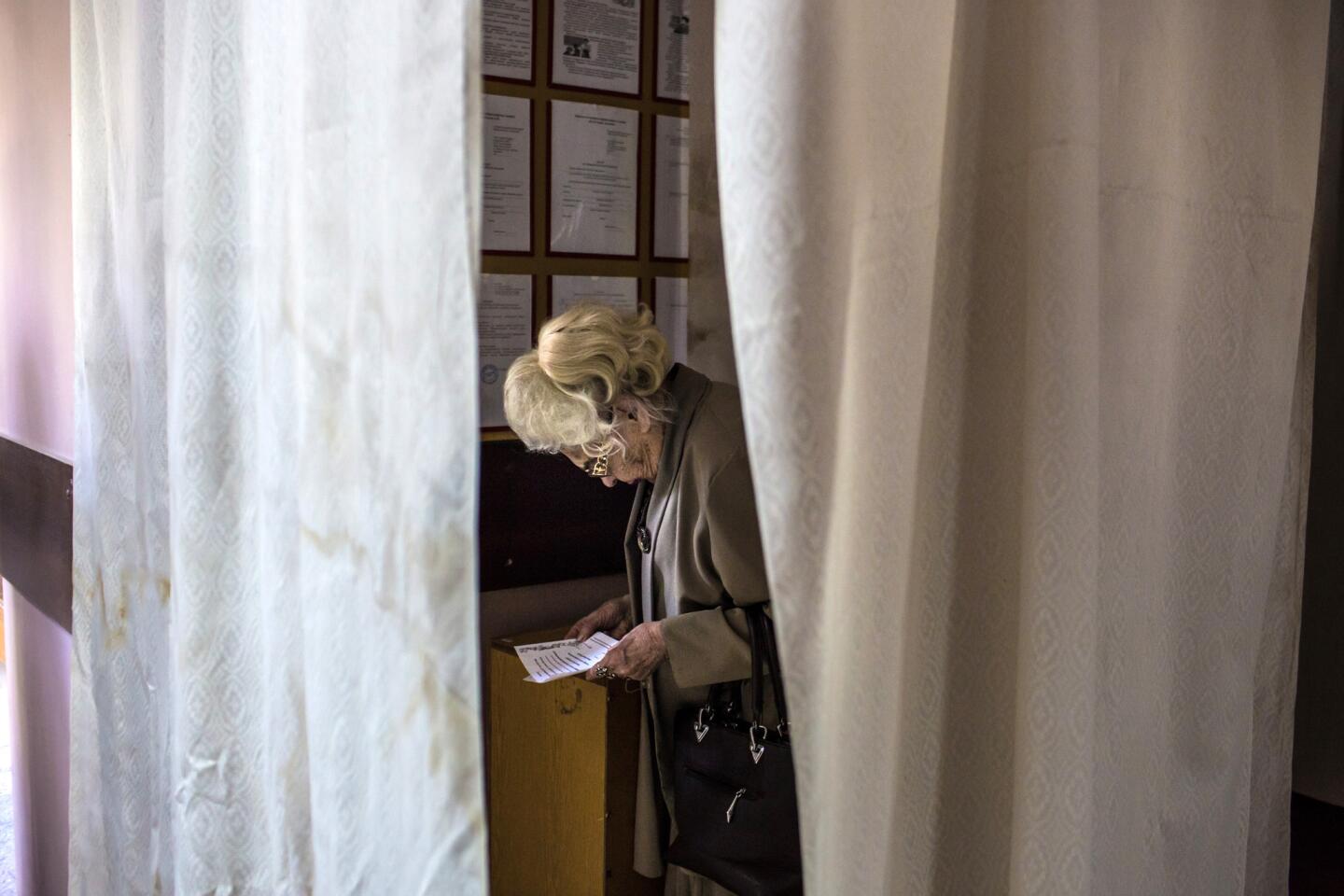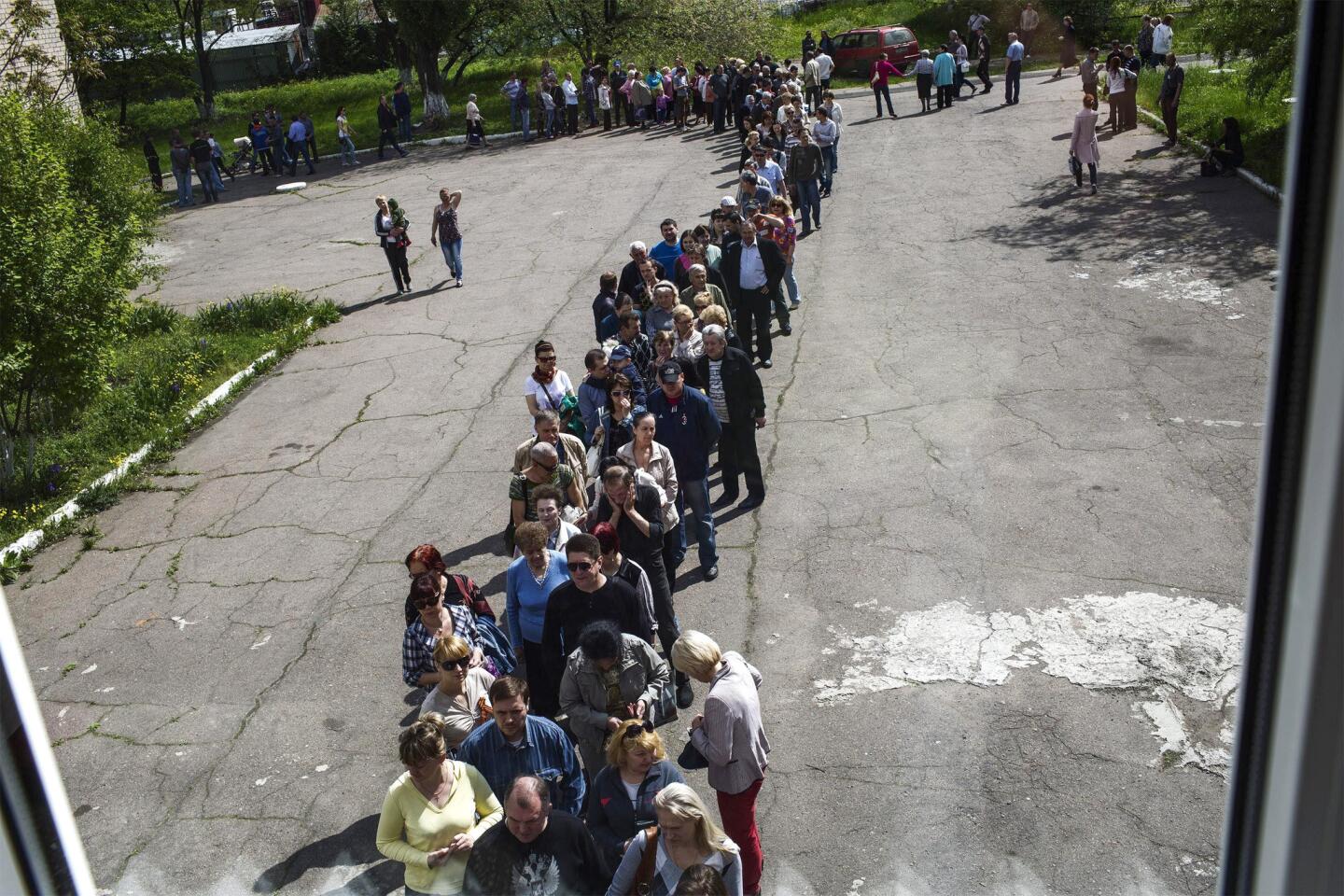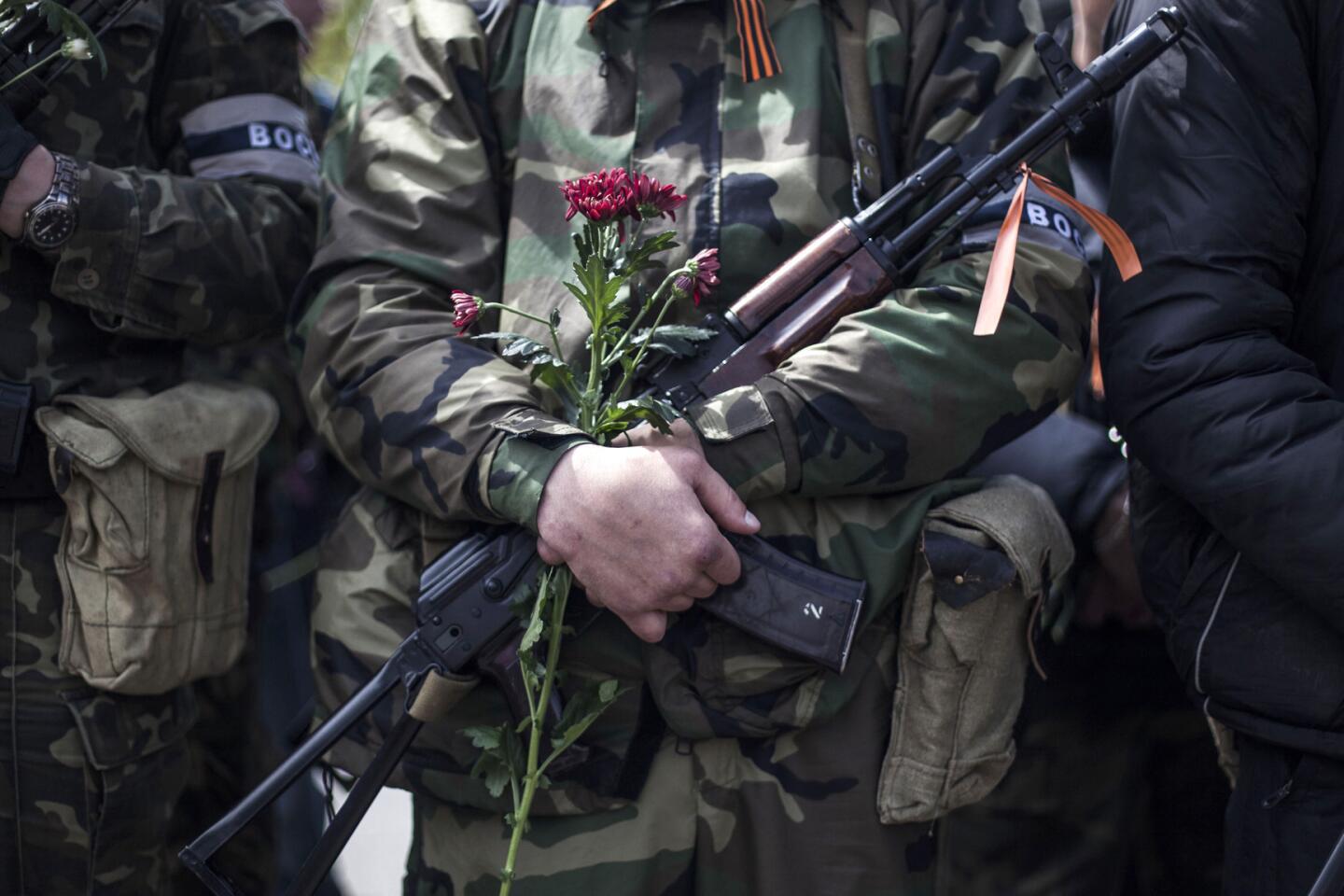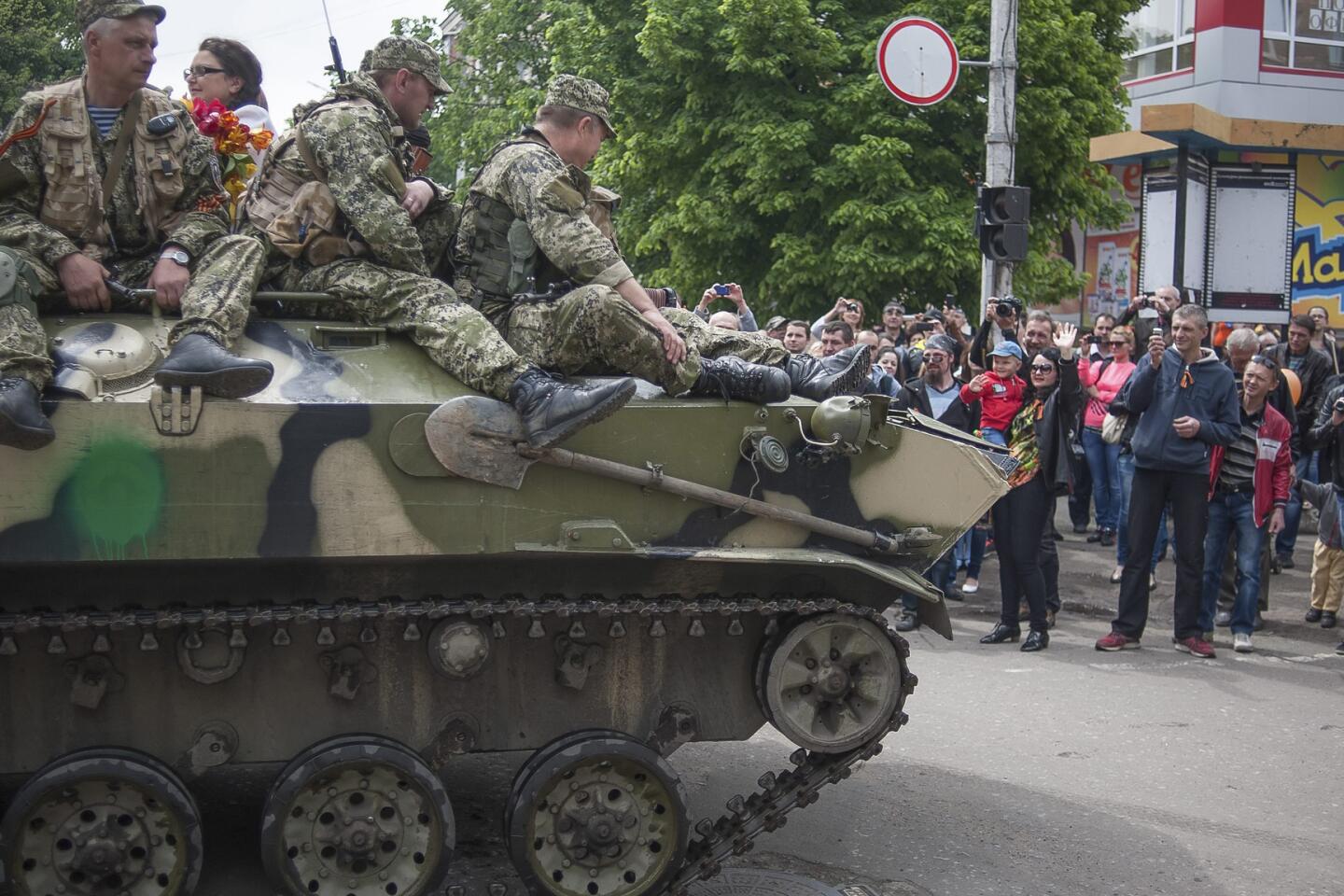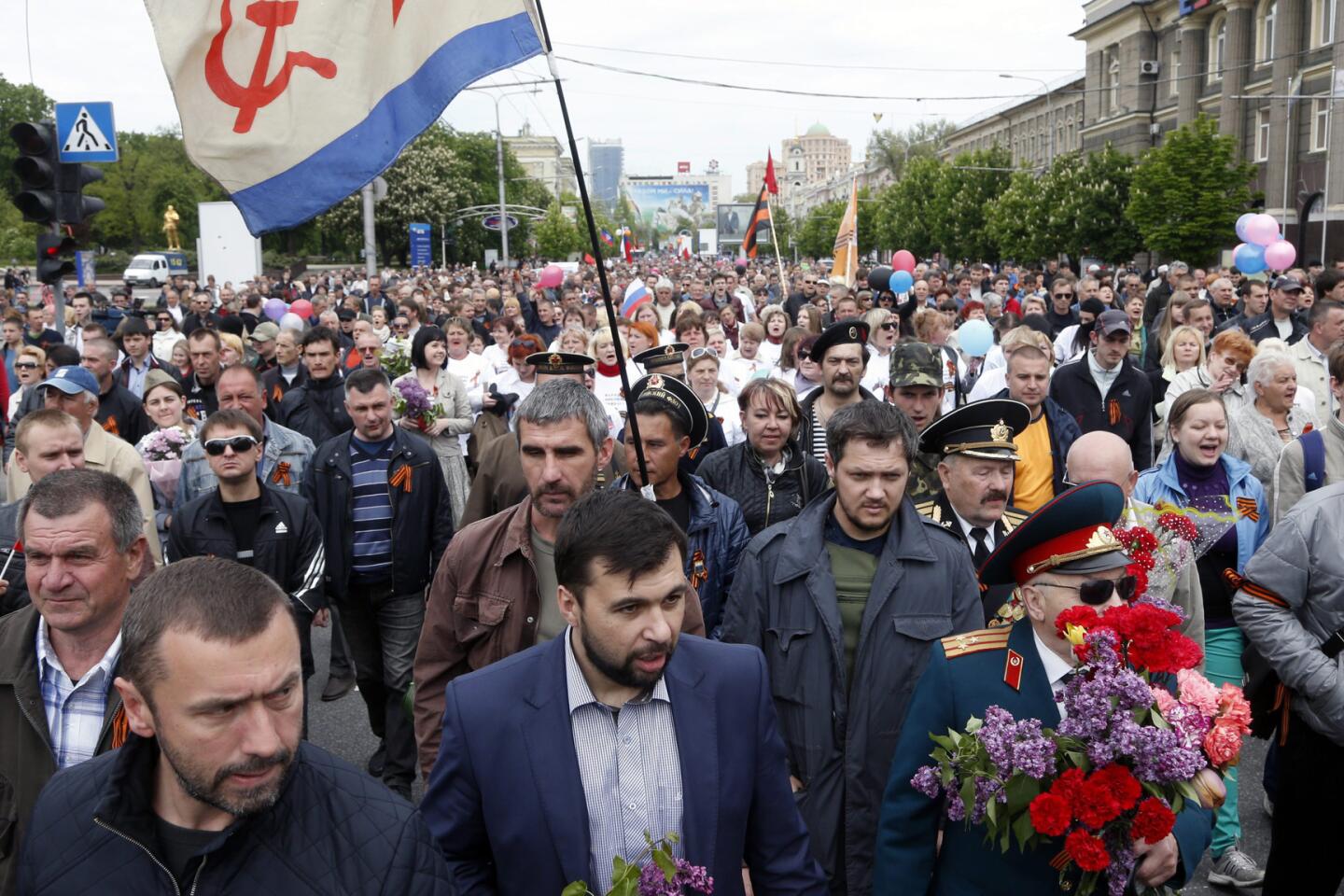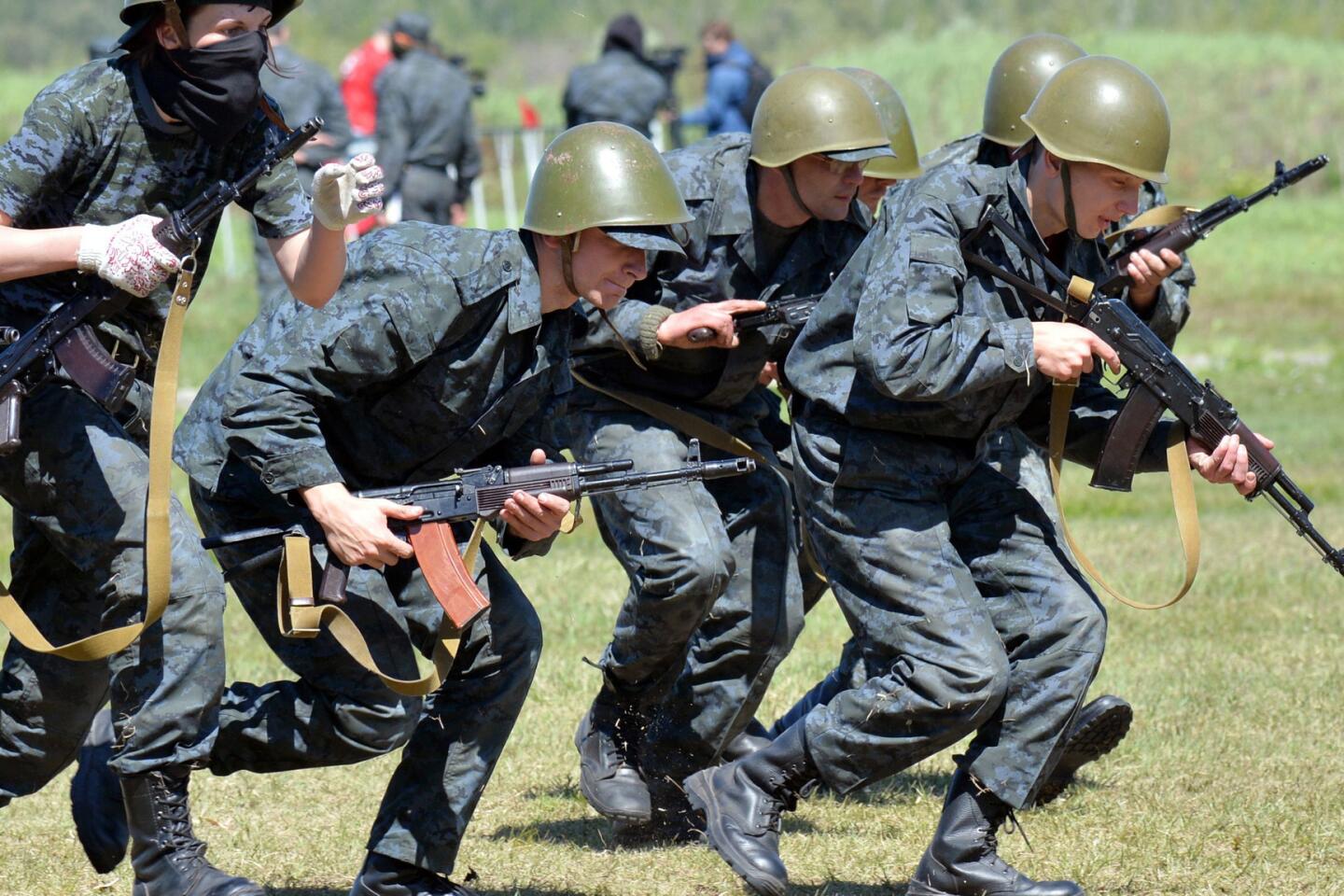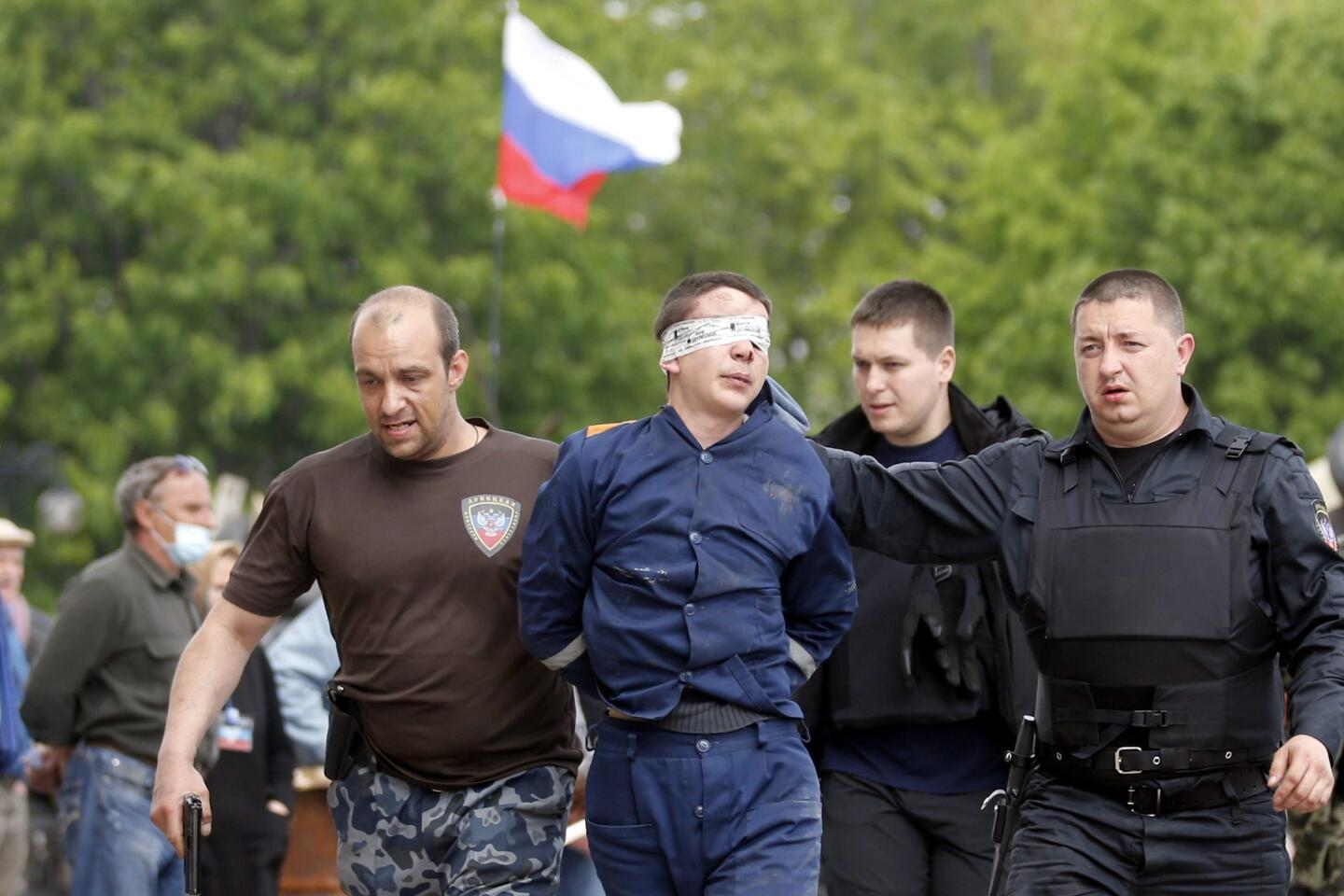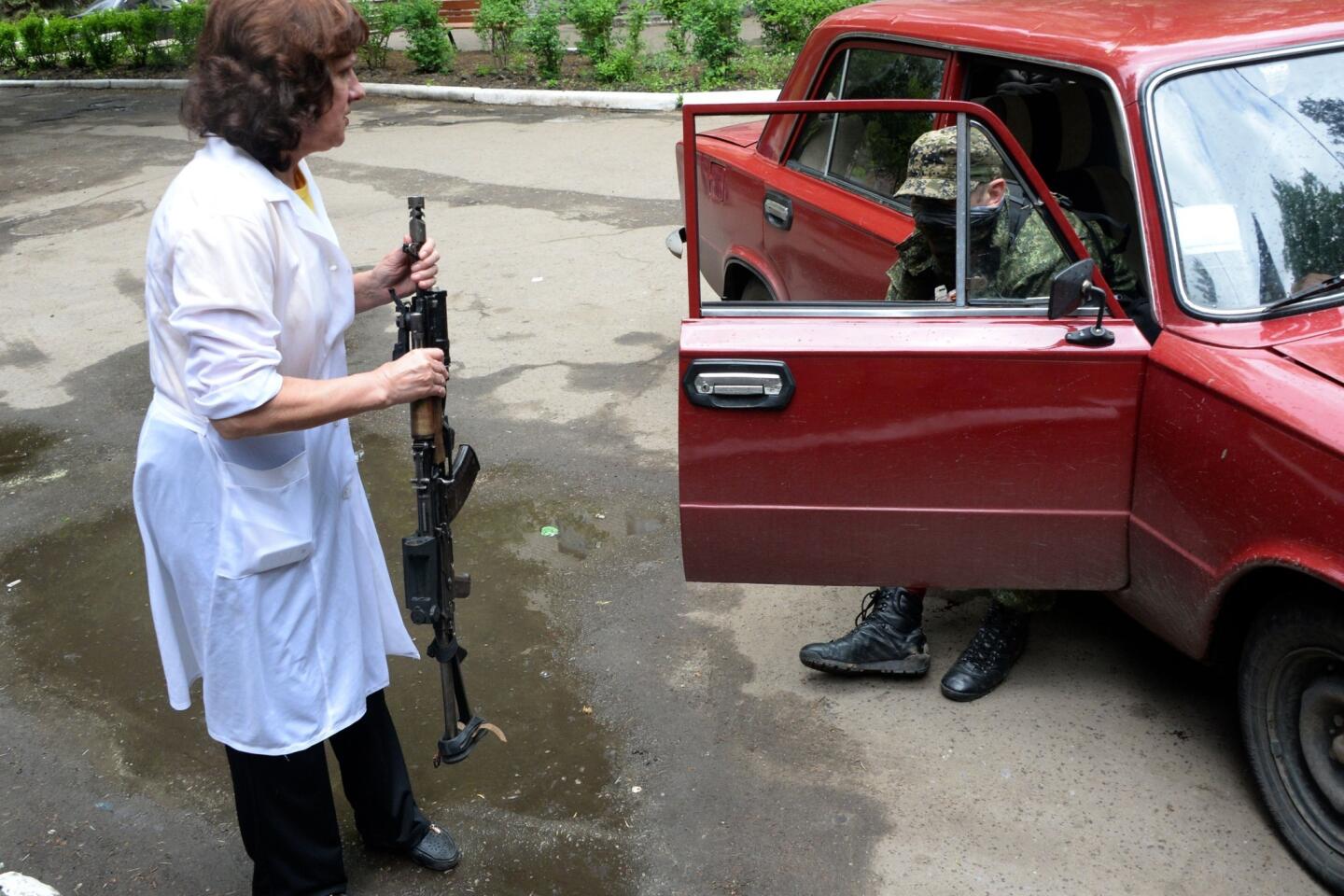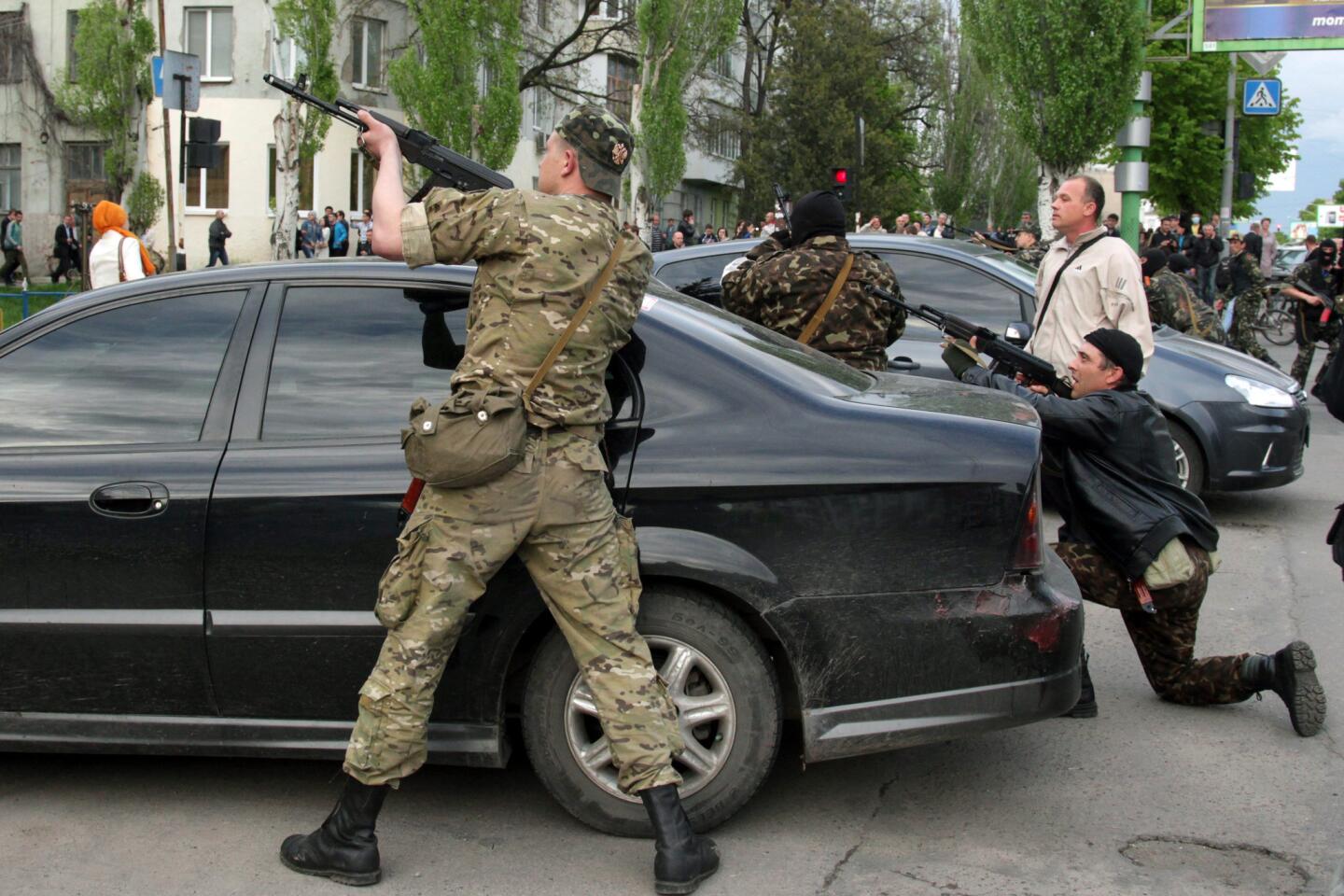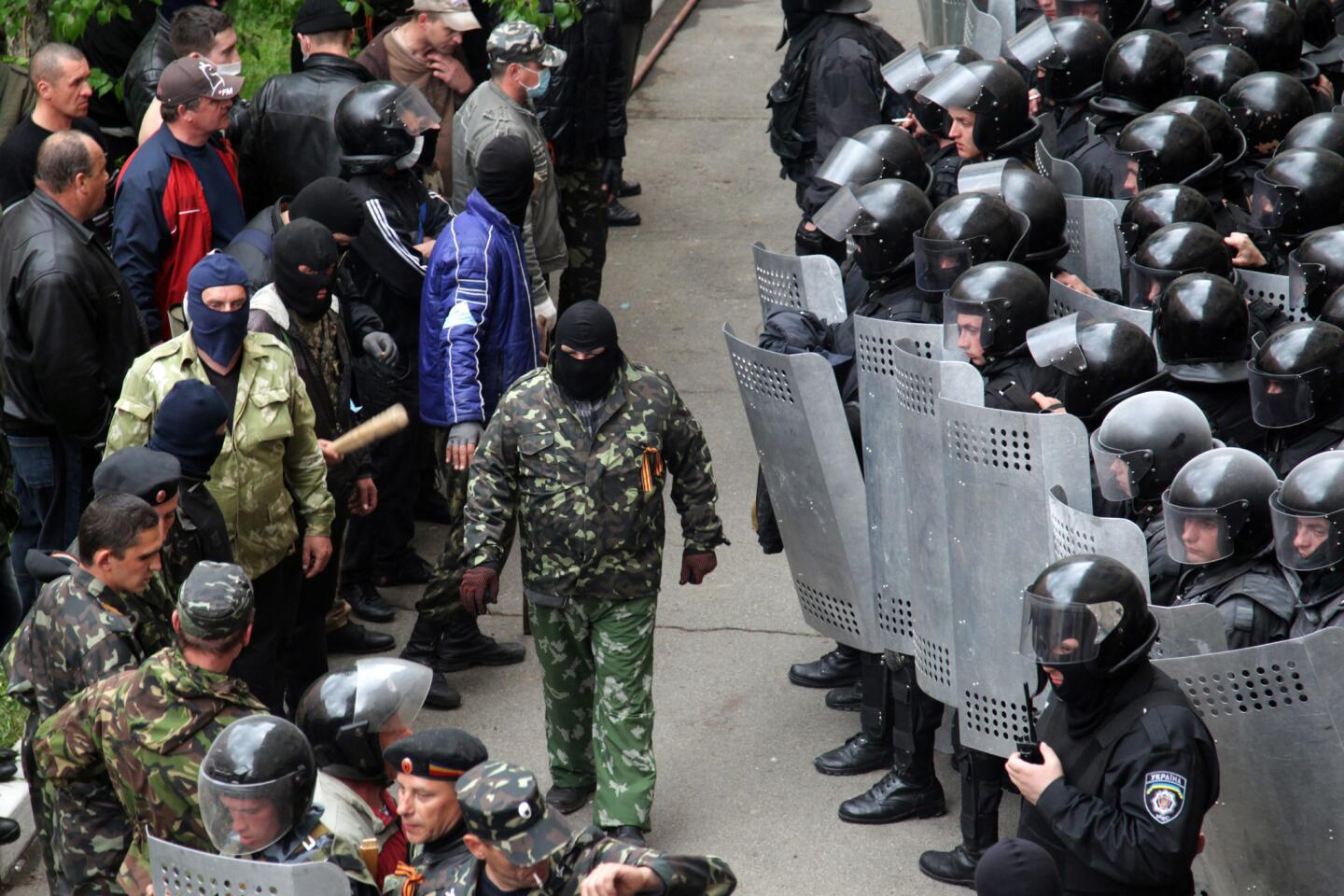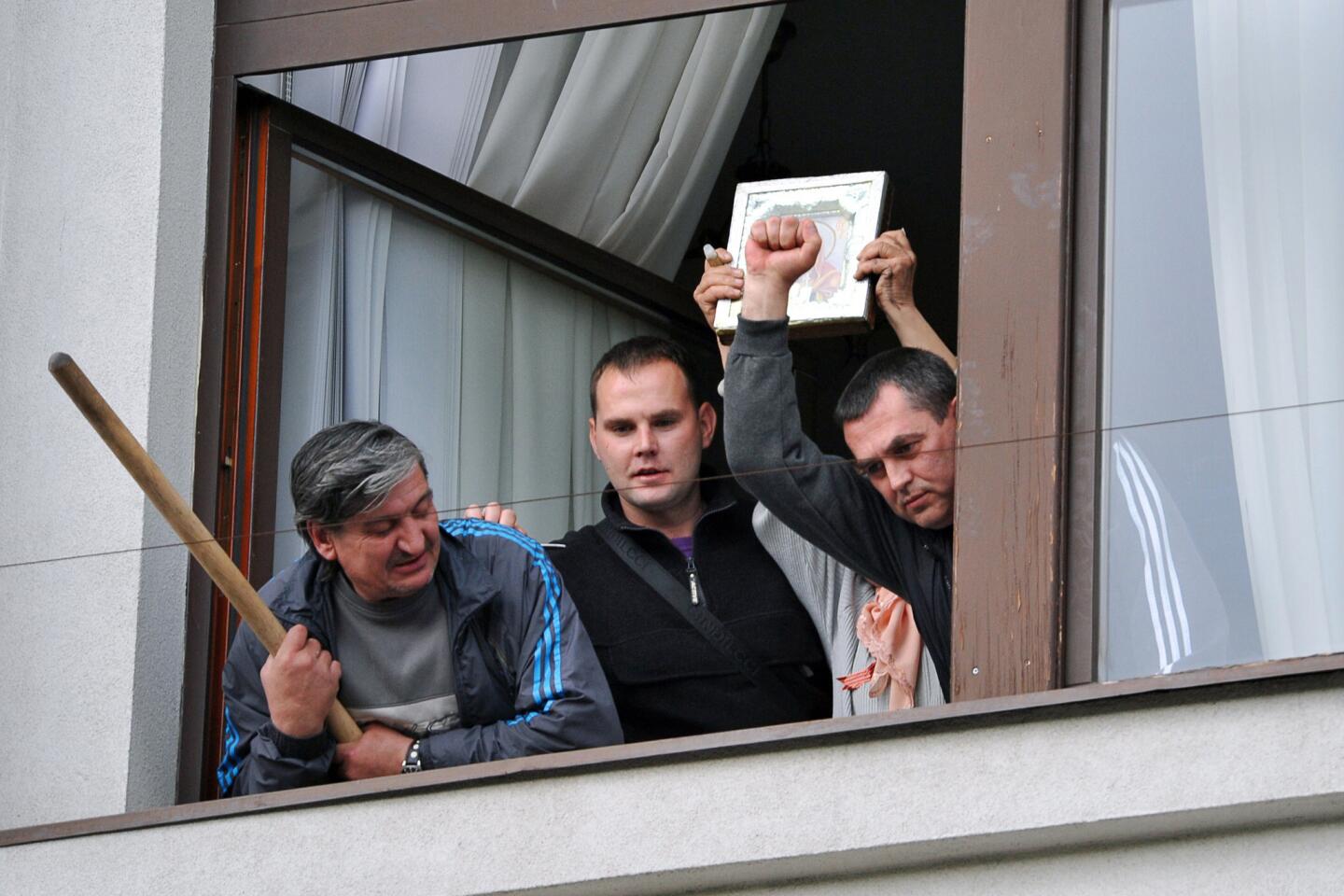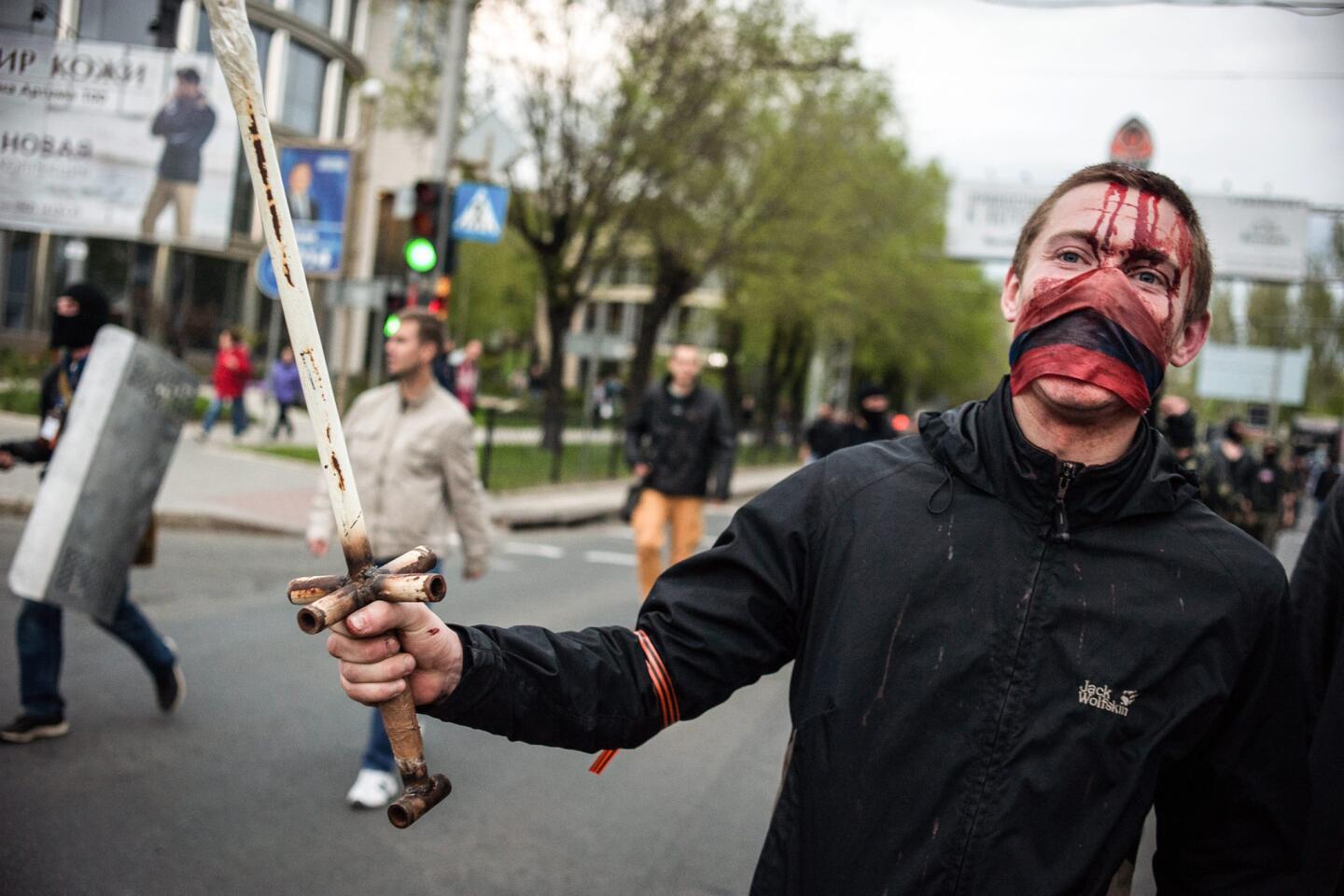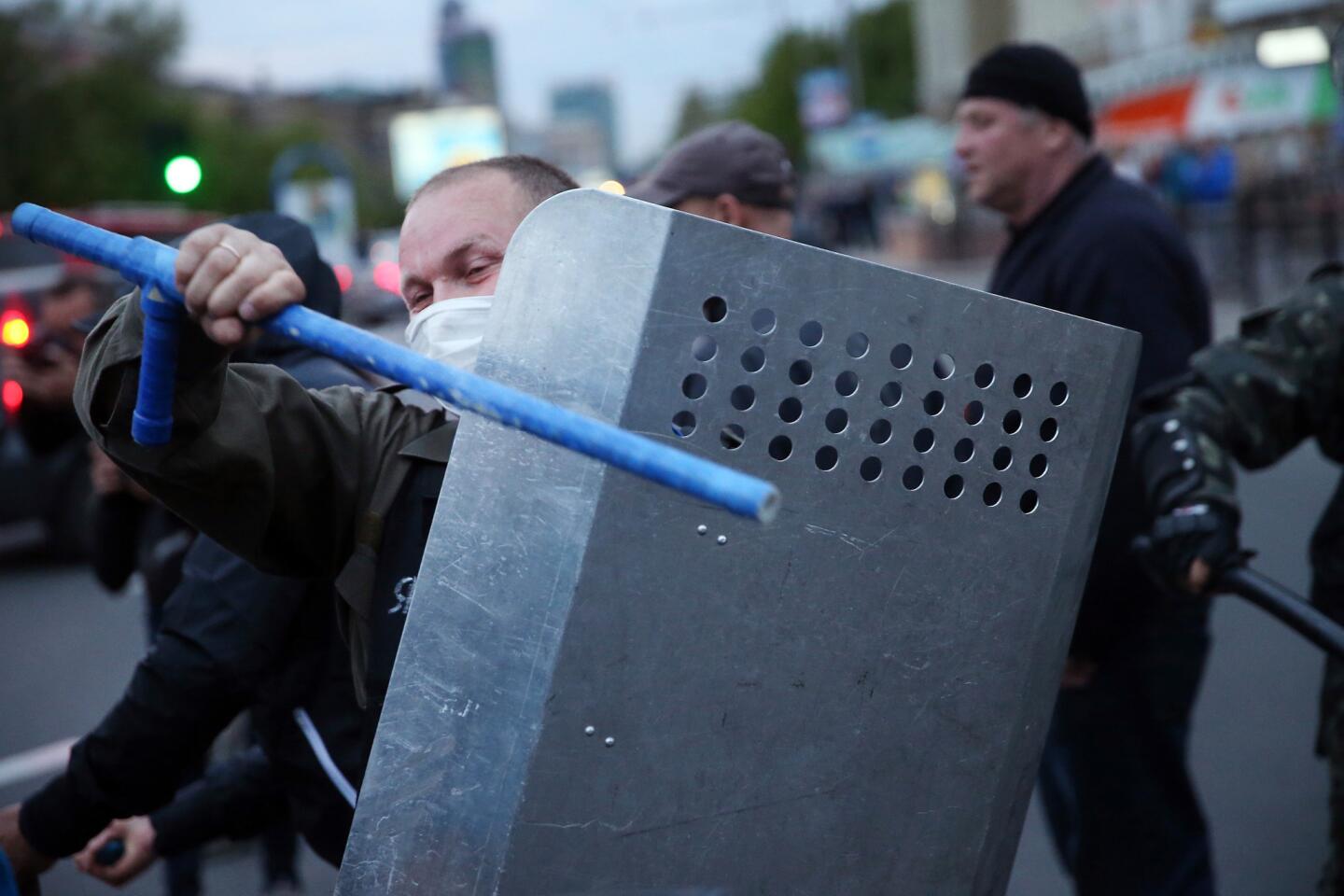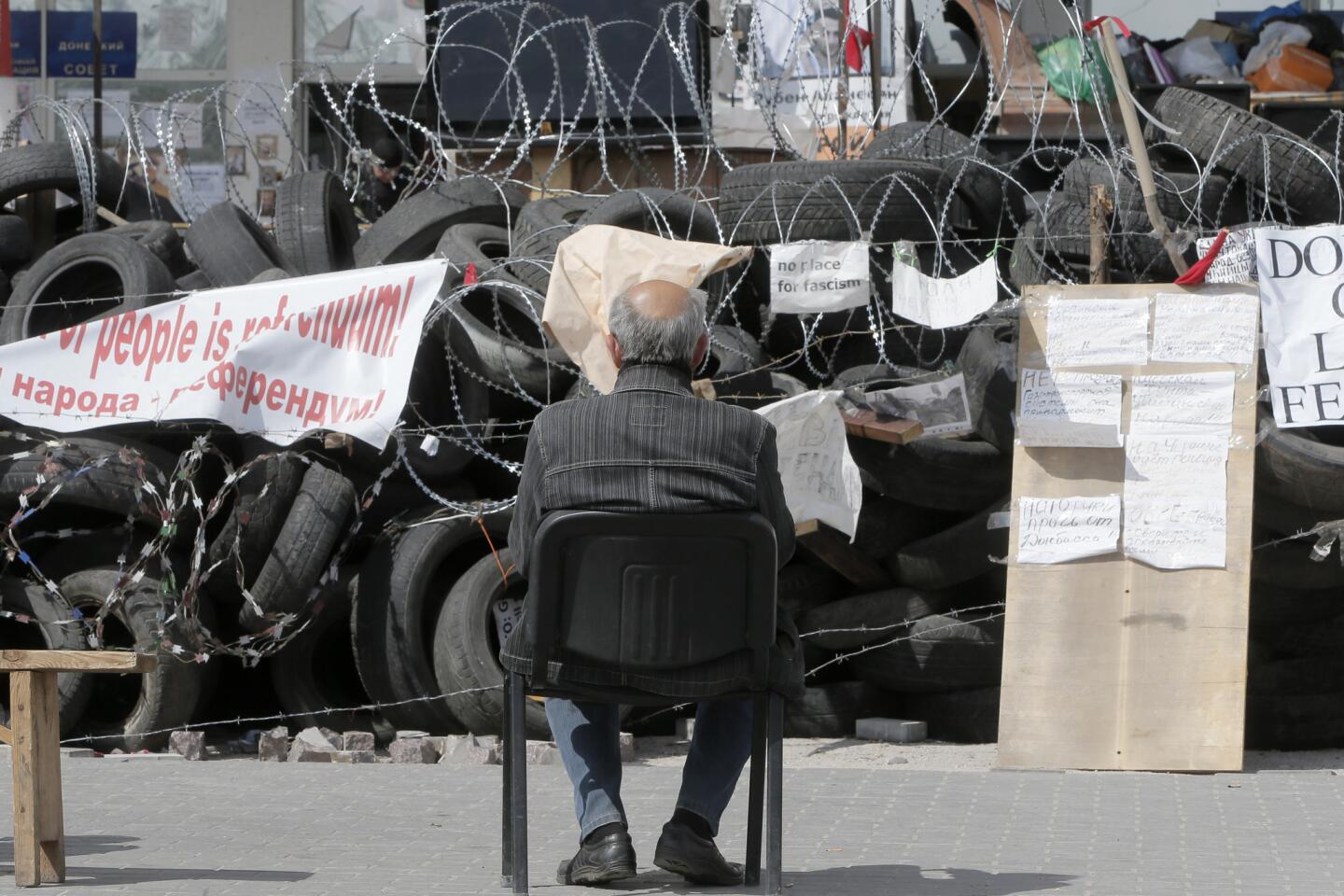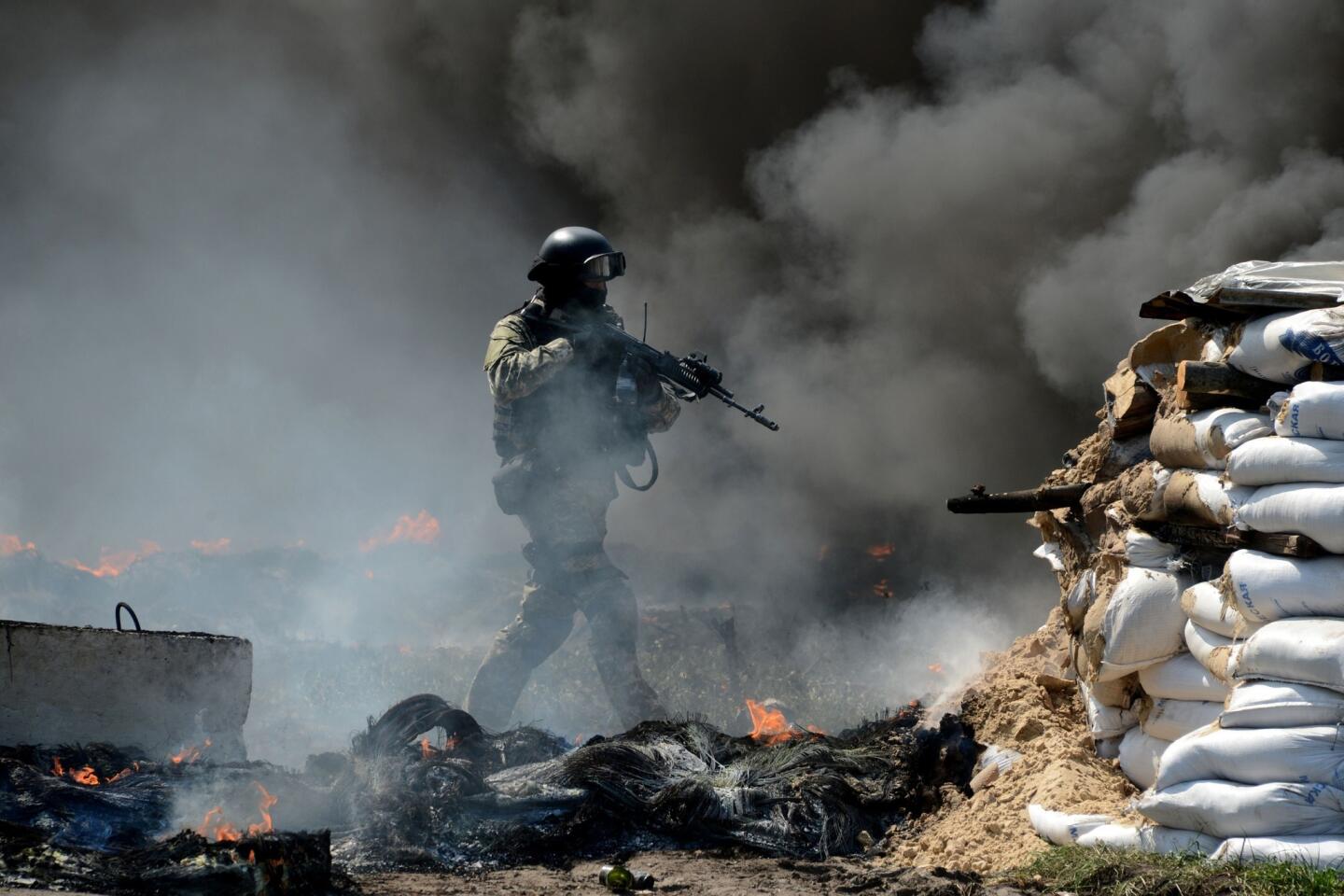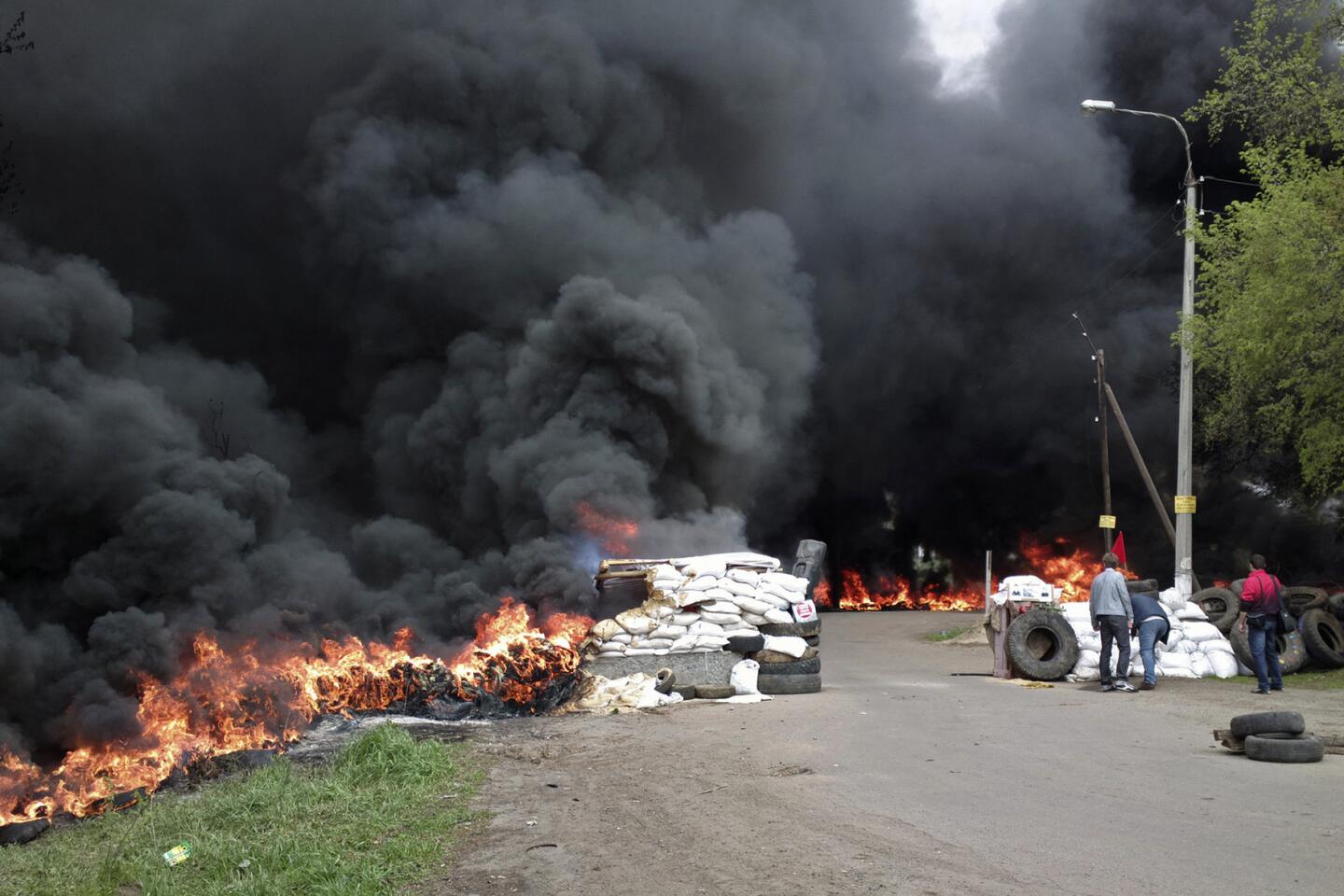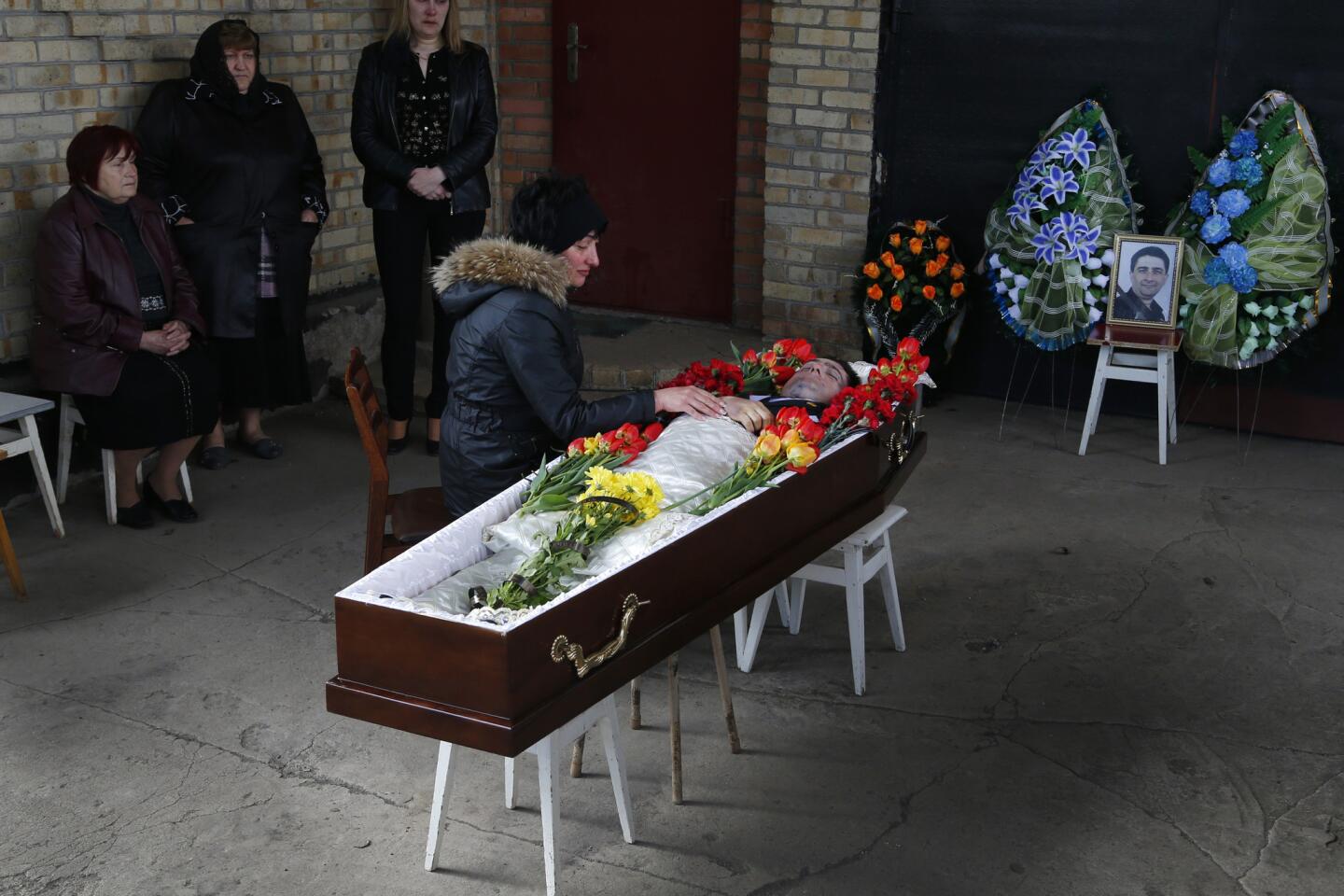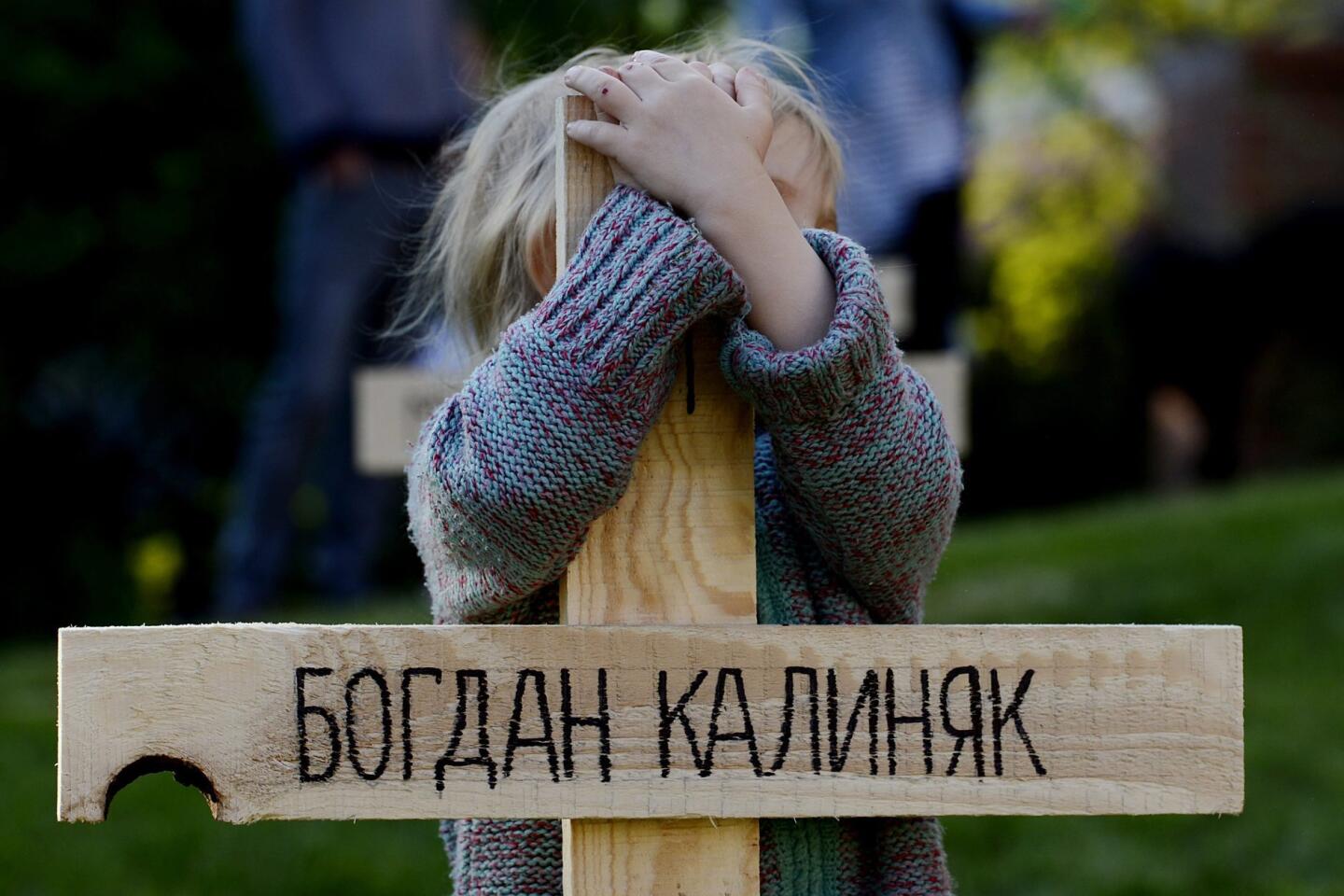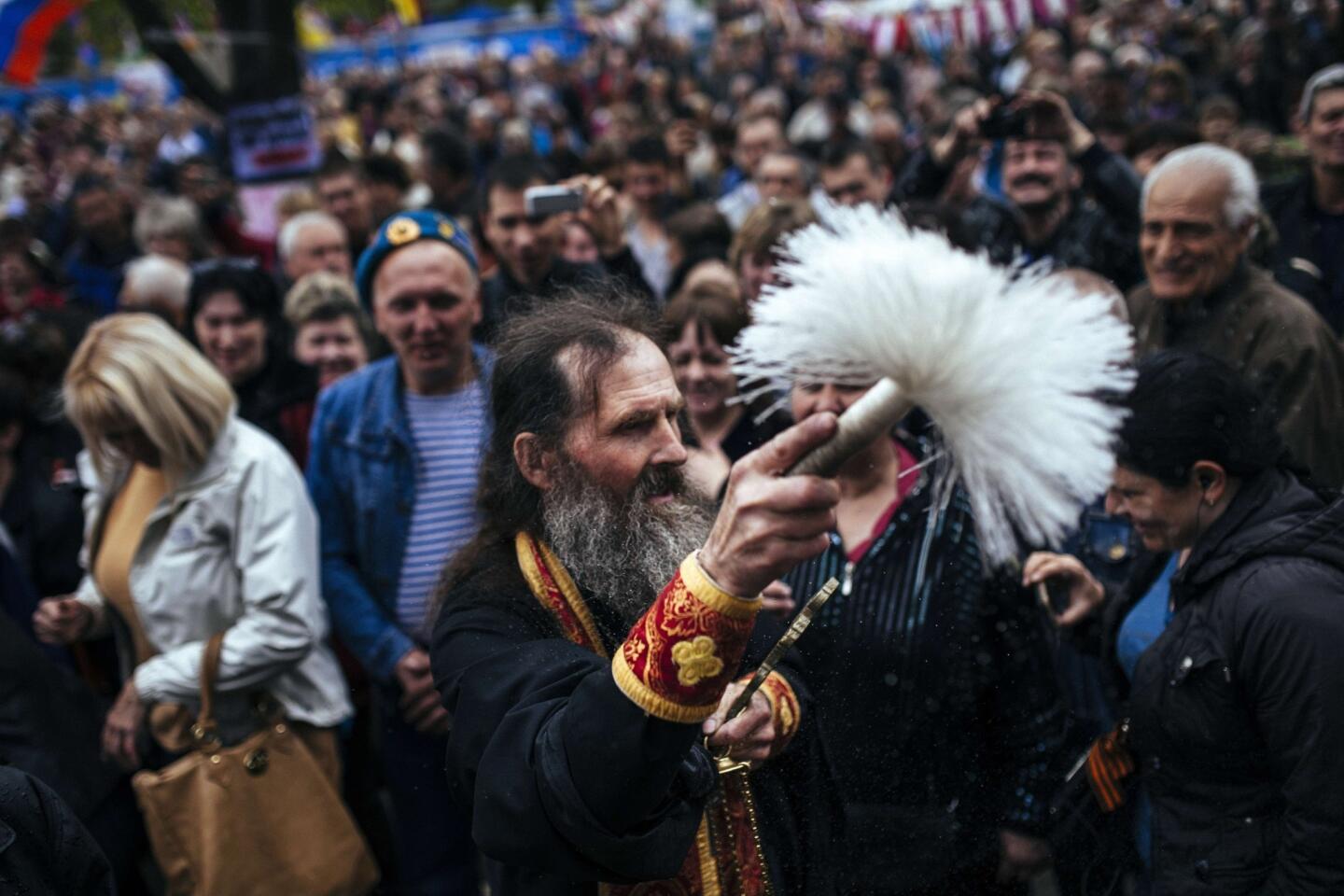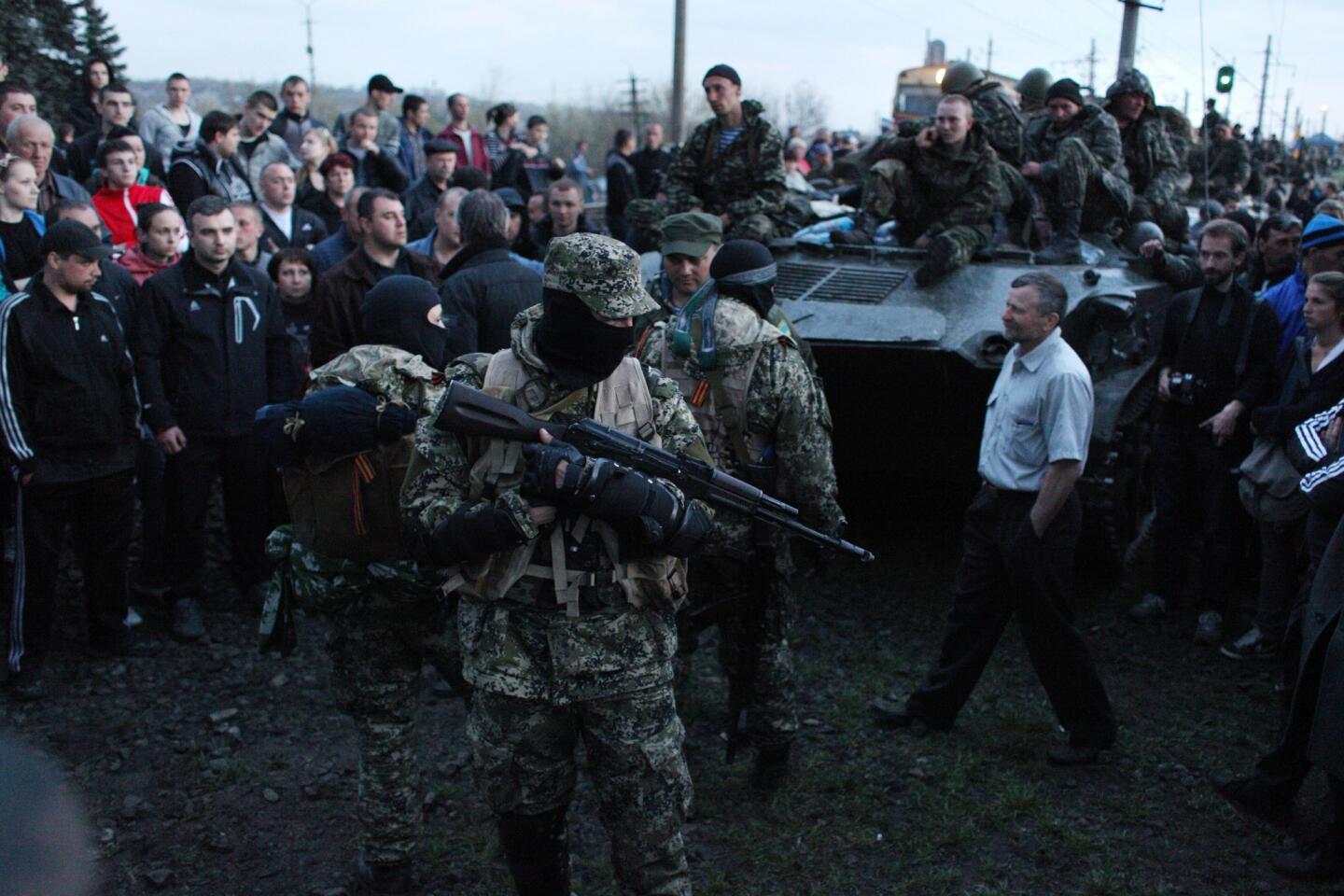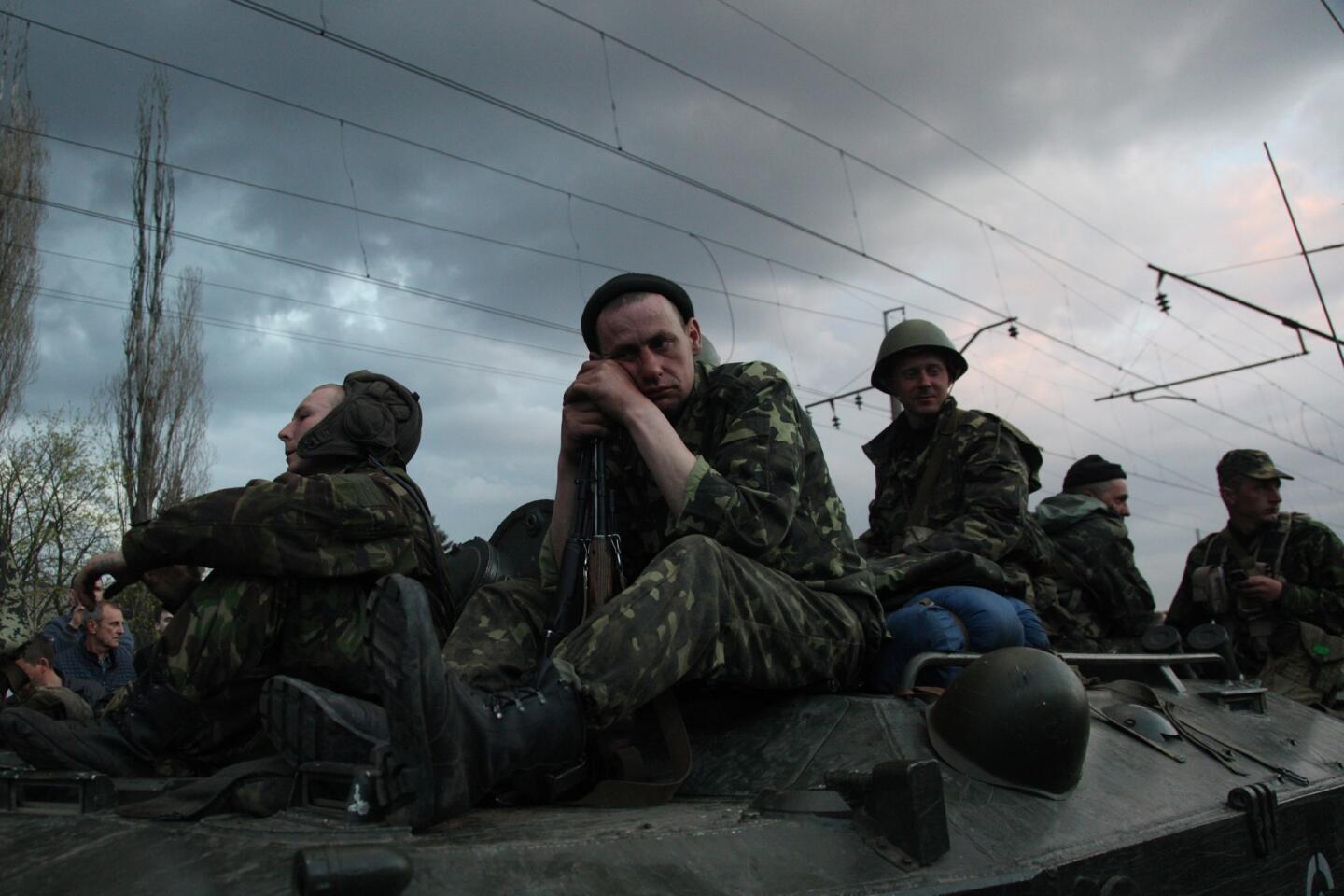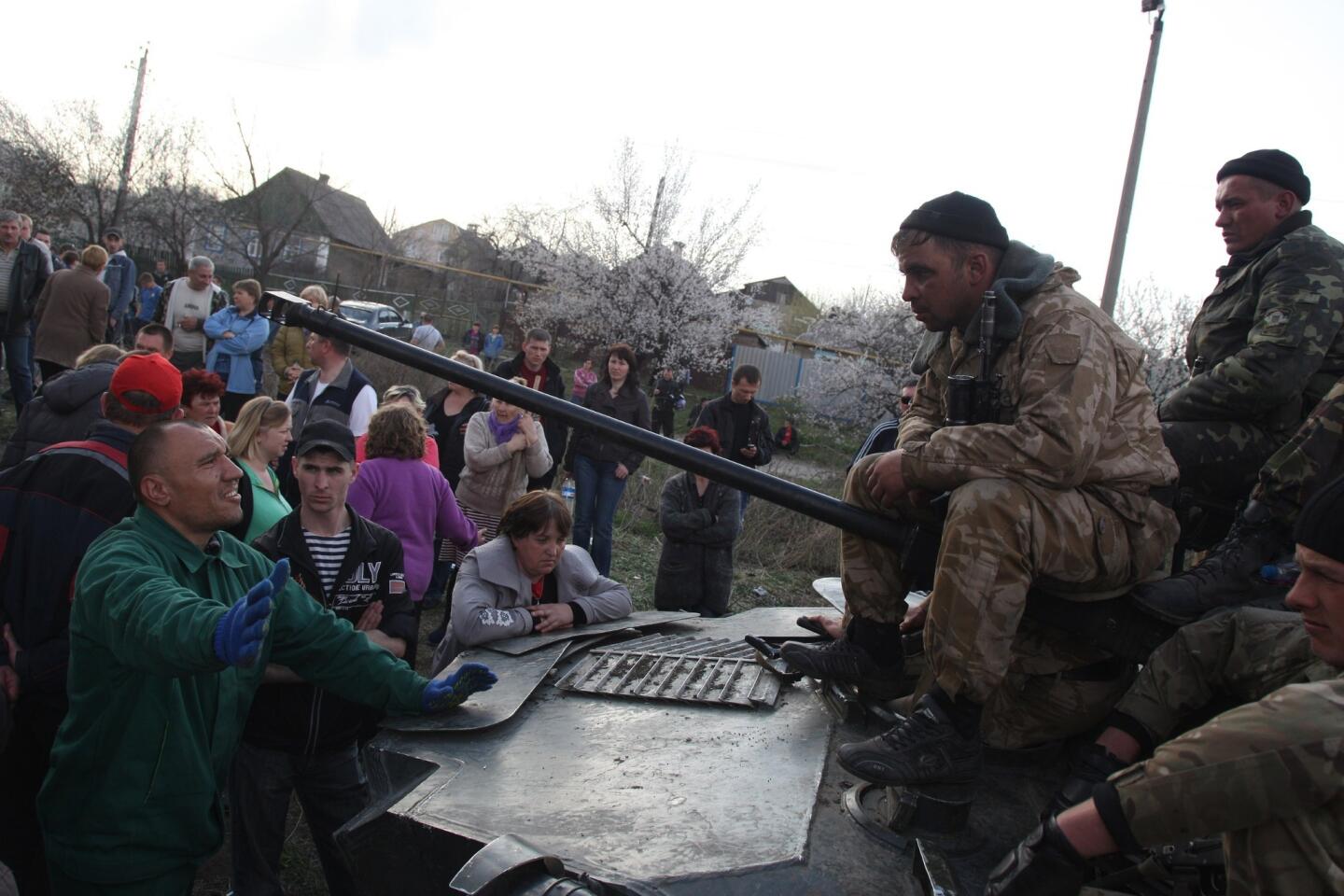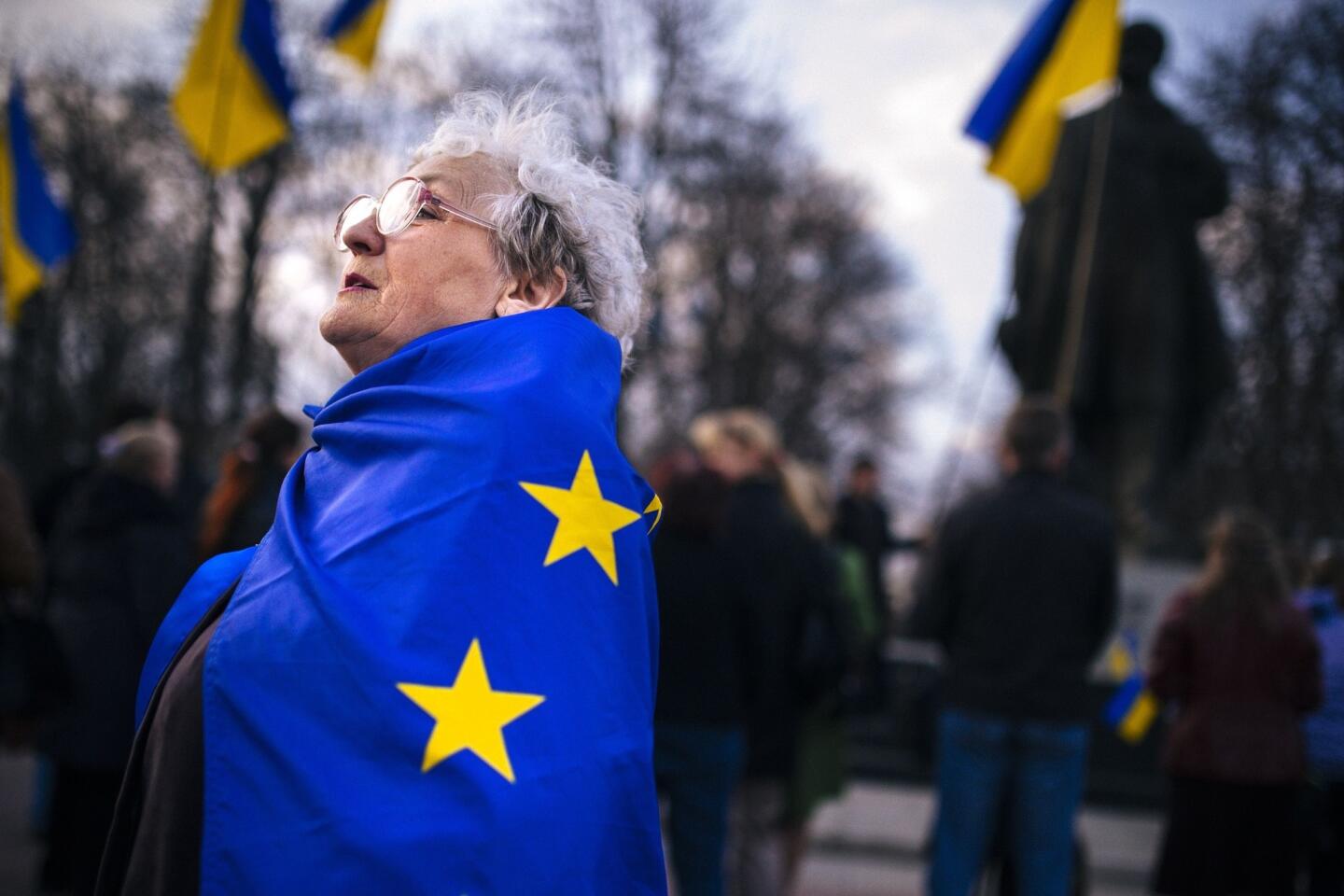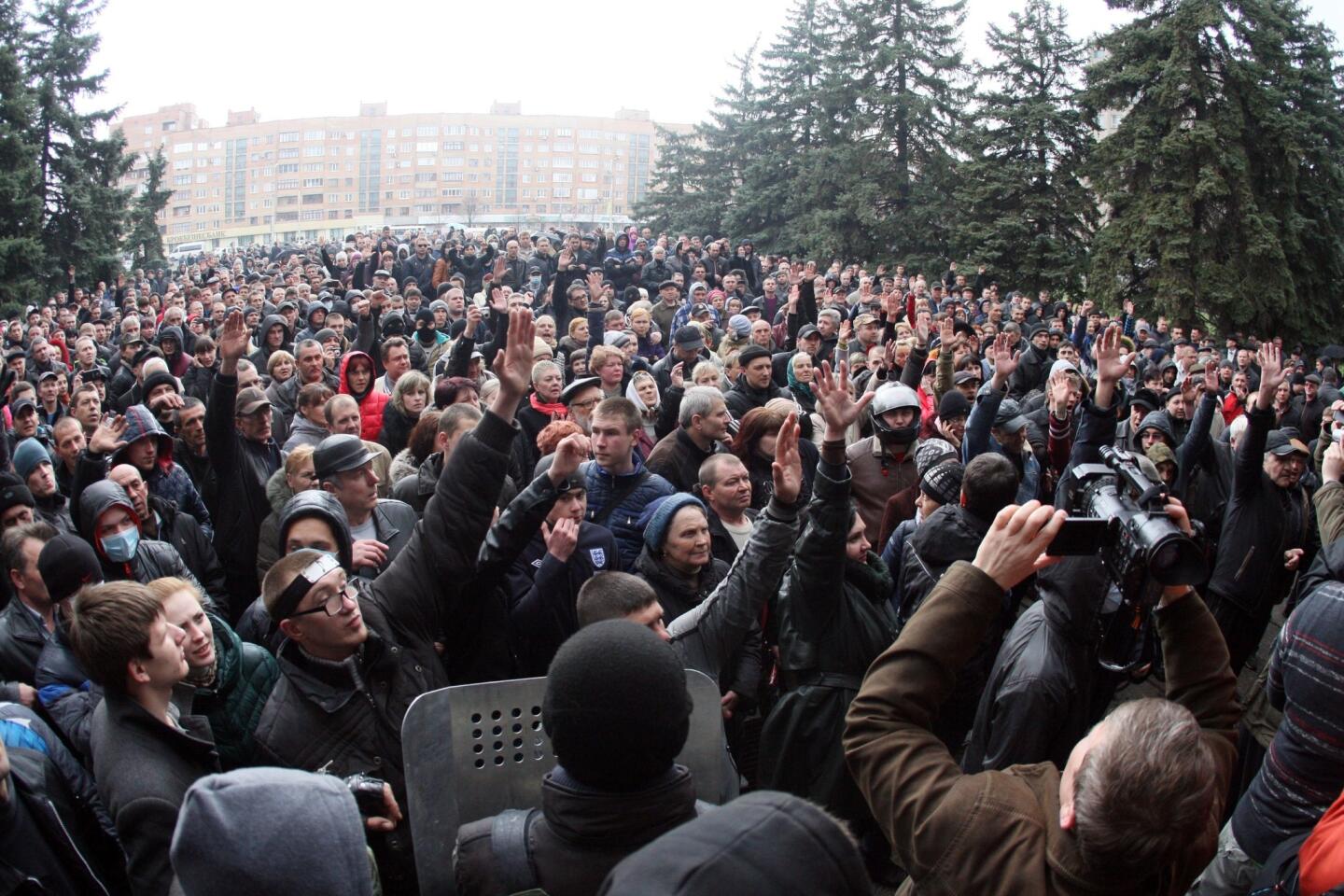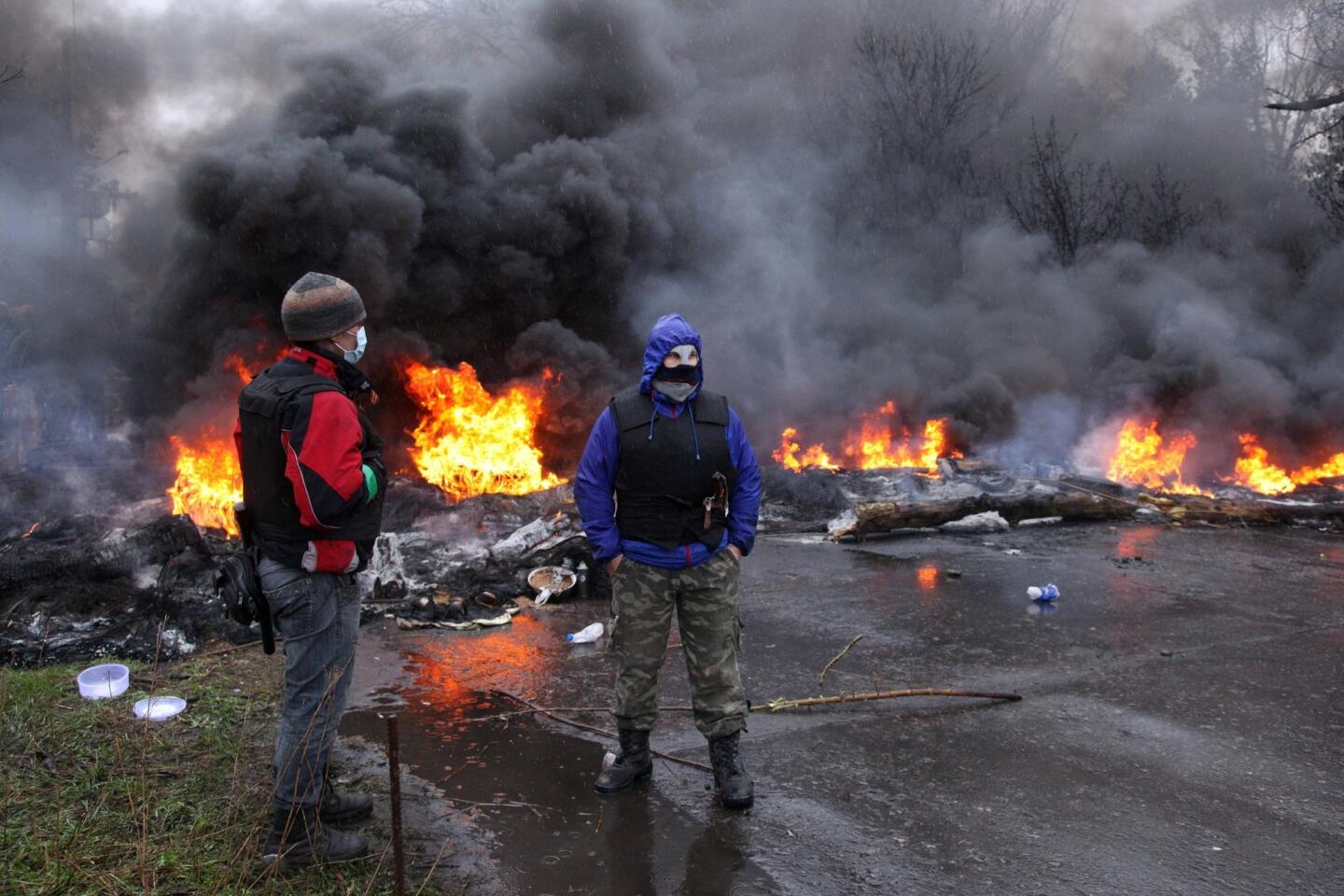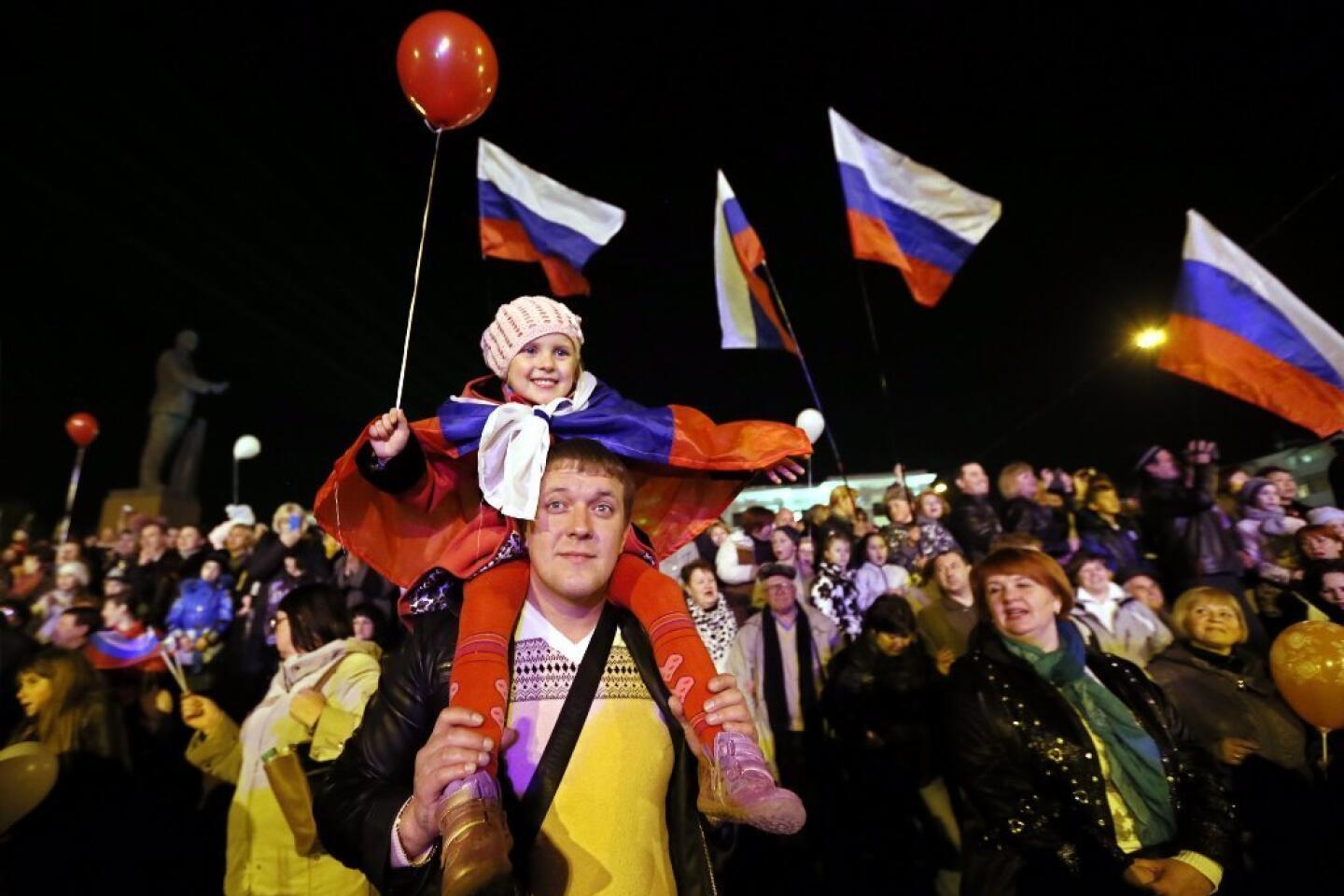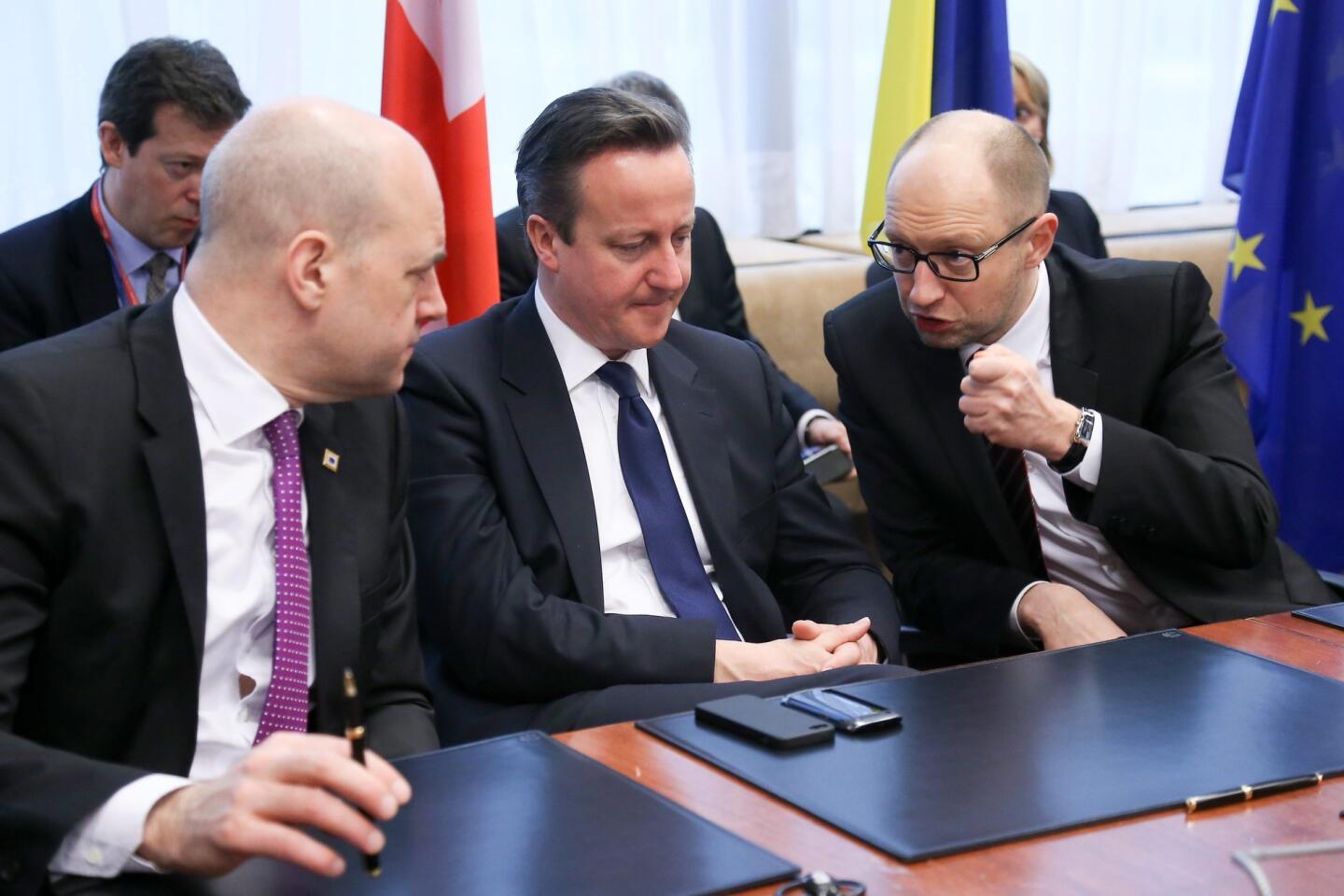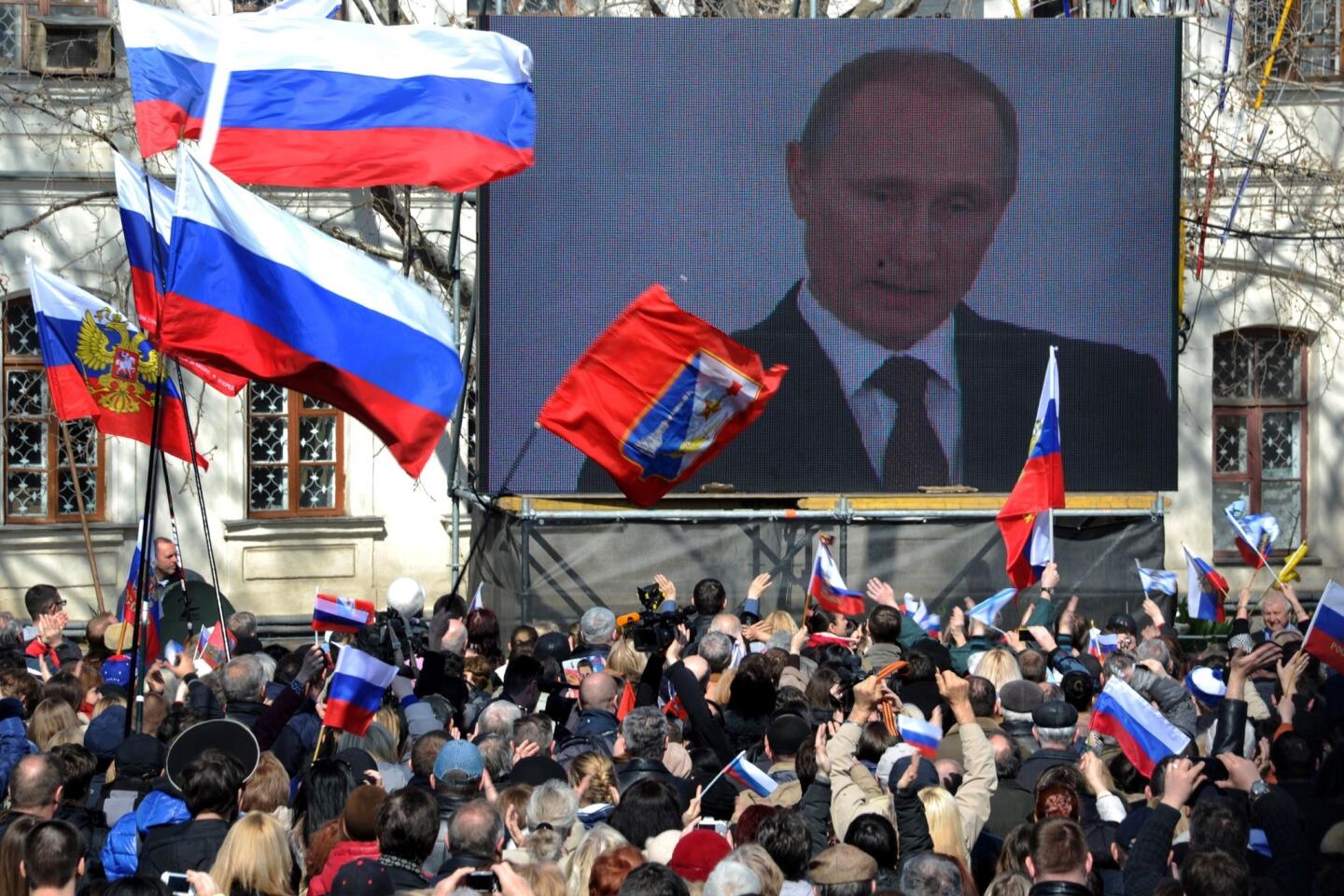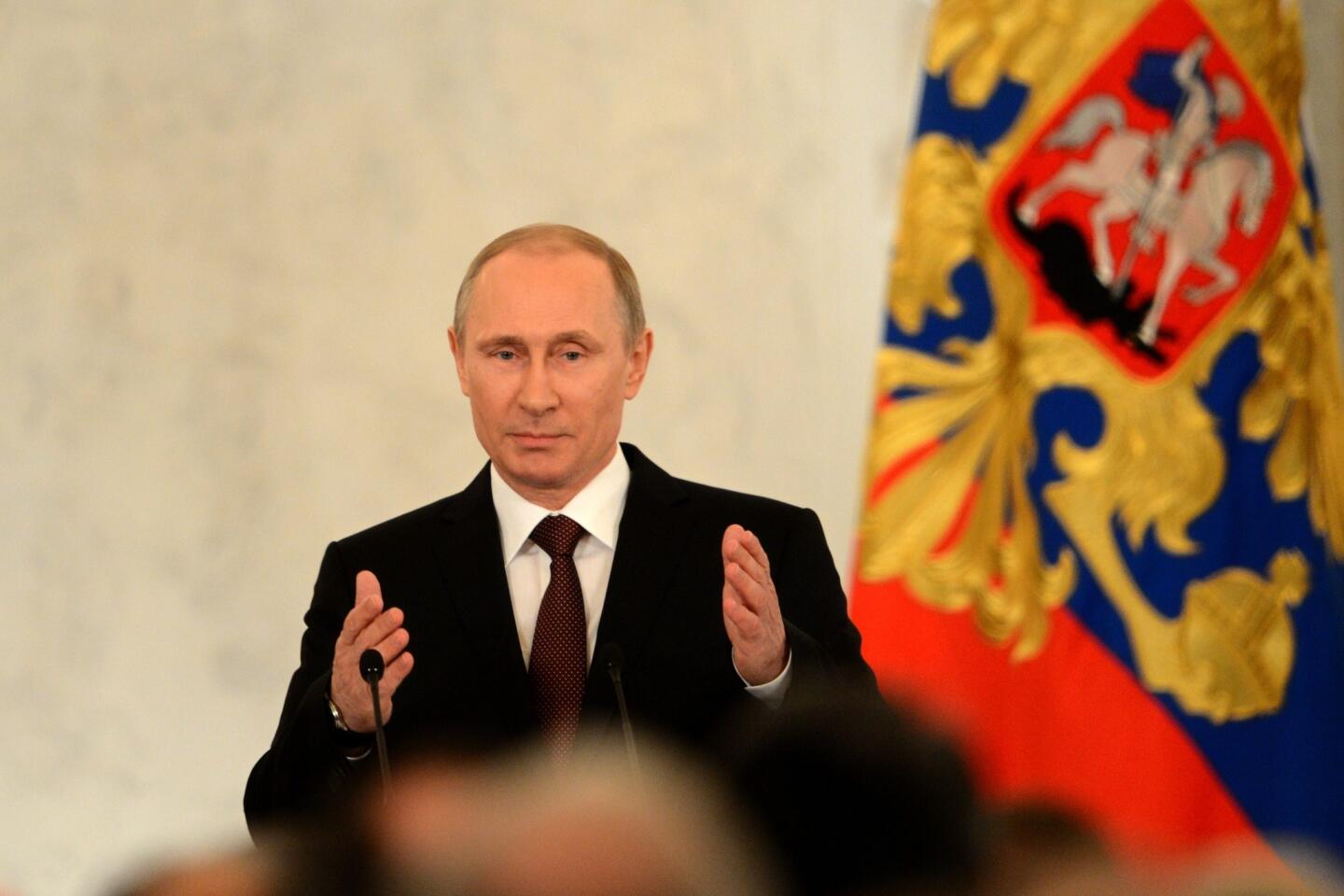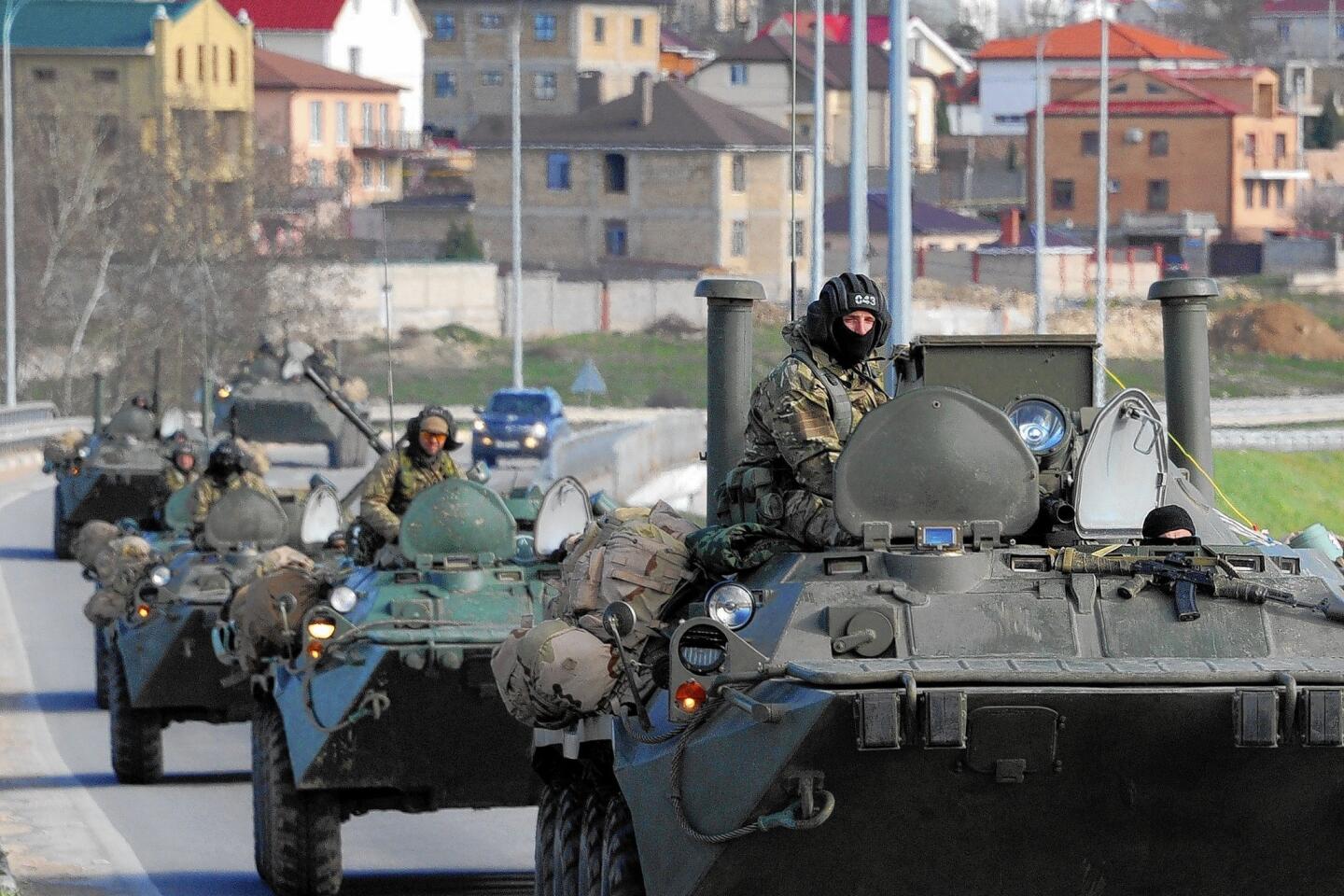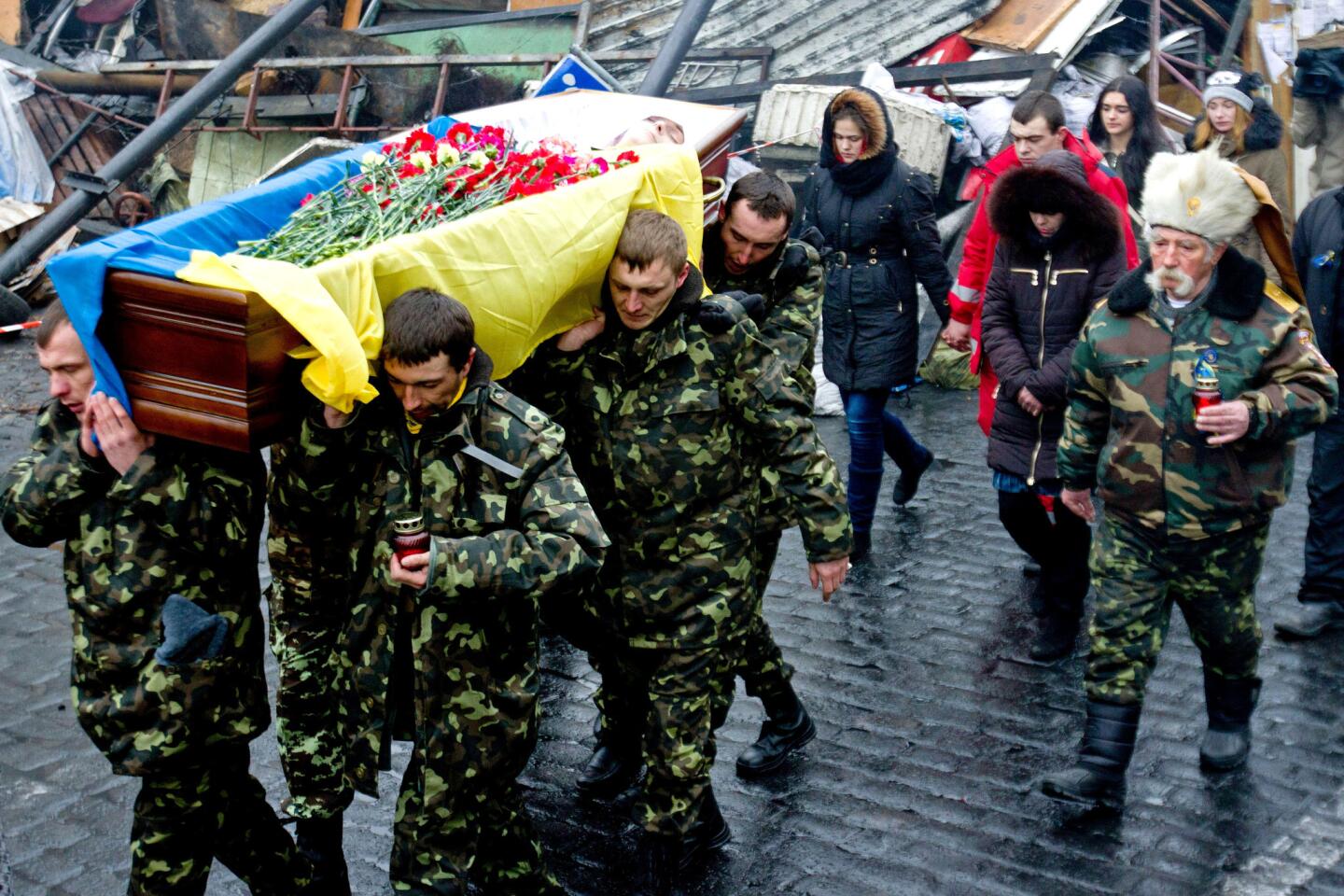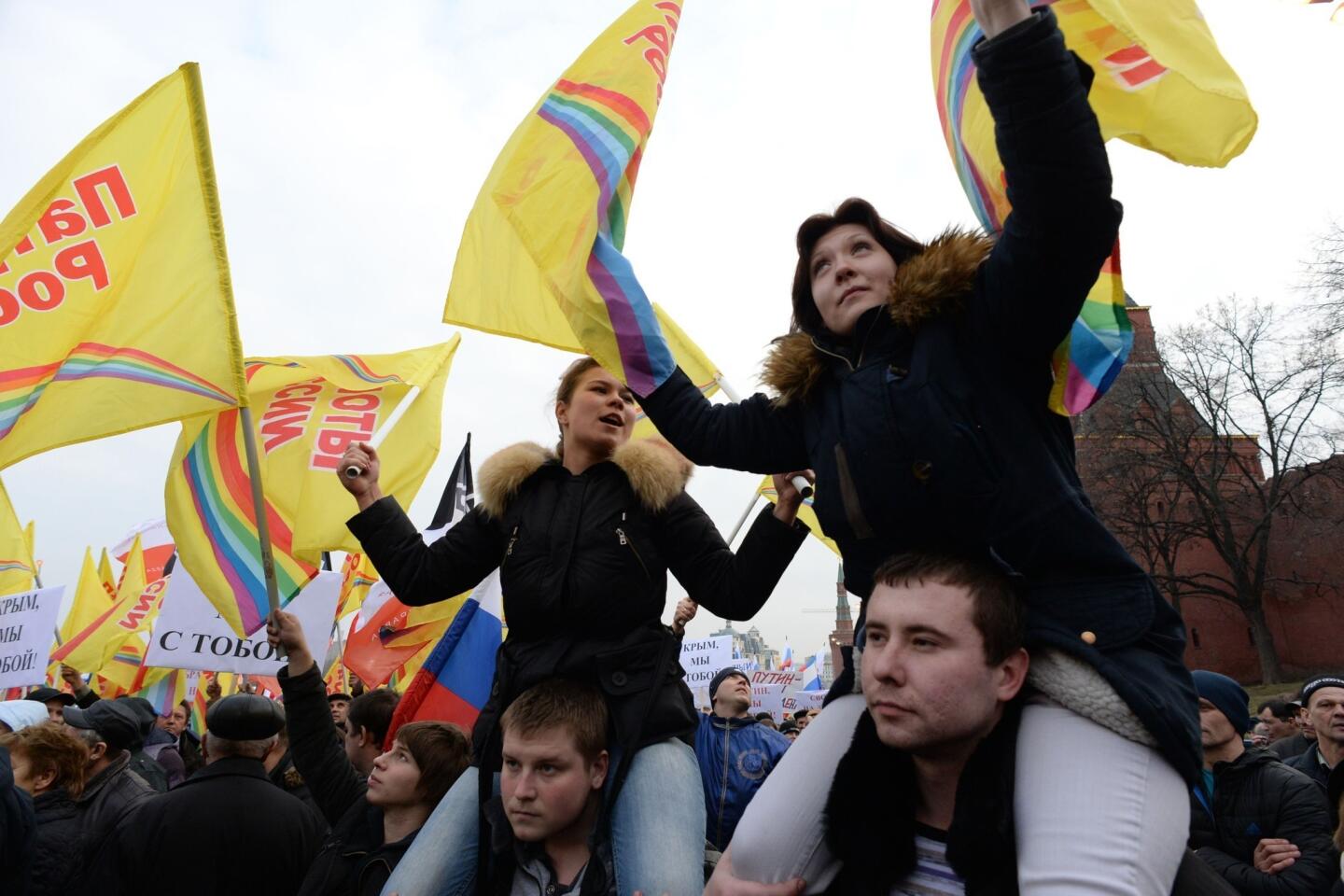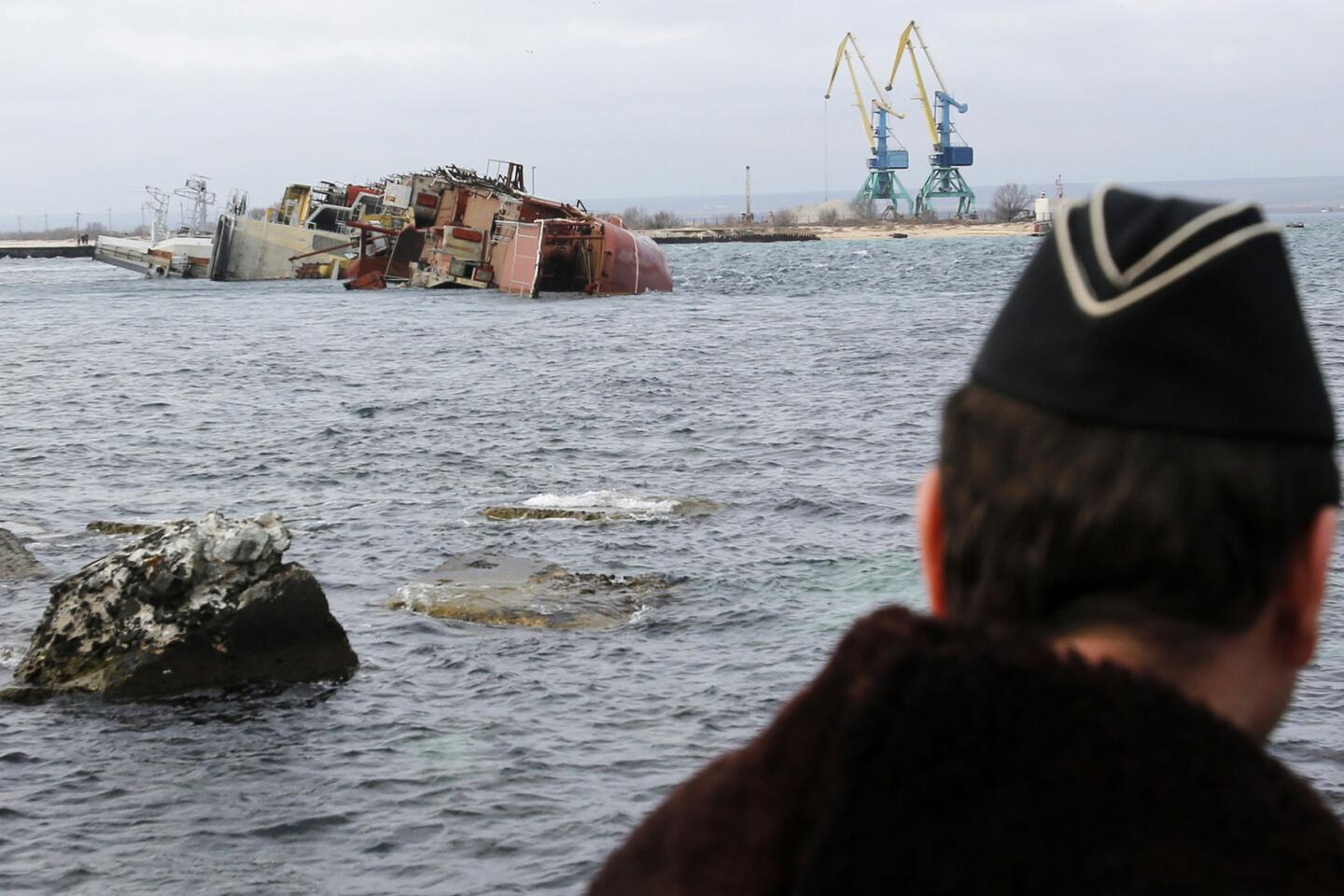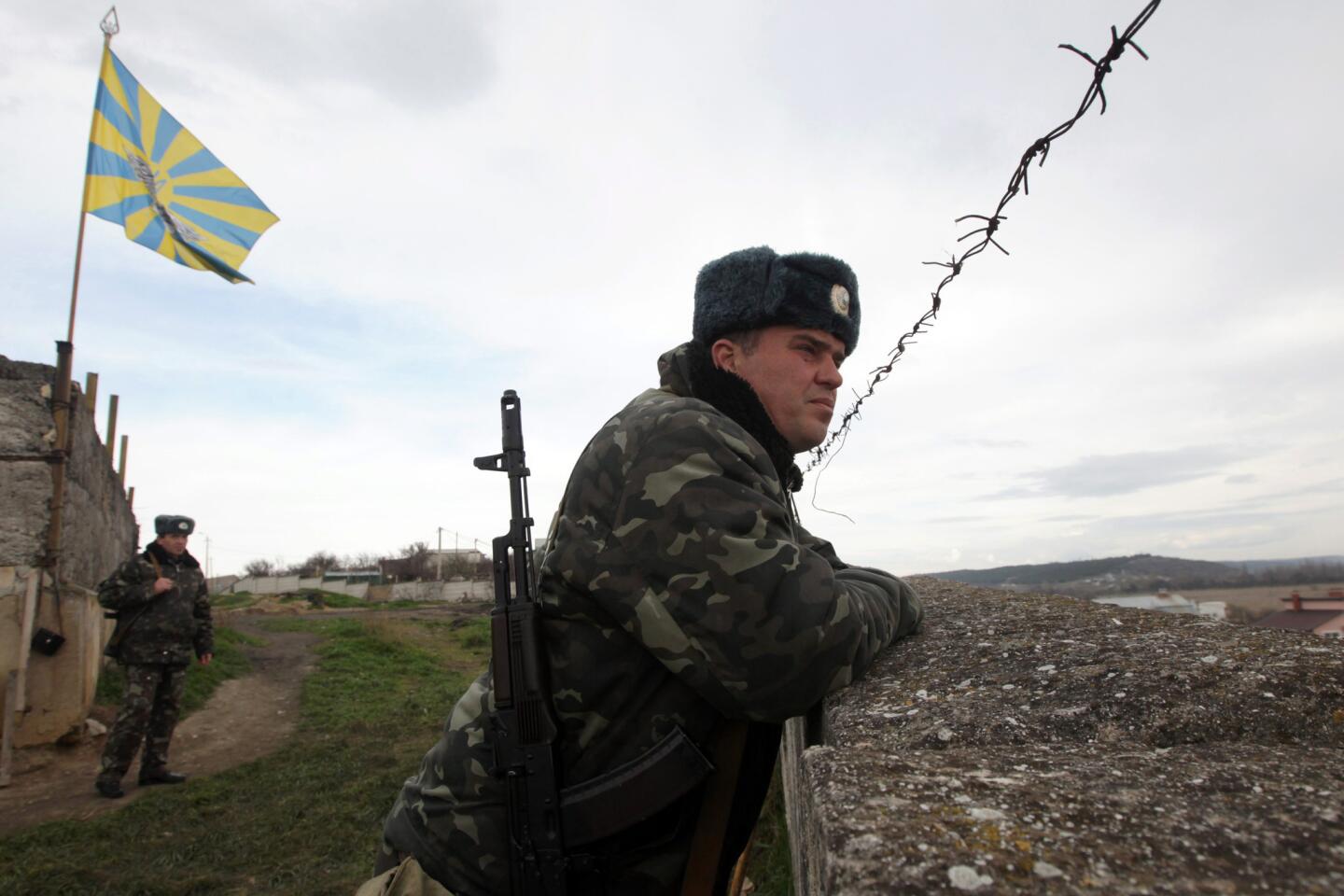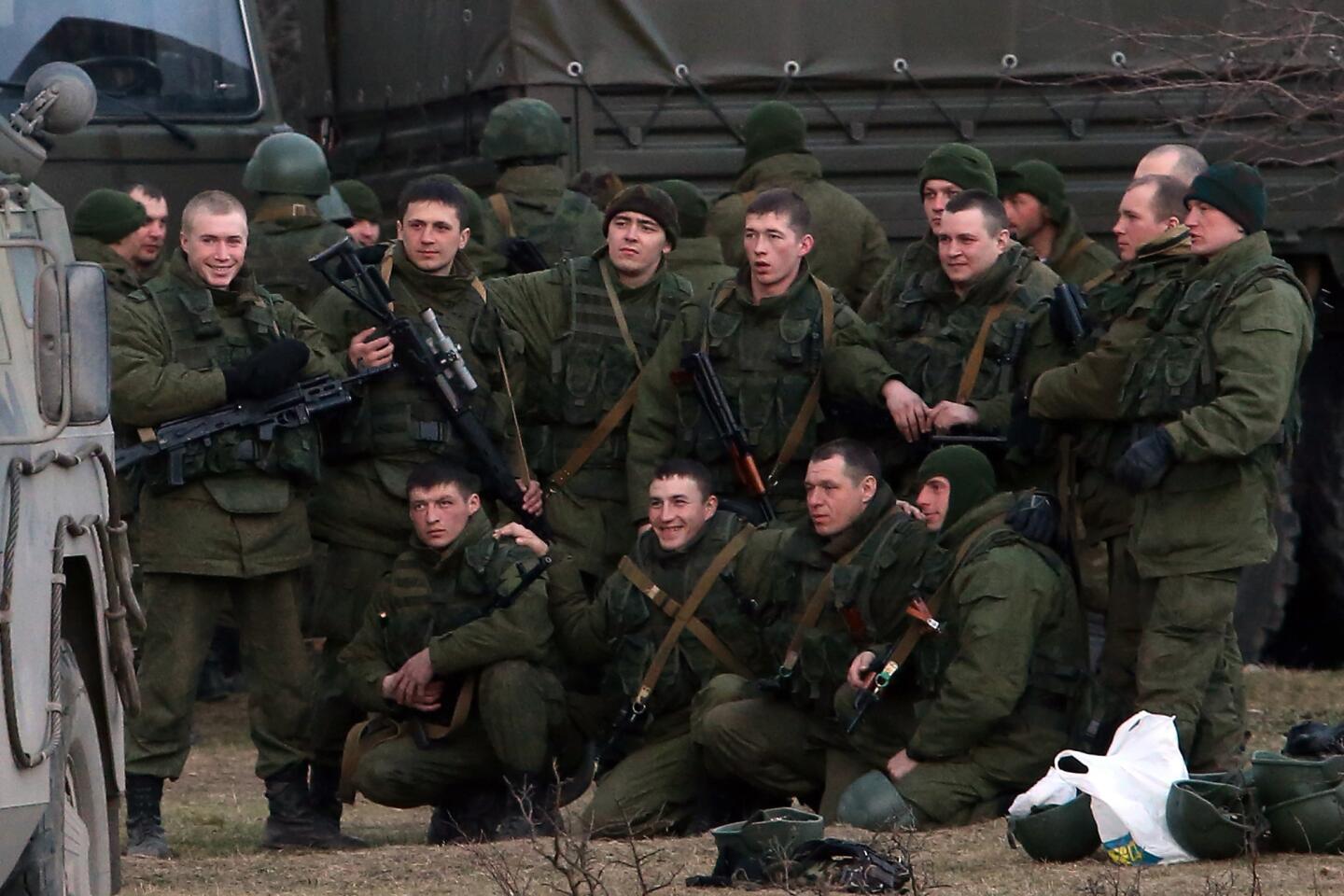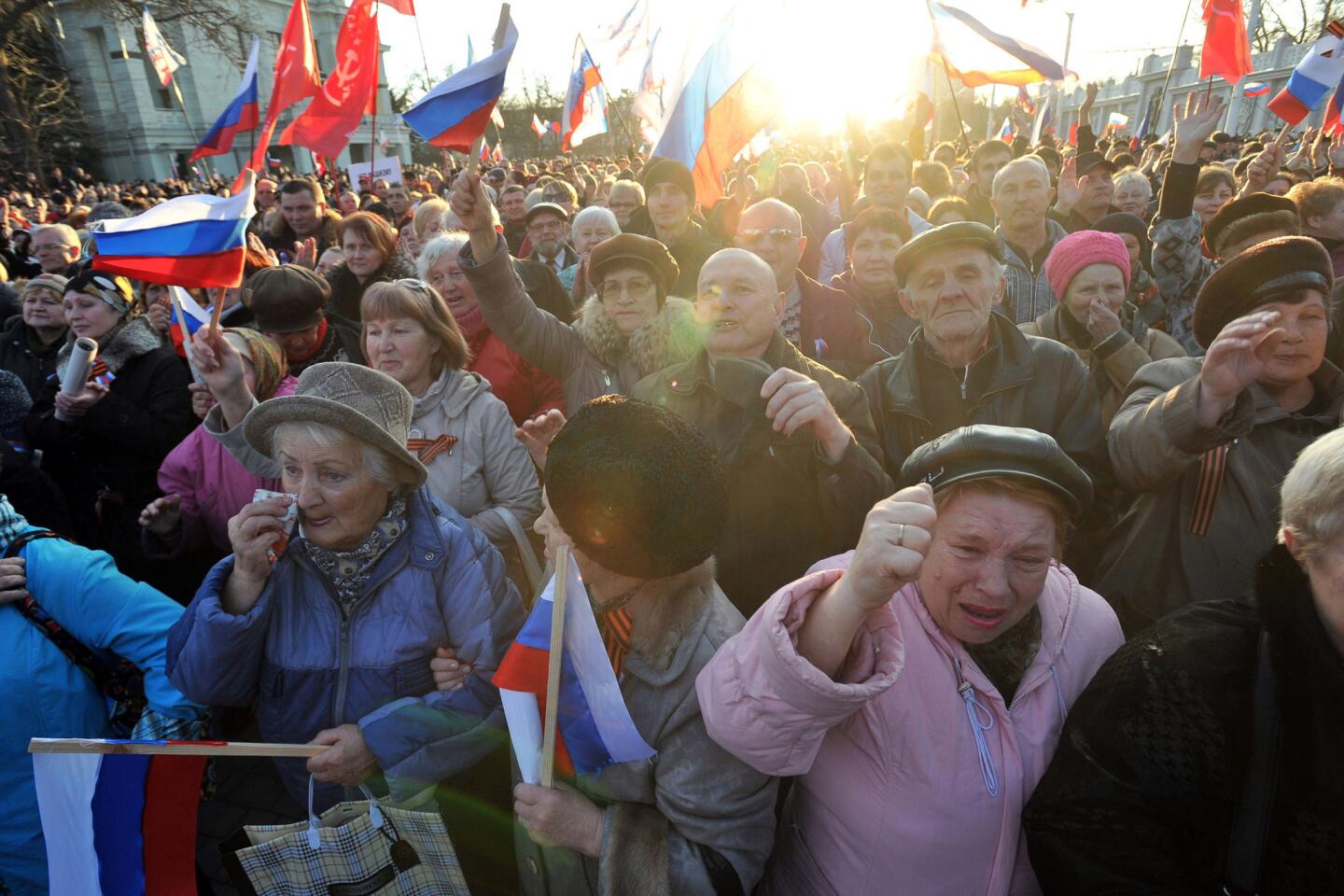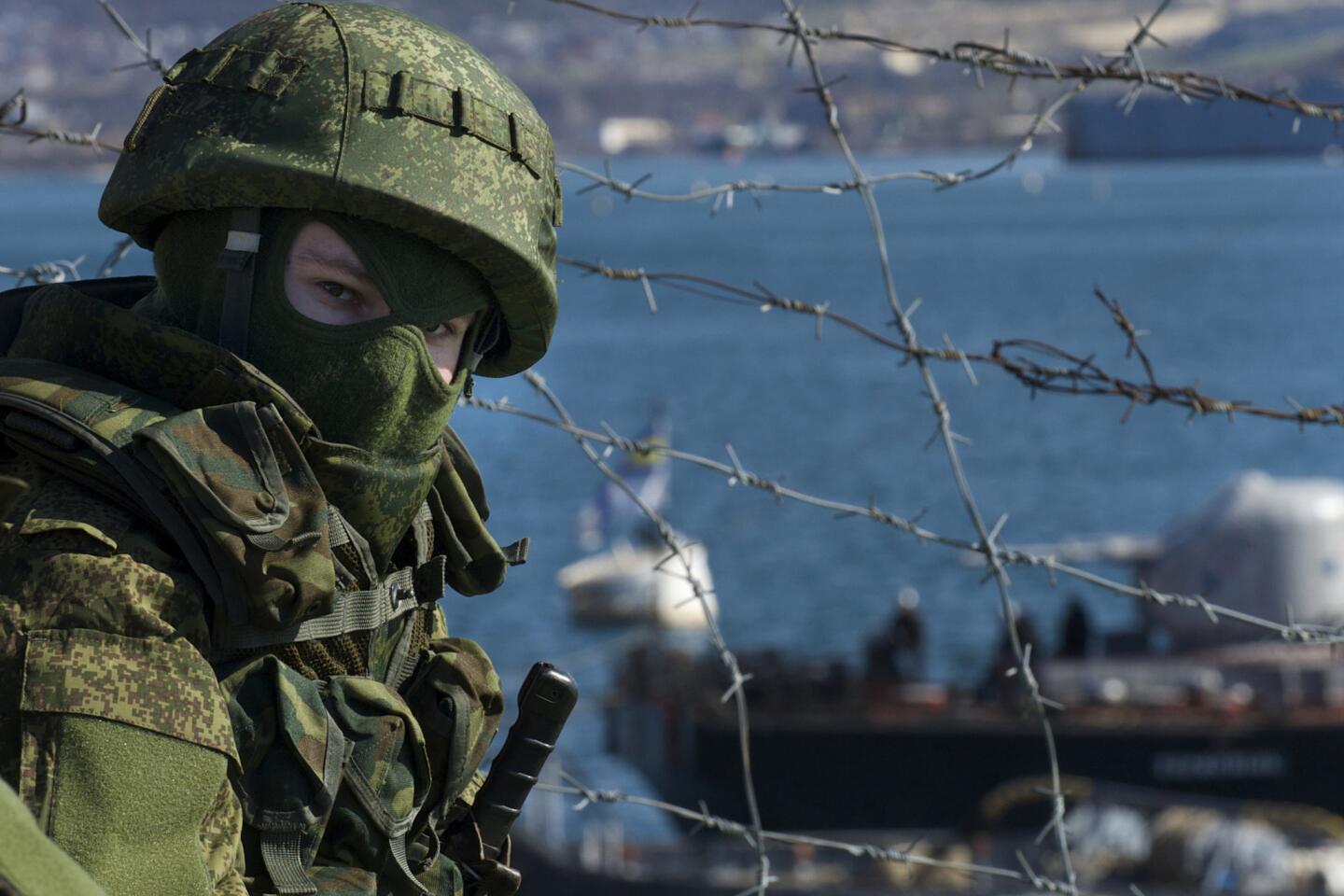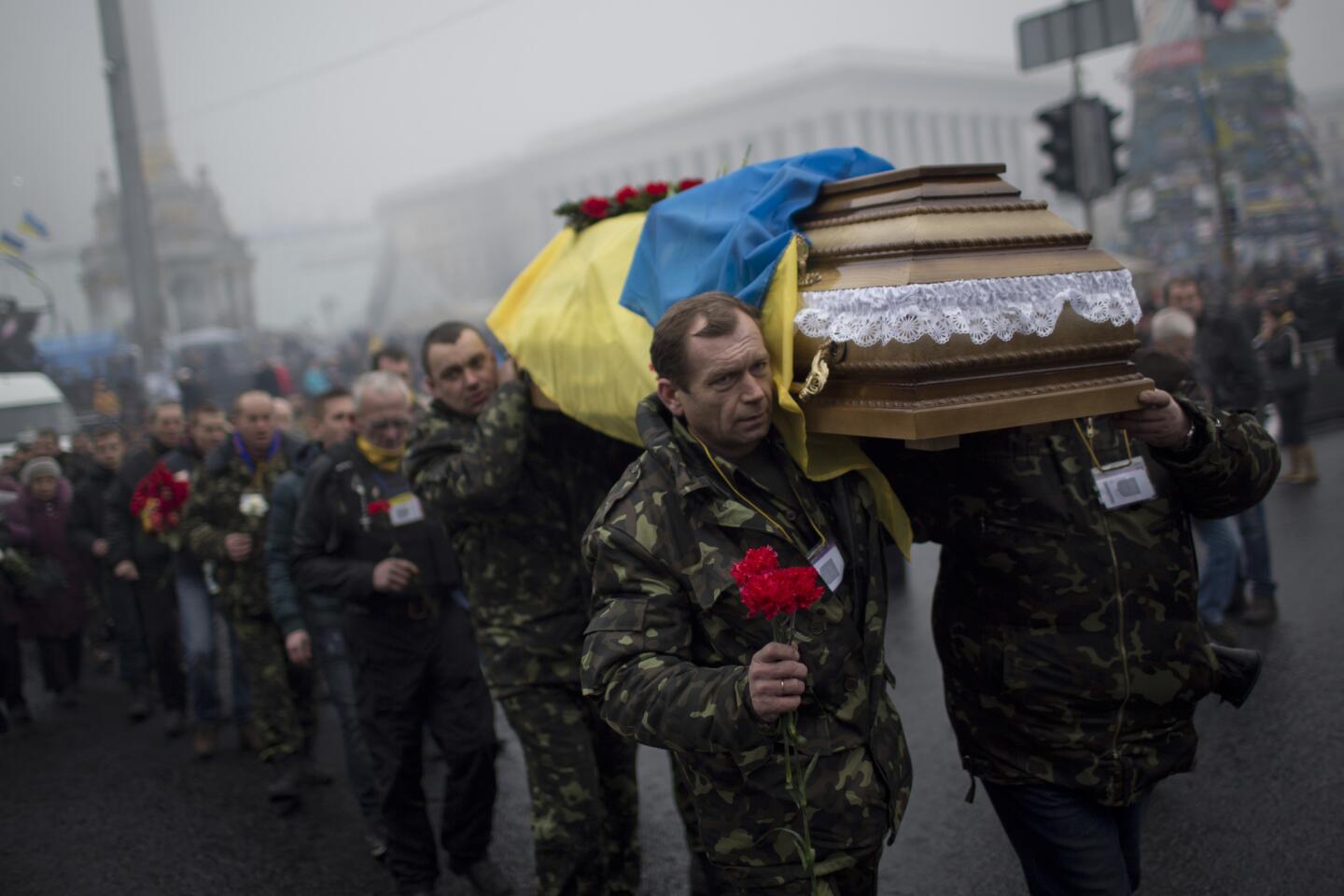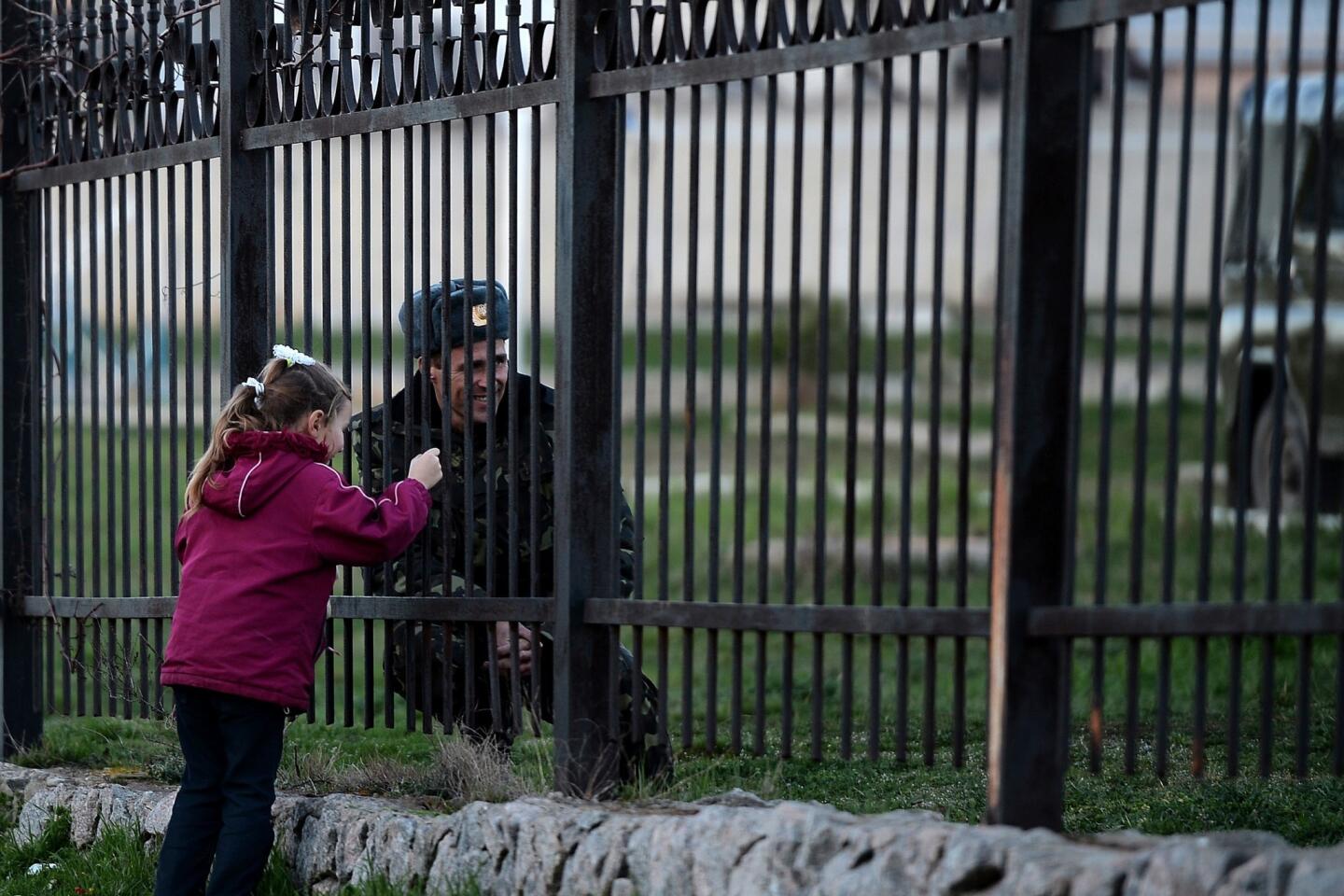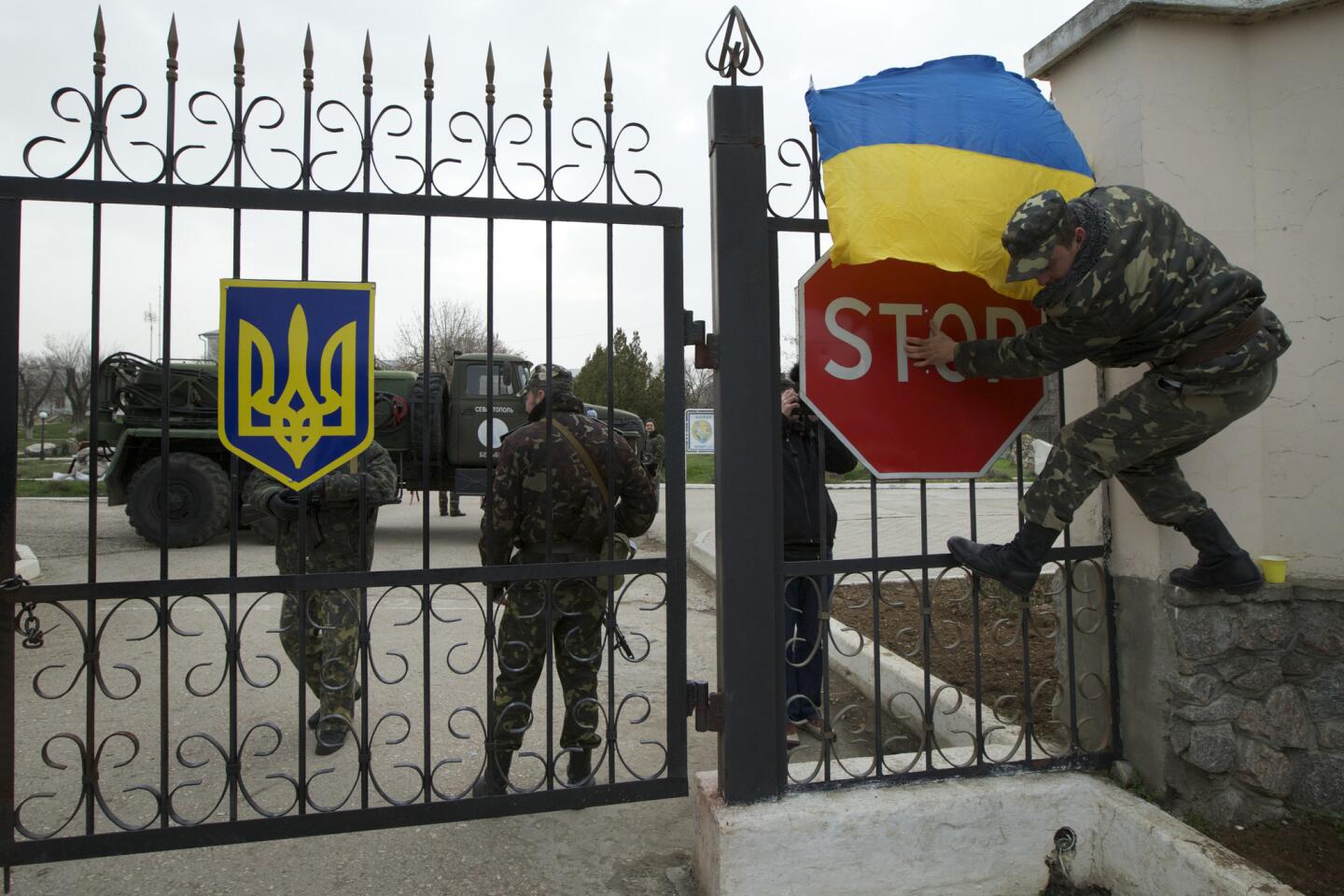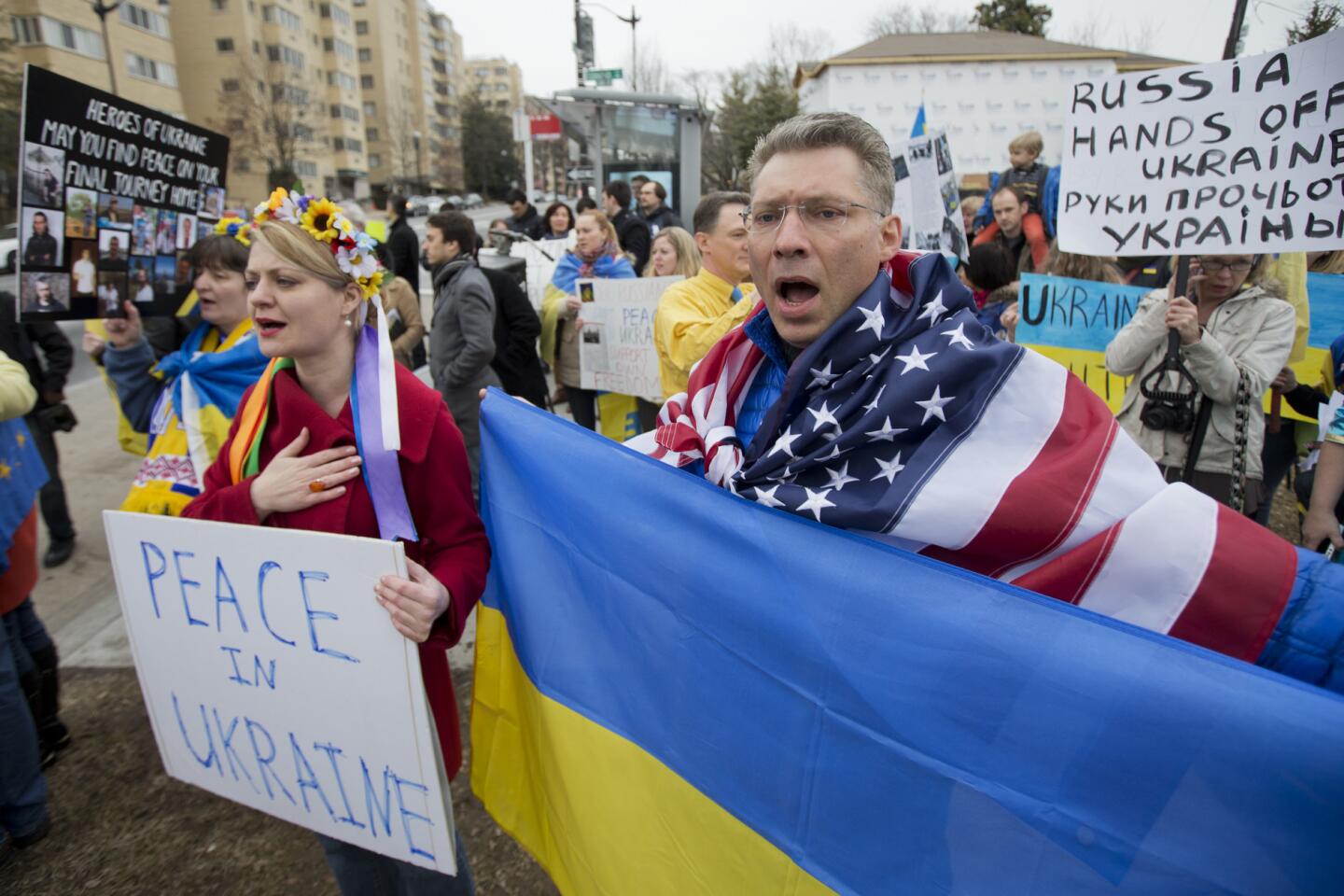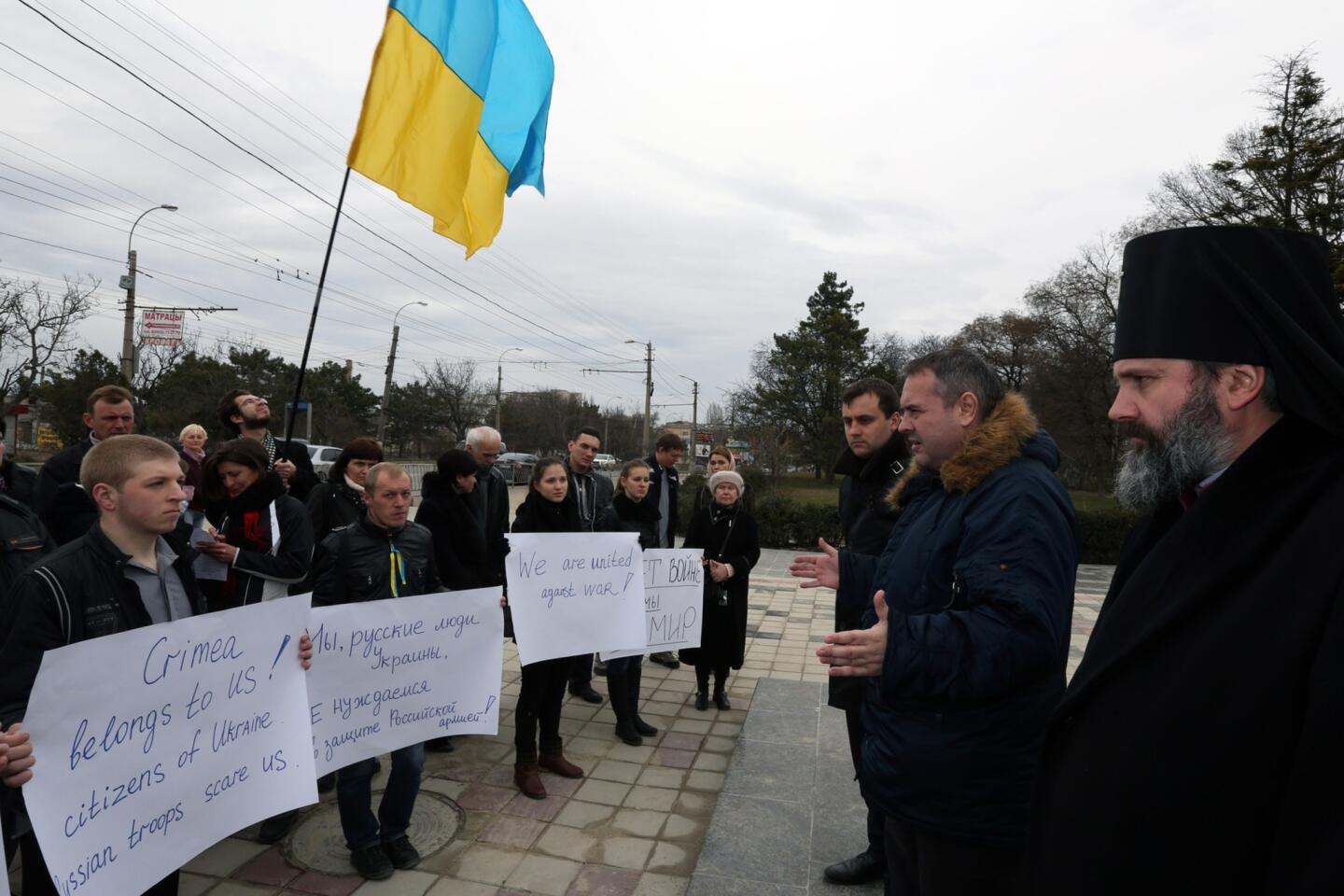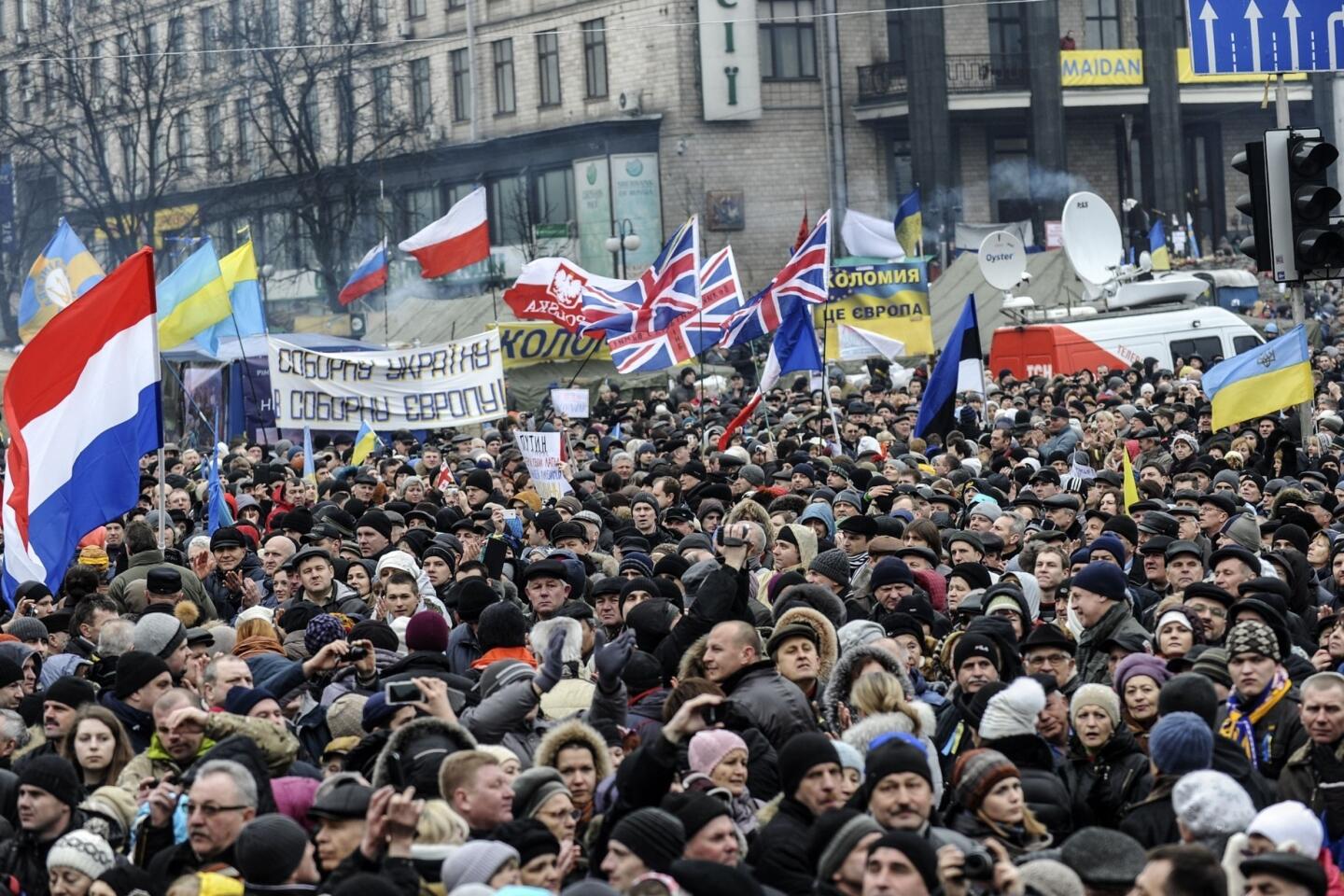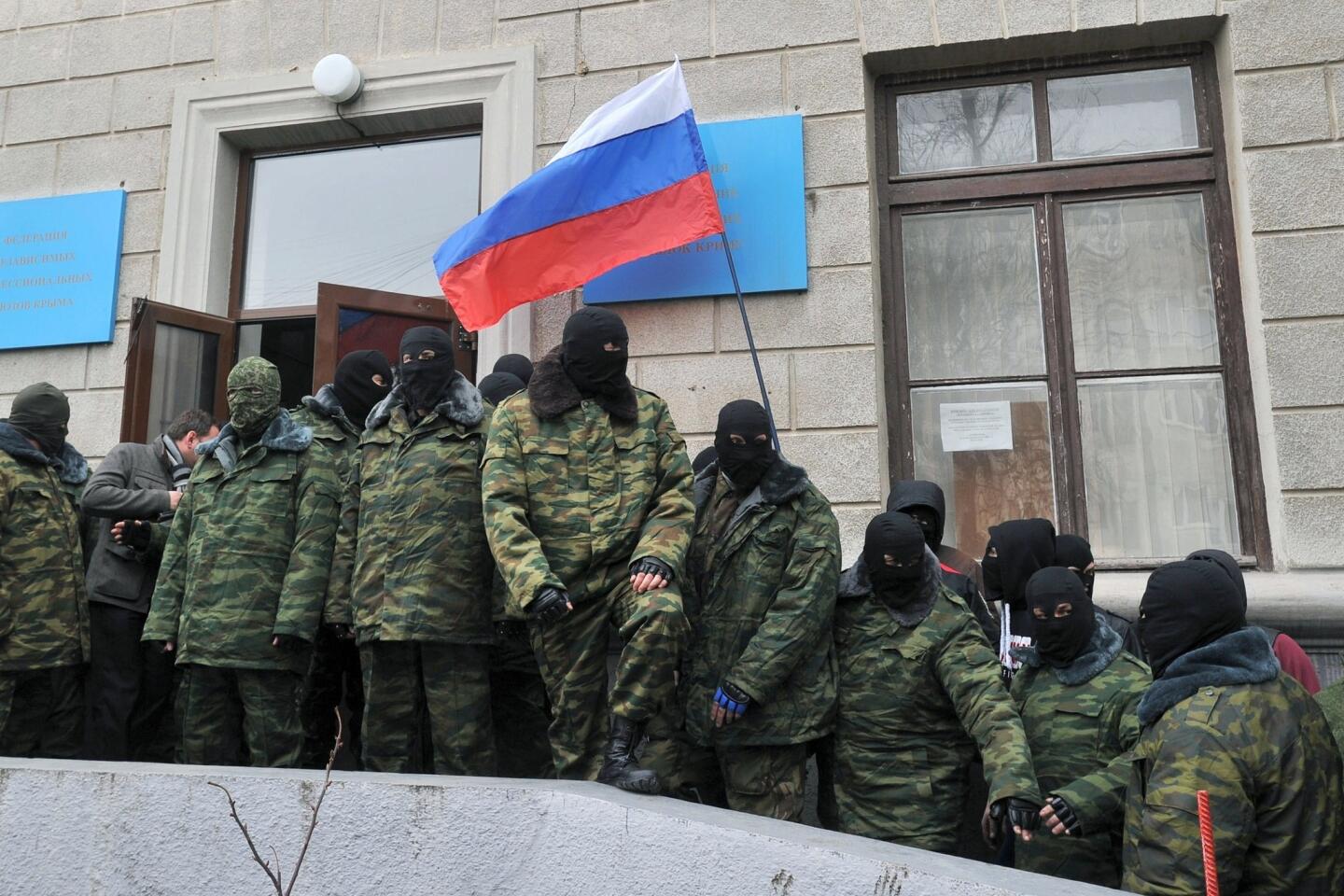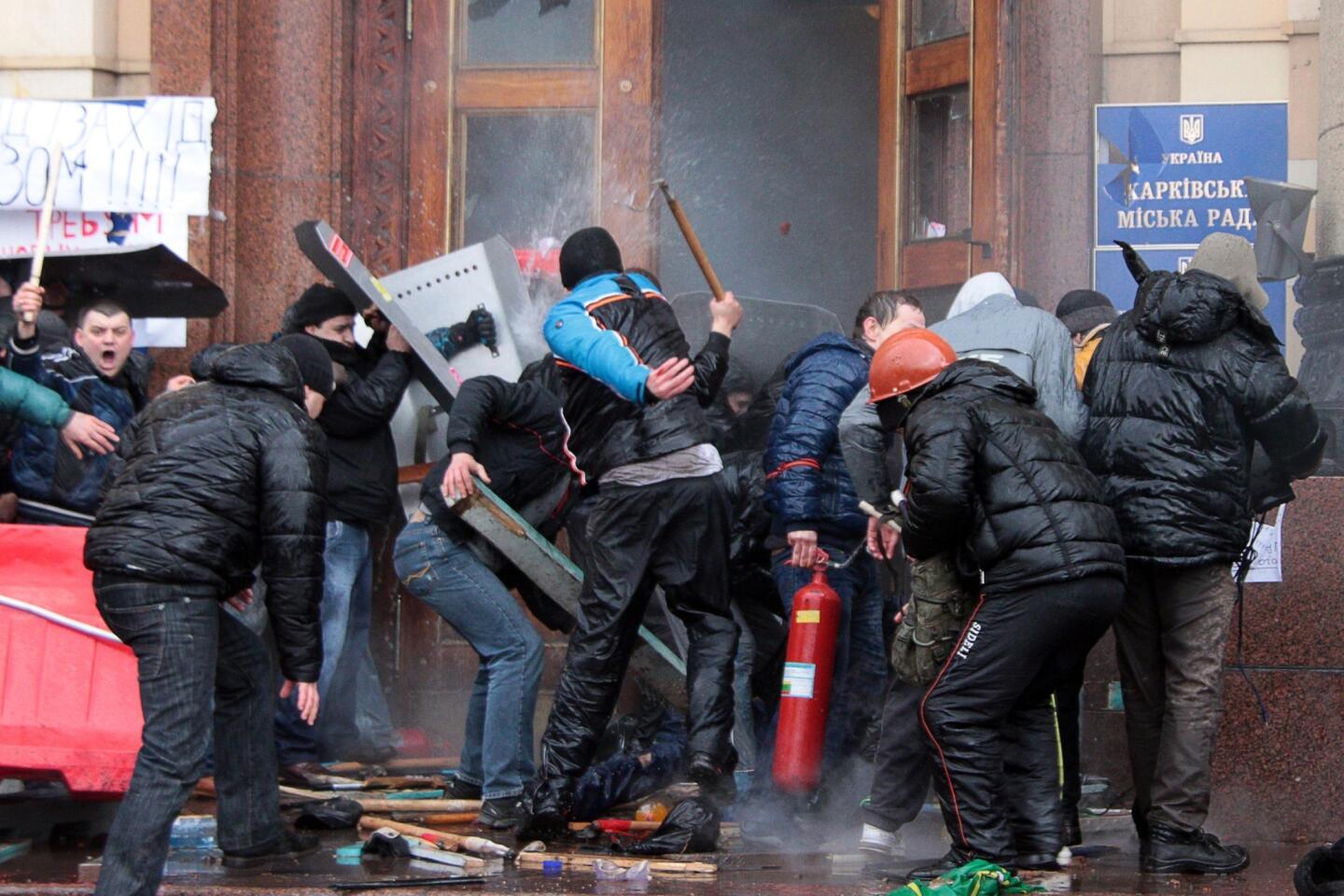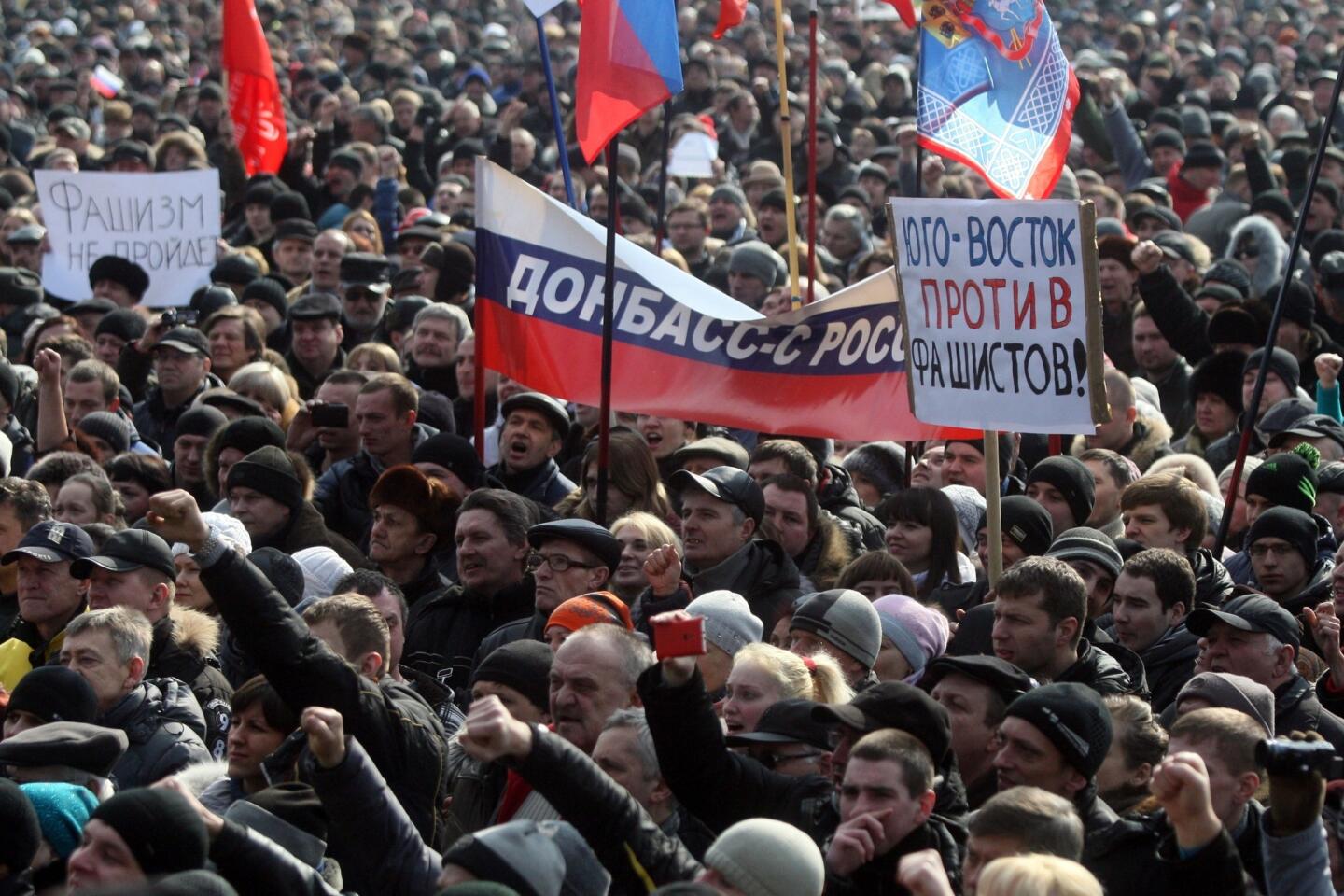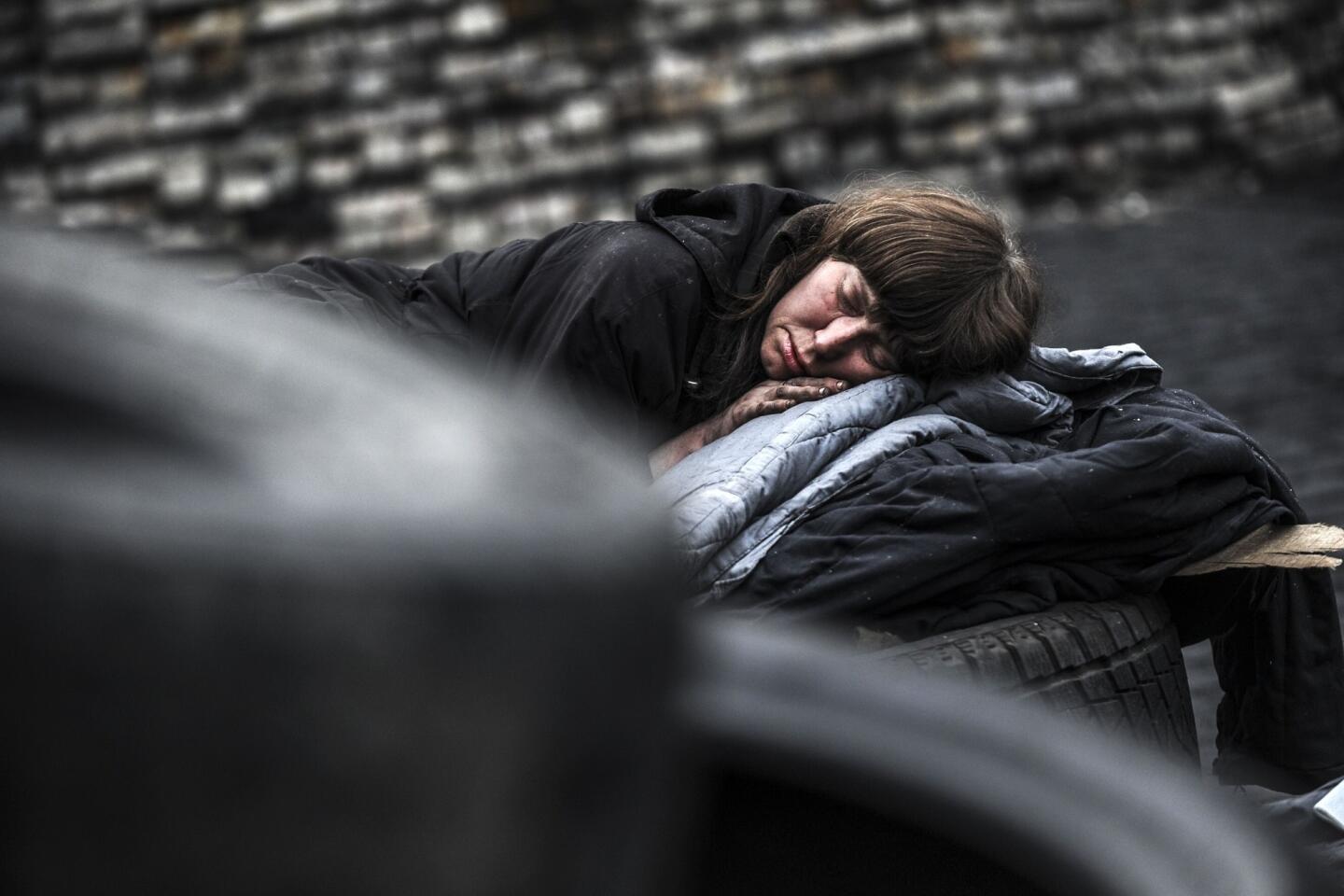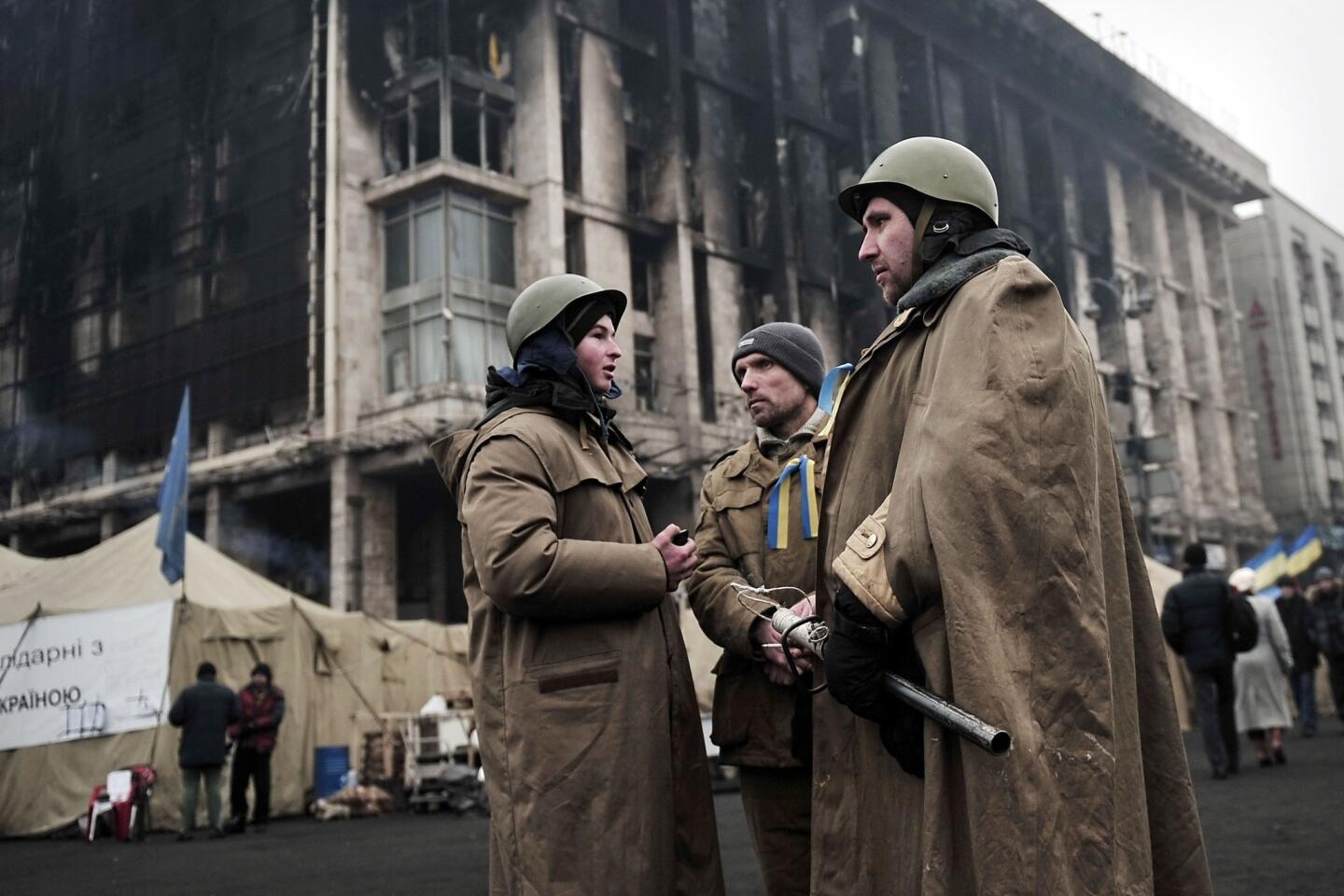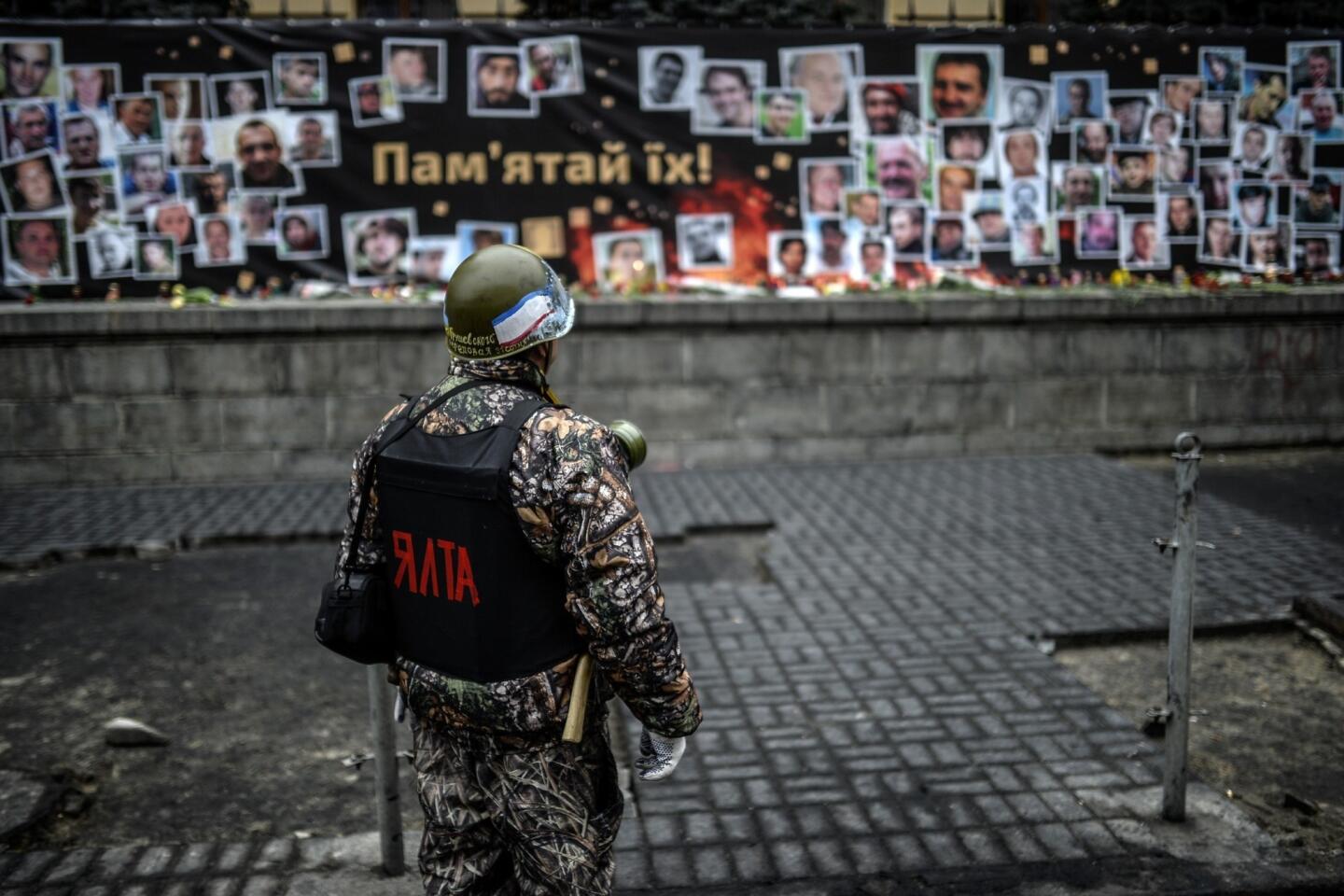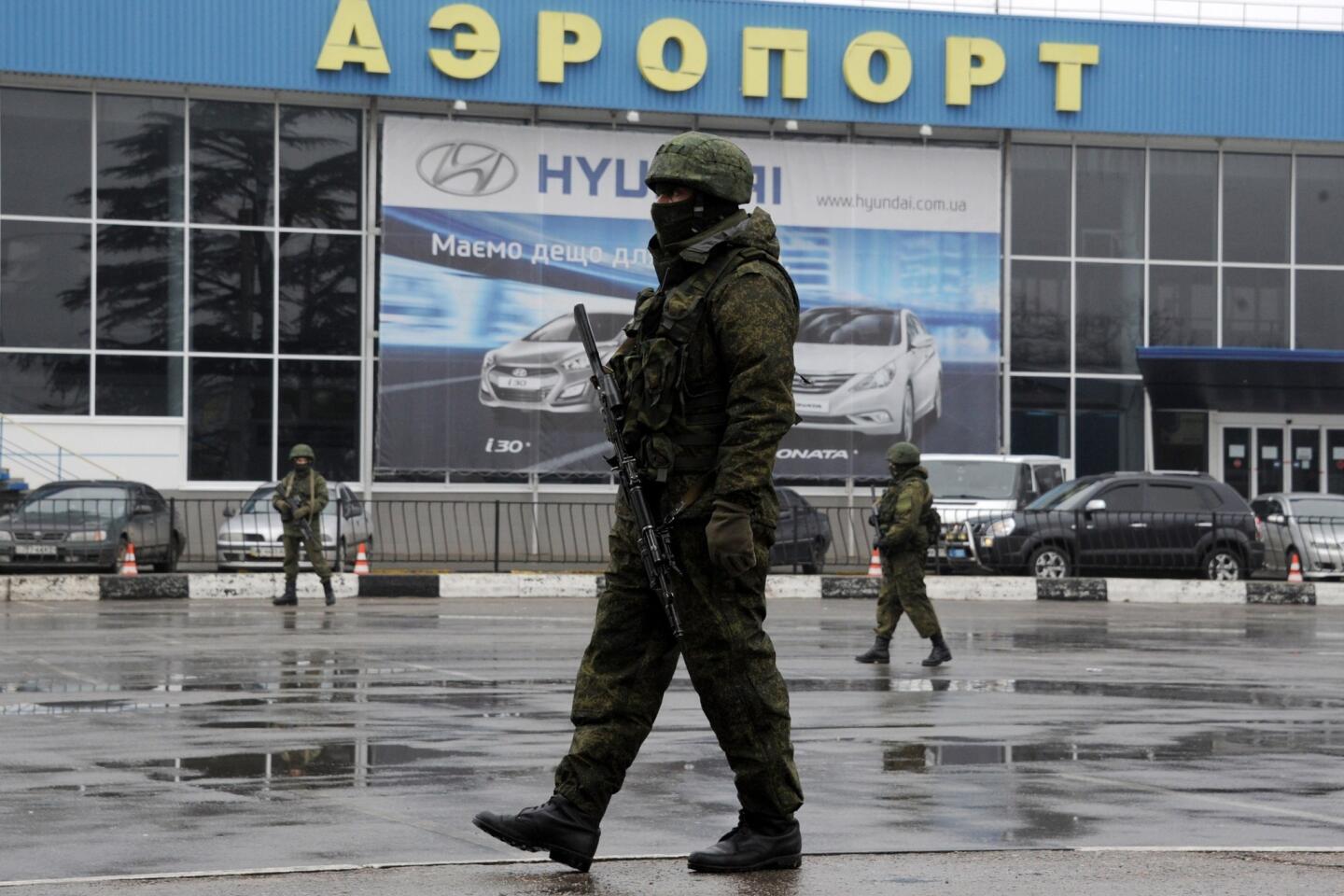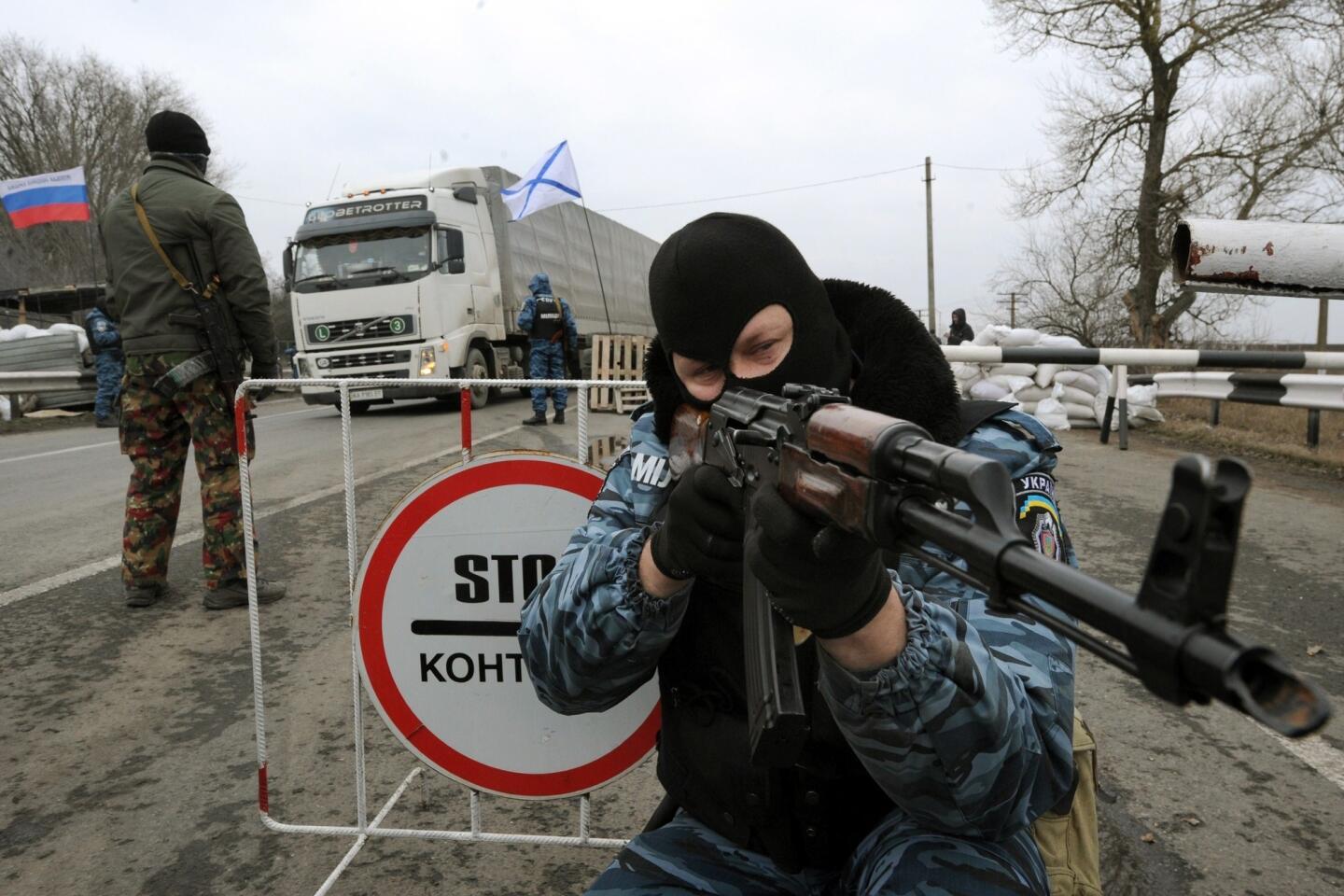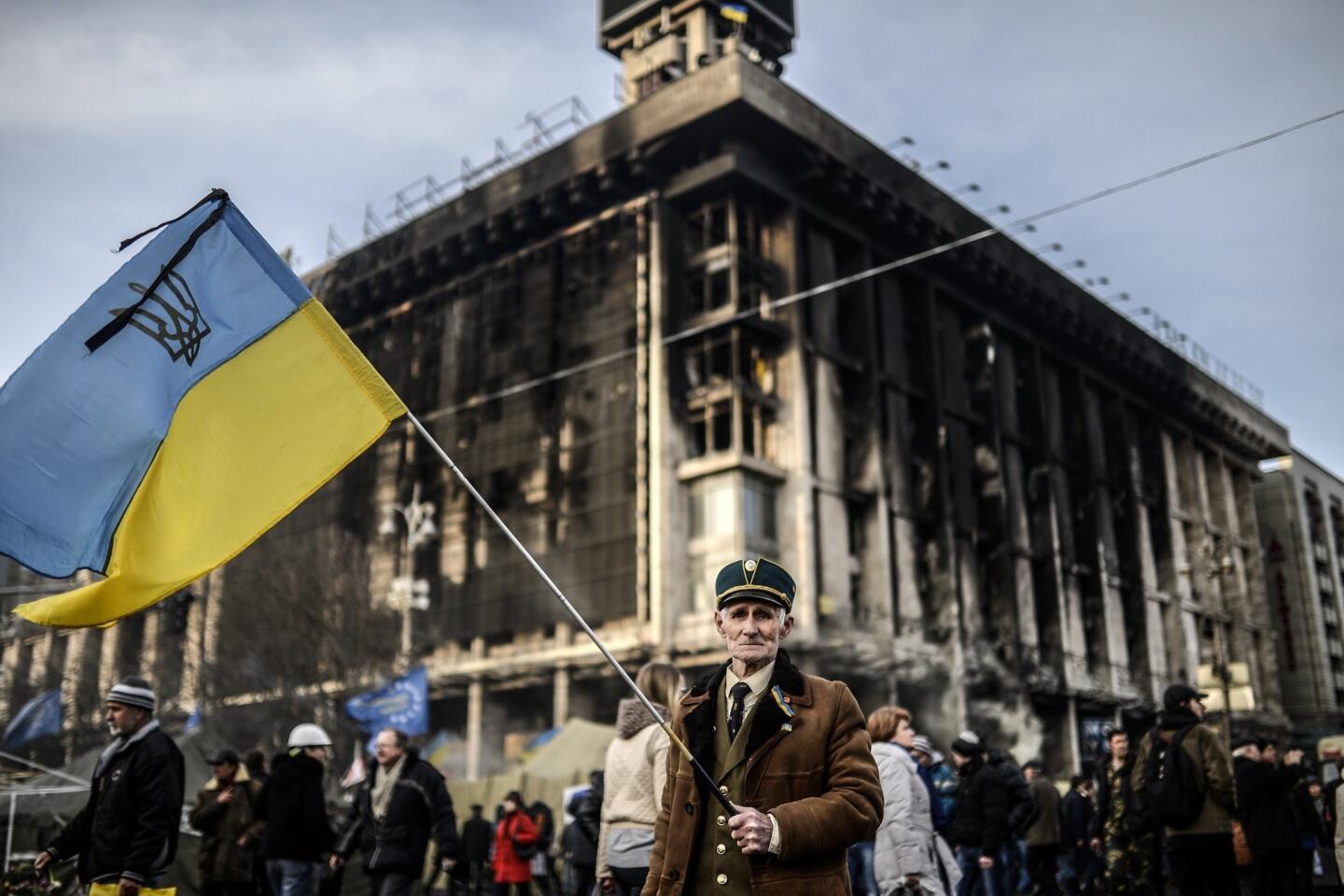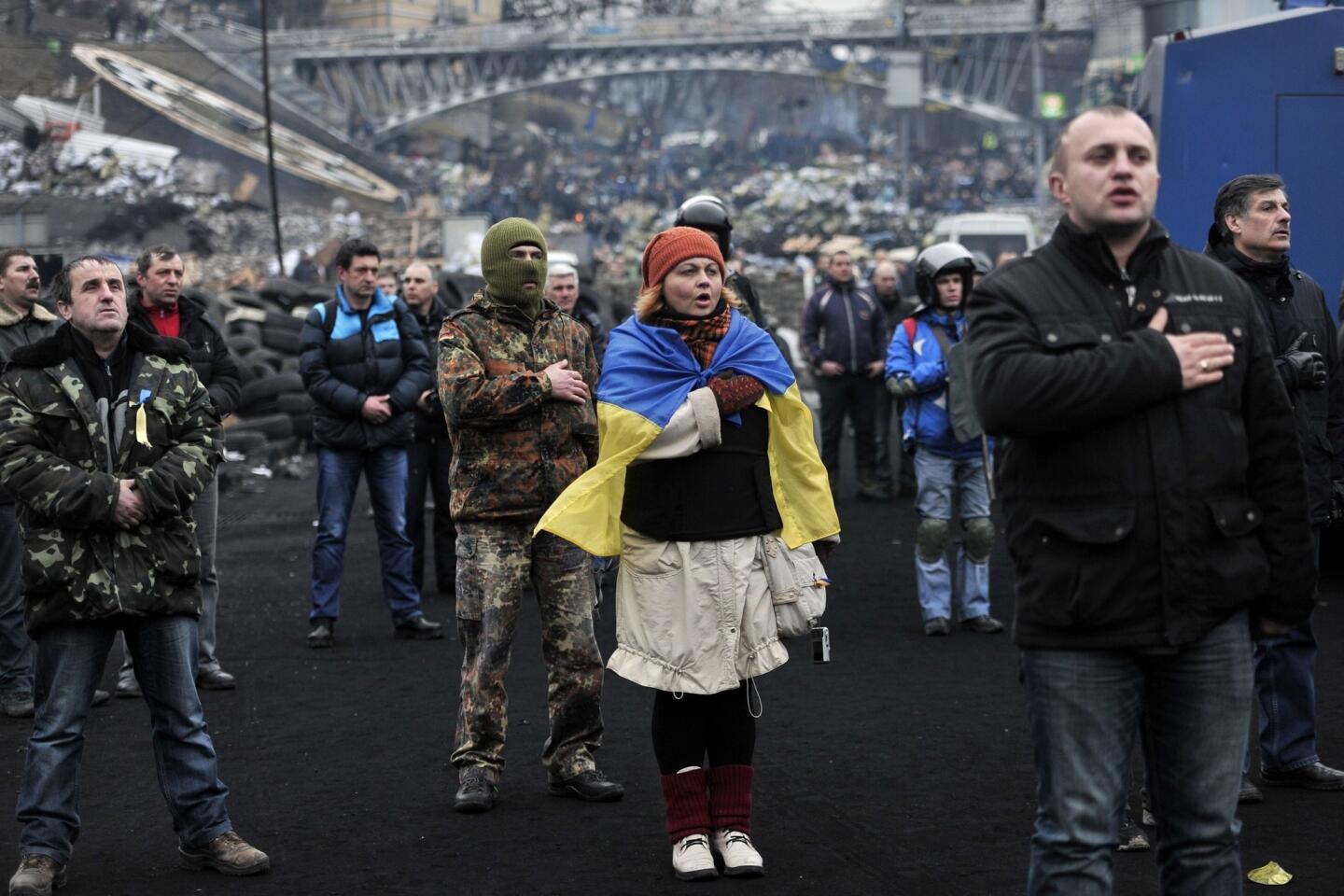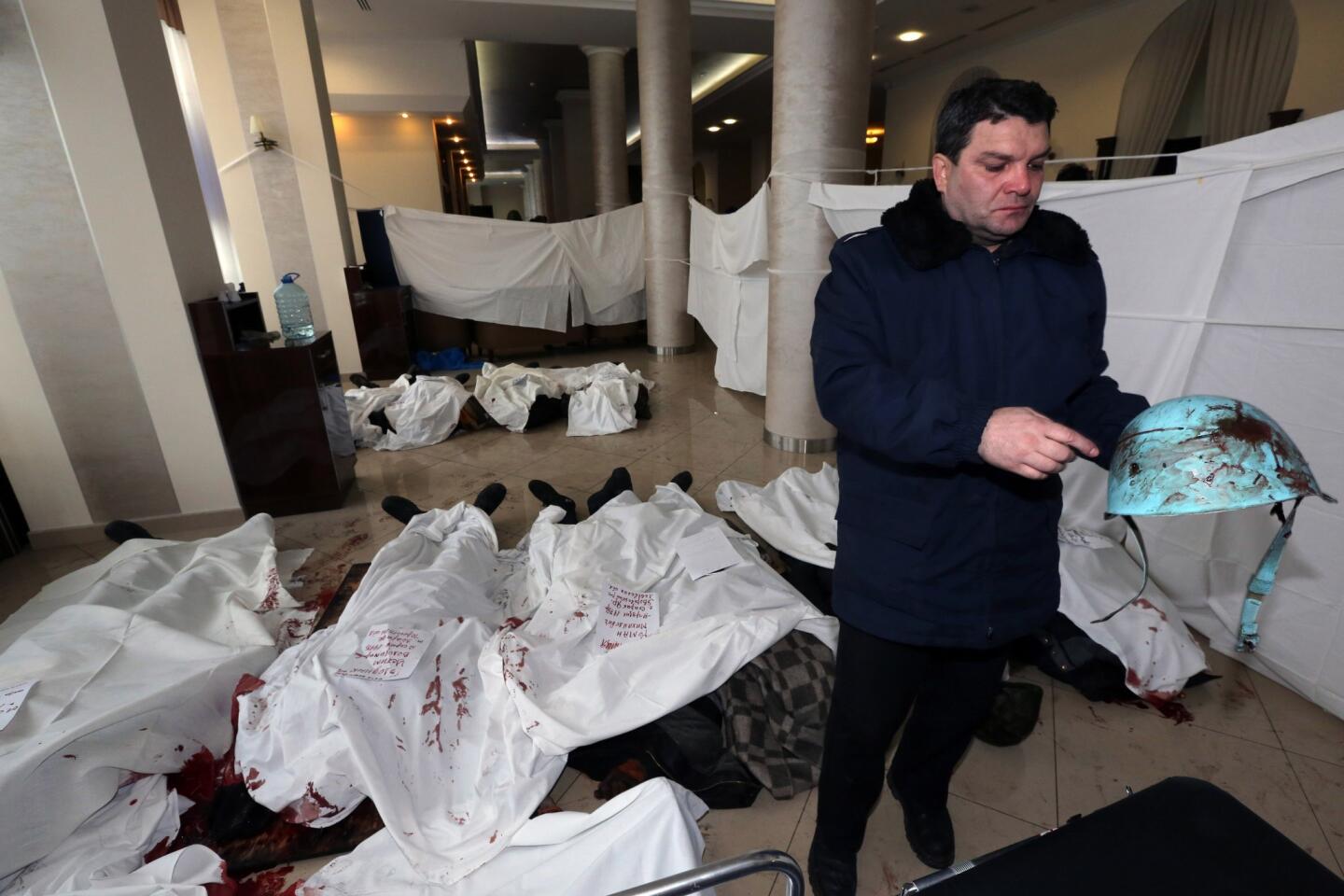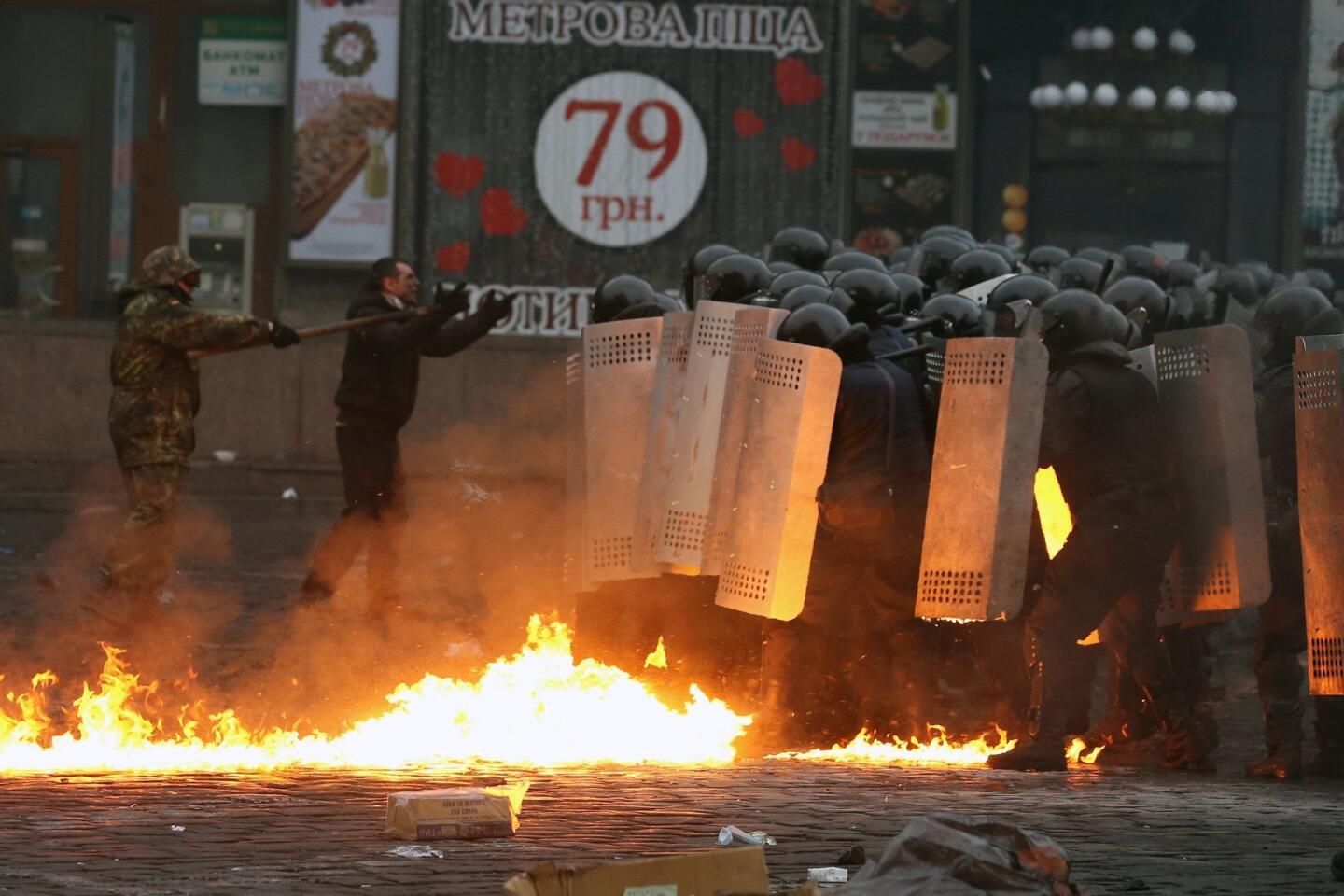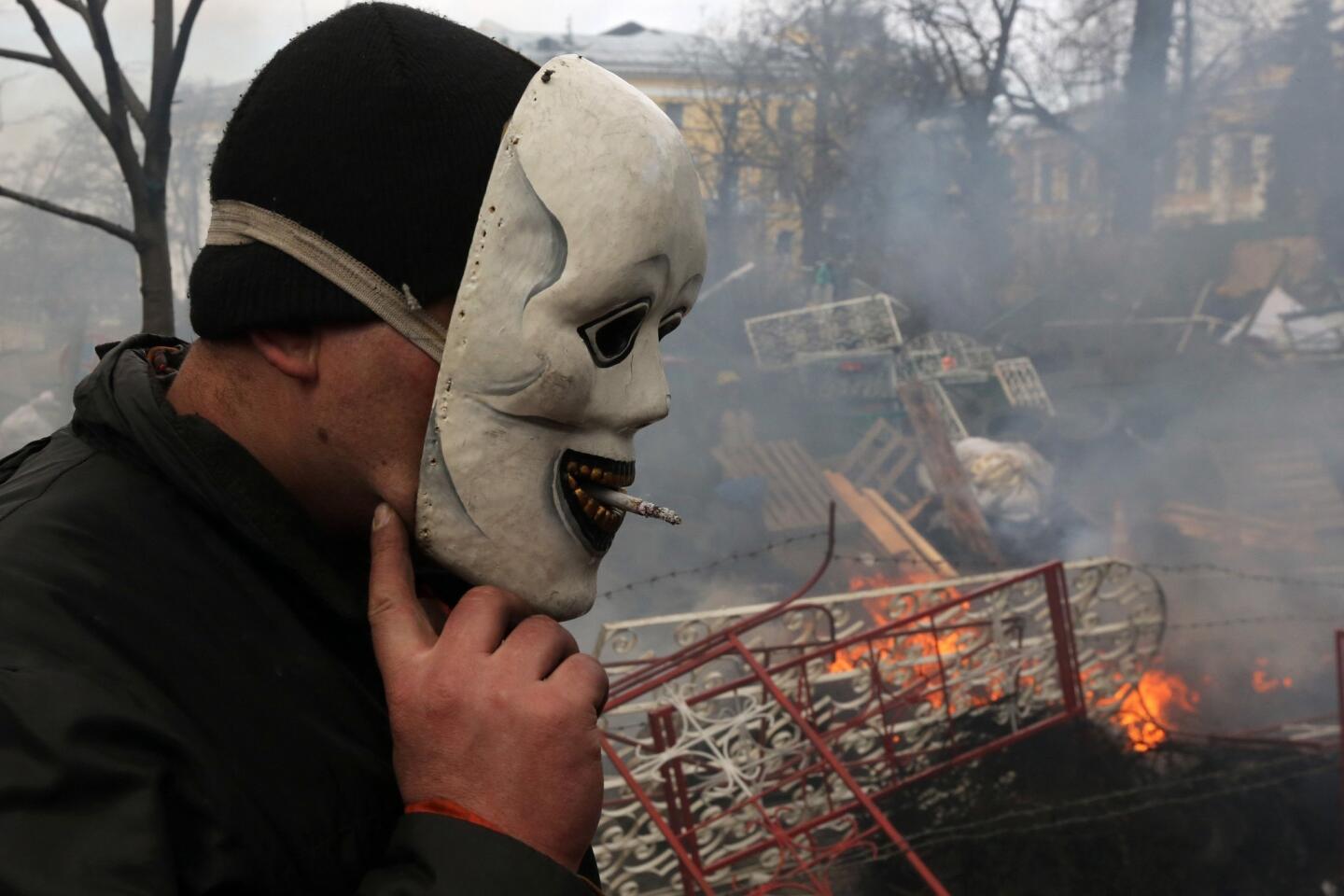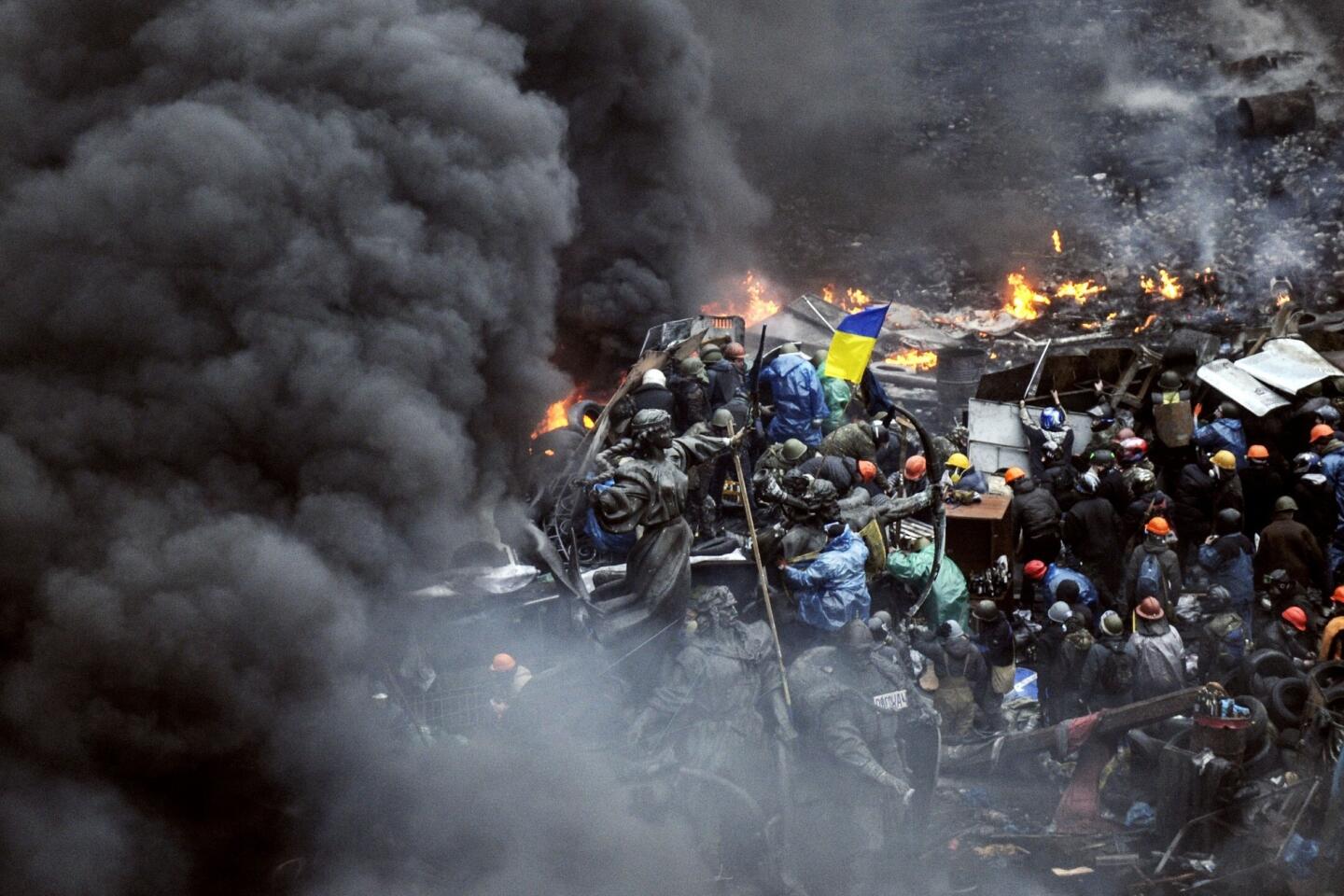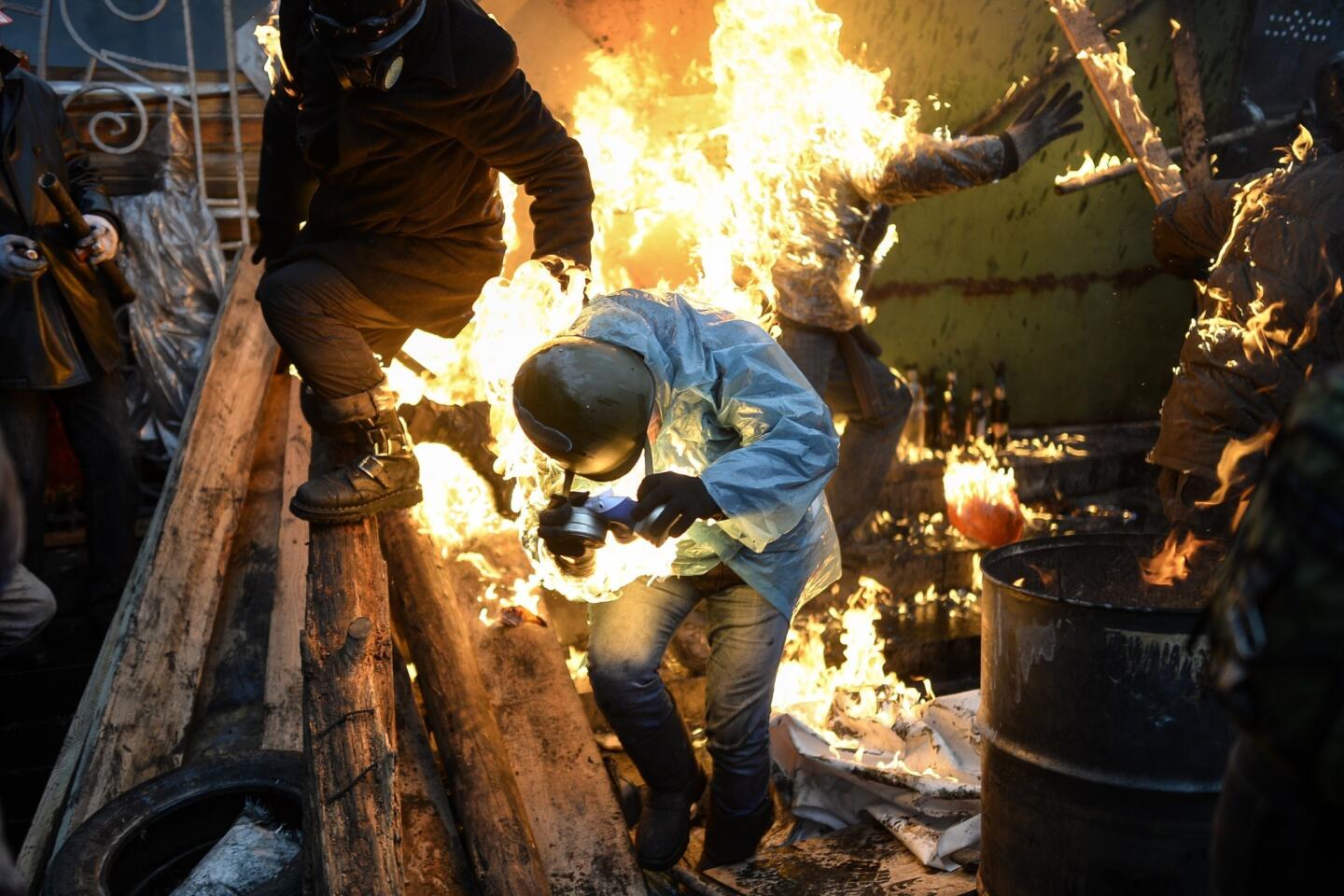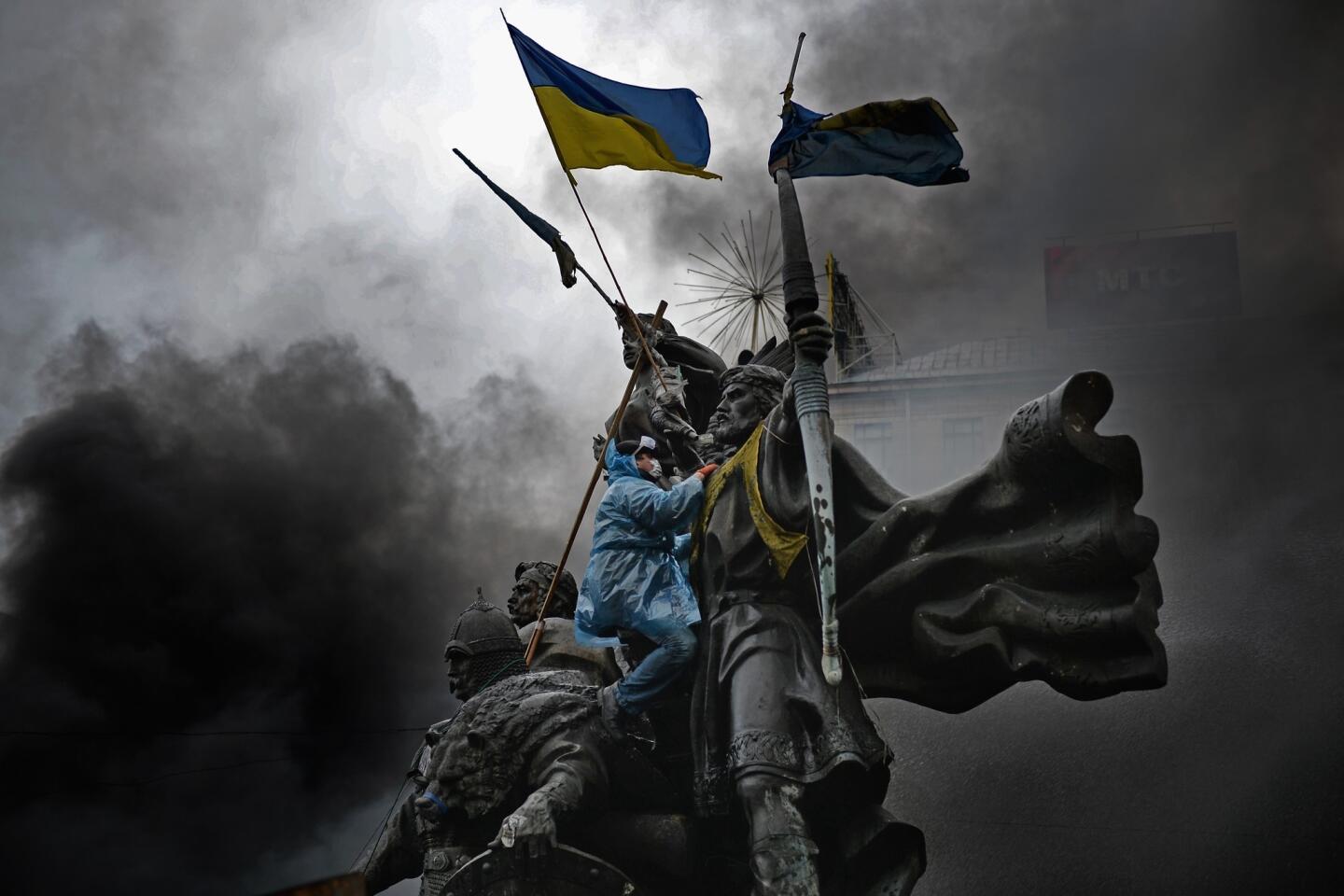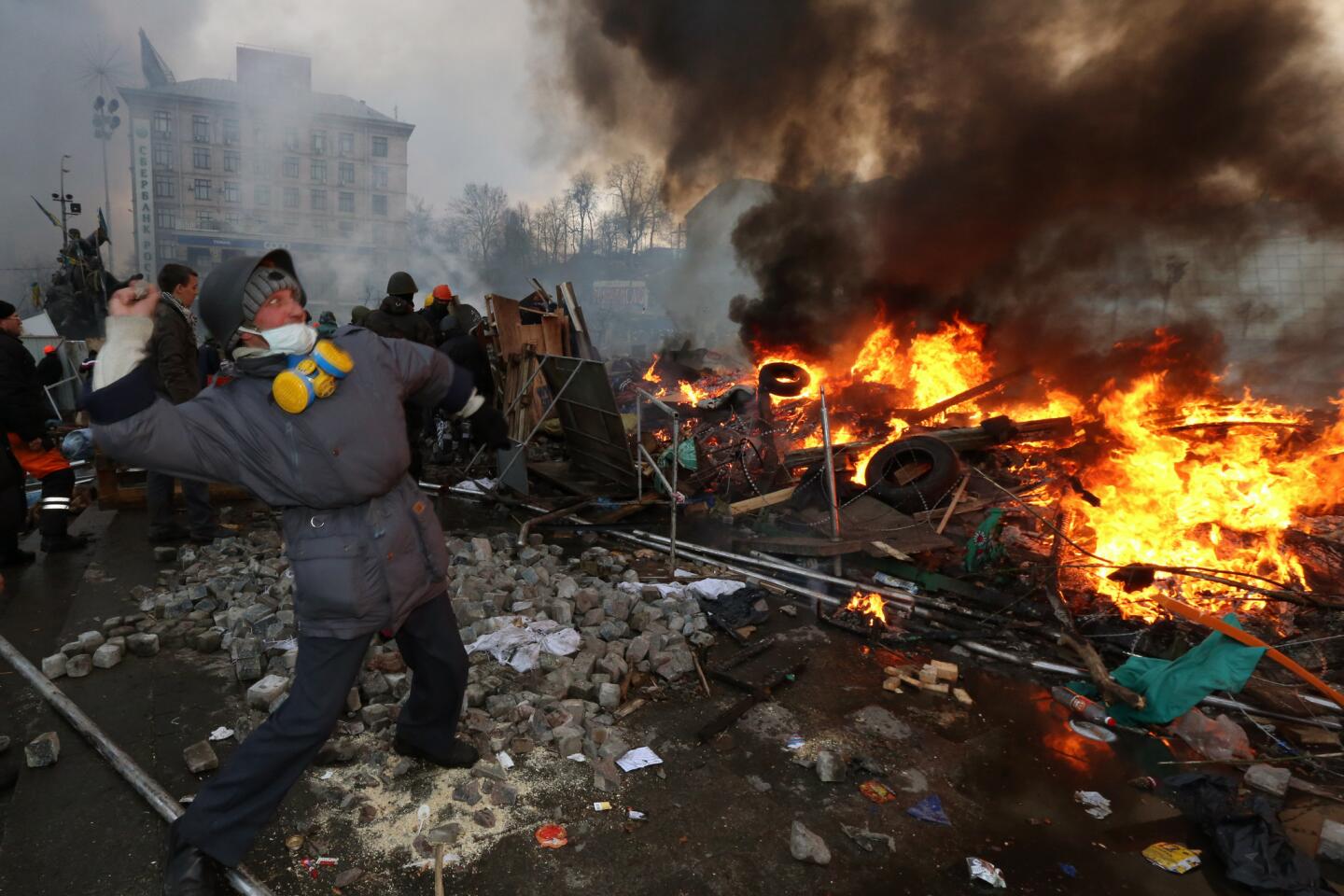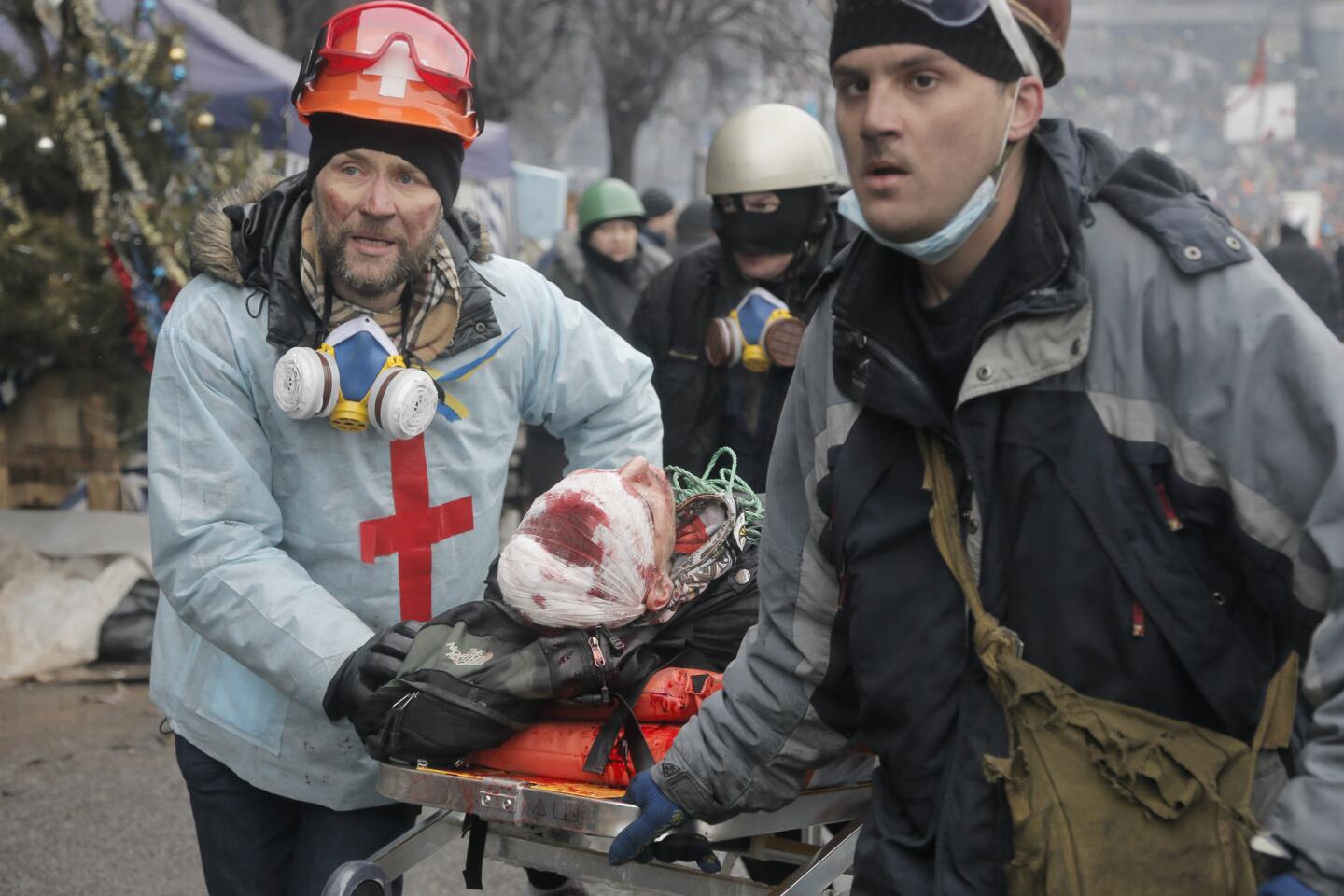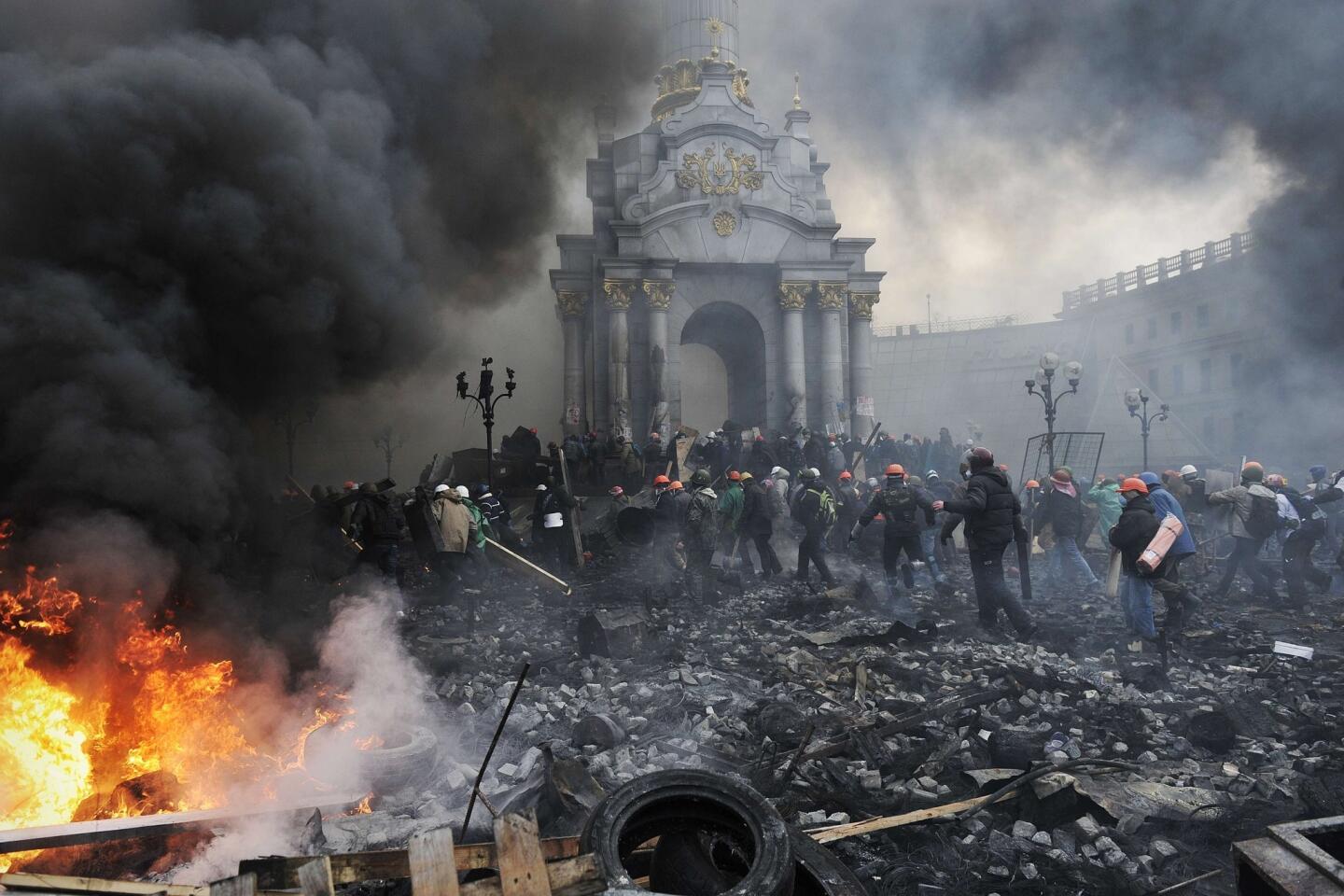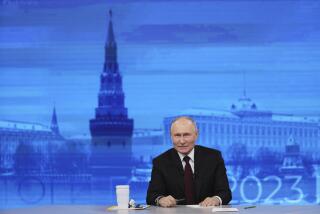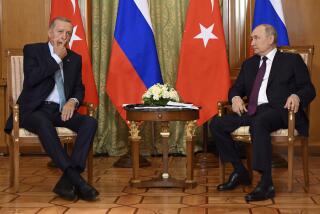Russia’s Putin unmoved by pressure to defuse Crimea crisis
Russian President Vladimir Putin said Thursday that his country wasn’t responsible for the turmoil in Crimea, describing Sunday’s vote on whether the strategic peninsula should secede from Ukraine as a crisis of a purely “domestic nature.”
Western nations nonetheless stepped up the pressure on Putin to defuse the explosive conflict or face punishing economic sanctions.
The most serious note of caution, though, came from the Russian stock market, where share values fell Thursday to their lowest level in nearly four years and the ruble continued its nosedive against the dollar and euro.
Russia’s banking and energy oligarchs have watched nervously from the sidelines as the Crimea crisis has unfolded over the last three weeks, effectively muzzled by their dependence on government contracts and trade deals for their continued enrichment.
But the head of state-run energy behemoth Gazprom spoke out Thursday in a veiled appeal for economic peace between East and West, proclaiming a desire to keep Ukraine as a loyal customer and reliable partner in transporting Gazprom’s products to Western Europe via pipelines that cross the neighboring state.
Gazprom Chief Executive Alexei Miller’s comments to reporters in Berlin also appeared to warn European Union countries threatening sanctions against Moscow over the Crimea crisis that they would be hurting themselves as well as the Russian economy.
Ukraine owes Gazprom $1.8 billion in overdue payments for past natural gas deliveries, which prompted the company last week to cancel a 30% discount offered Ukraine when the country was ruled by President Viktor Yanukovich, an ally of Putin. Yanukovich was driven into exile in Russia last month by a ferocious rebellion sparked by his unilateral decision to scrap an association agreement with the European Union.
“The unpaid gas bills mean a hole for Gazprom in its investment for the current year. They also mean a hole in our budget plan and a hole in the payment of dividends to our shareholders,” Miller was quoted by the Reuters news agency as saying. He added that a large number of Gazprom shareholders are foreigners, exposing them to revenue and dividend losses should the EU cut energy trade as part of its sanctions package.
A senior Russian economics official warned that his government might take reciprocal measures to any punitive economic moves over Crimea.
“We hope that there will only be targeted political sanctions, and not a broad package affecting economic trade,” Deputy Economic Development Minister Alexei Likhachev told RIA Novosti. “Our sanctions will be, of course, symmetrical.”
The world’s top economic powers appear to be isolating Russia, at least symbolically. The Group of 7 industrialized nations, which admitted Russia as a member in 1998 -- making it the Group of 8 ever since -- suspended preparations for a June summit to be hosted by Russia. U.S. and European officials have drawn up lists of Russian officials who would be subject to visa bans and asset seizures over their alleged roles in fomenting unrest in Ukraine.
Putin’s comments to a Russian Security Council meeting seemed to reflect little concern about the looming threats of economic consequences of abetting Crimea’s secession drive.
“There is a strong need to discuss how to build relations with friends and partners in Ukraine and partners in Europe and the U.S.,” Putin said, according to Kremlin-controlled Voice of Russia radio. He gave no indication of a need to rethink Kremlin policy toward Ukraine.
Earlier Thursday, Putin told officials of the Russian Paralympics organization that it wasn’t his country that sparked the turmoil in Crimea or elsewhere in Ukraine. Putin has repeatedly denied that the Kremlin orchestrated the takeover of military installations in Crimea by Russian soldiers.
“I would like to assure you that Russia did not initiate, it was not an instigator, of these difficult circumstances,” Putin said of the Crimea standoff.
The Kremlin also took further steps Thursday to stifle the few independent media and political voices still functioning. Roskomnadzor, the government communications oversight agency, said it was shutting down Internet sites associated with opposition figures Alexei Navalny and former world chess champion Garry Kasparov, as well as news sites Grani.ru and ej.ru, the latter the online Yezhednevny Zhurnal newspaper.
Twitter: @cjwilliamslat
More to Read
Start your day right
Sign up for Essential California for news, features and recommendations from the L.A. Times and beyond in your inbox six days a week.
You may occasionally receive promotional content from the Los Angeles Times.
